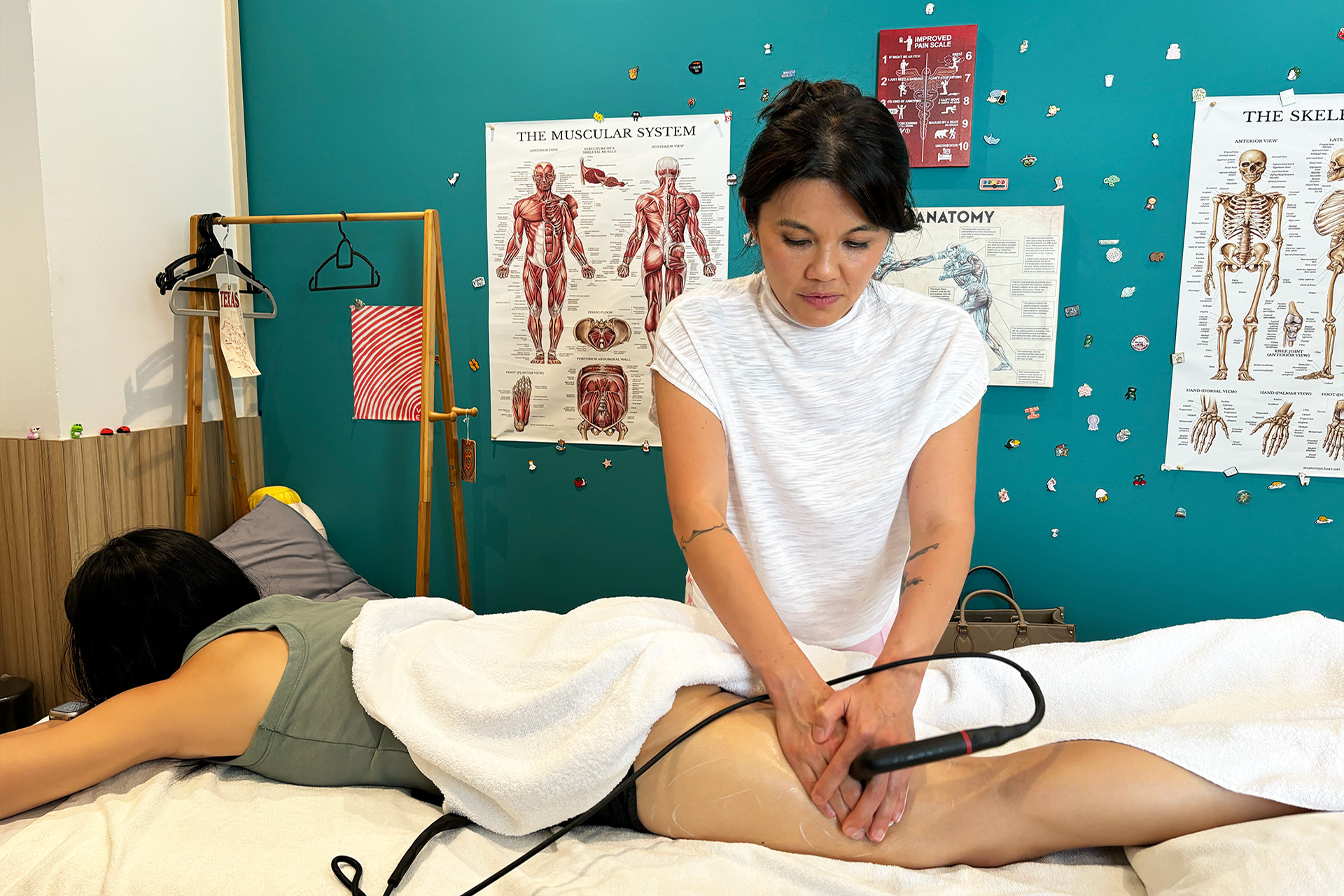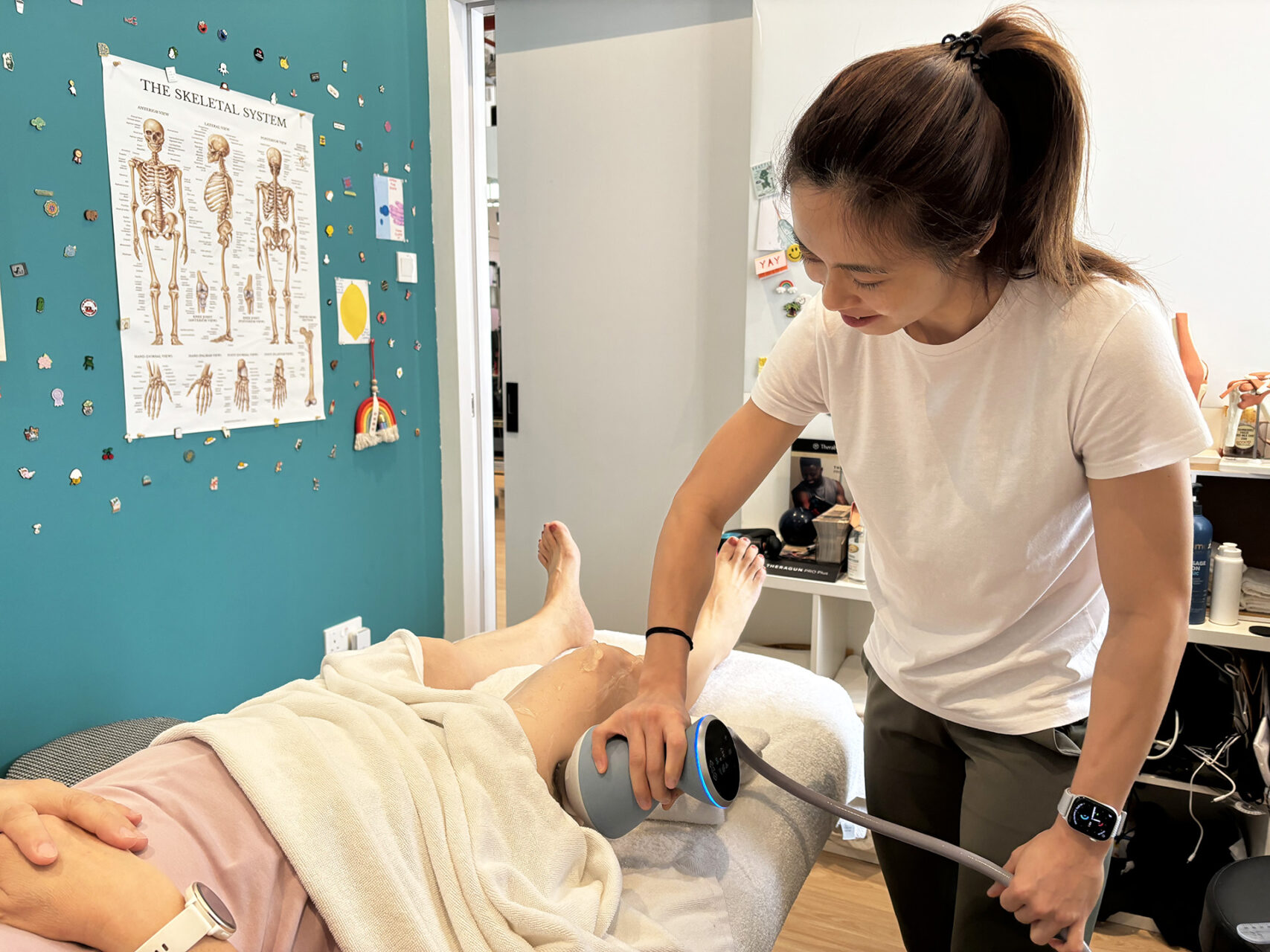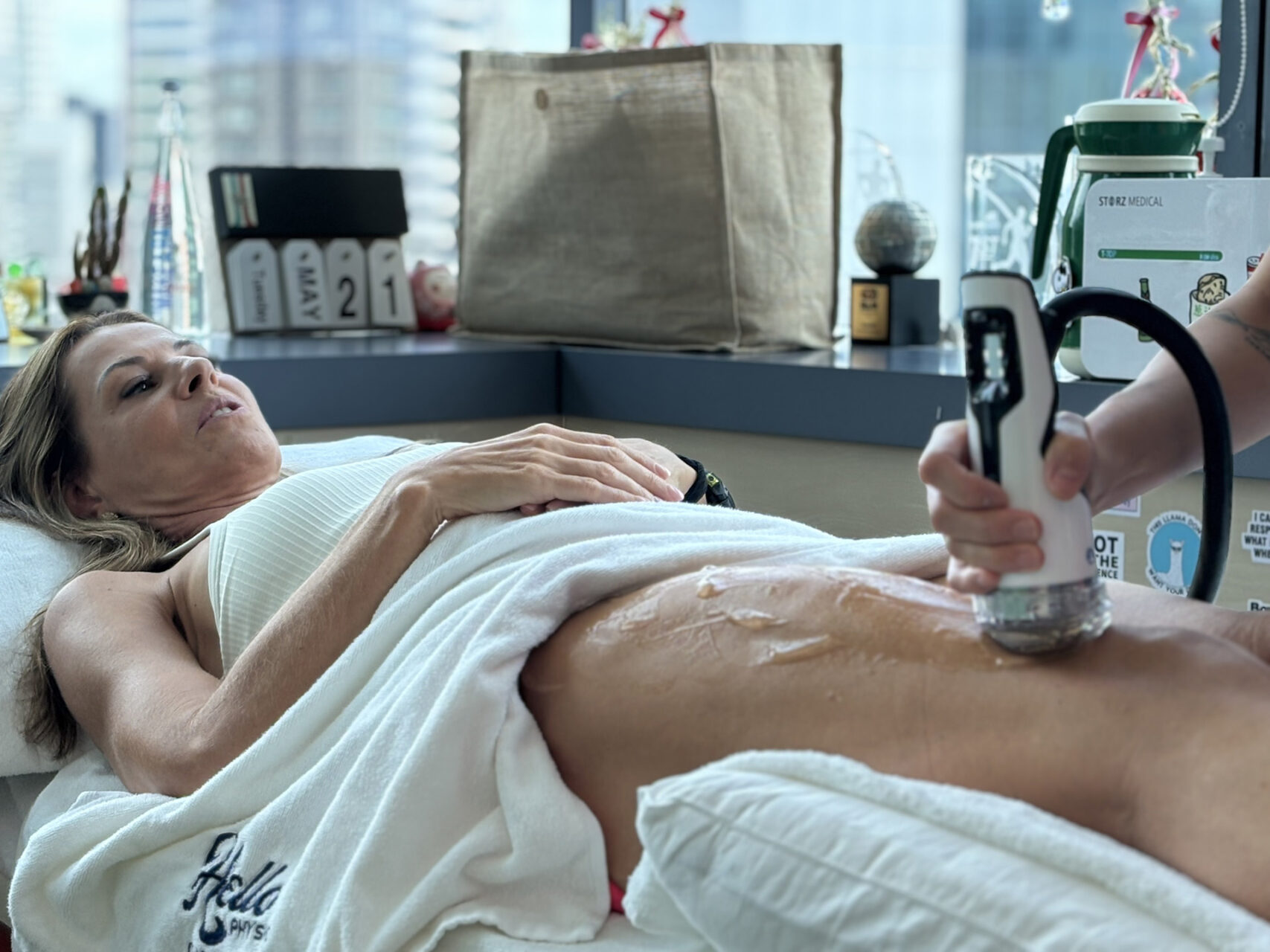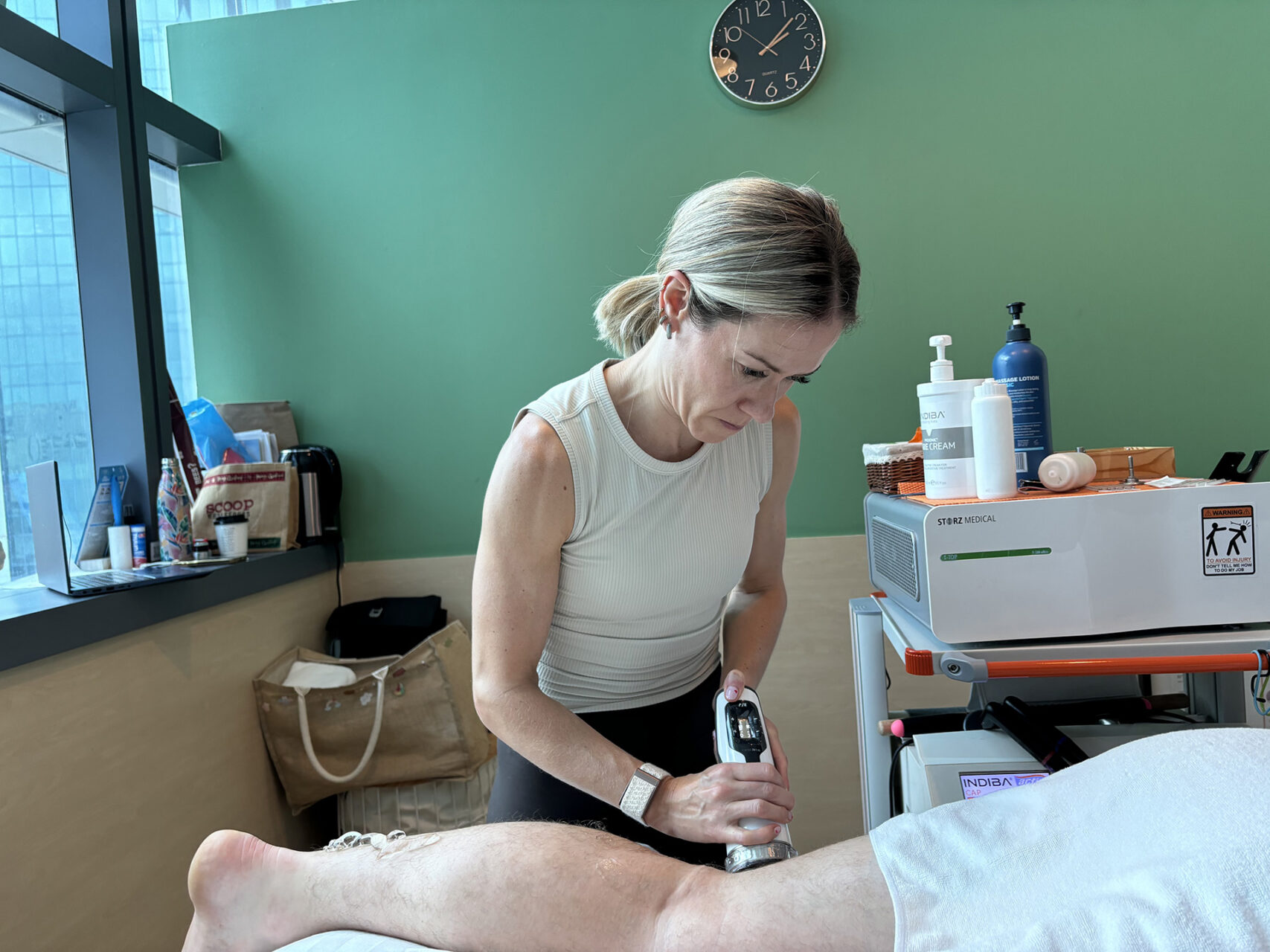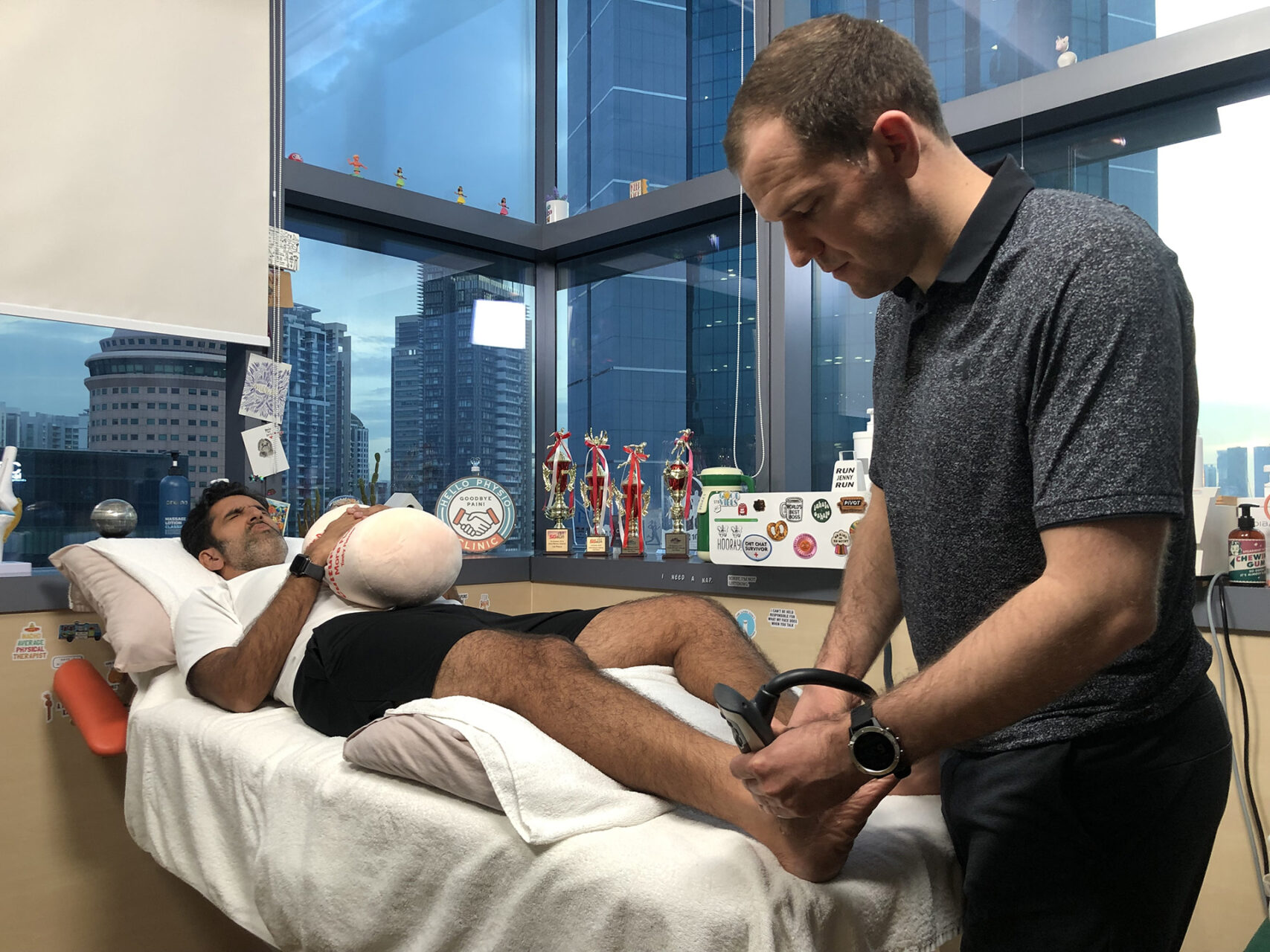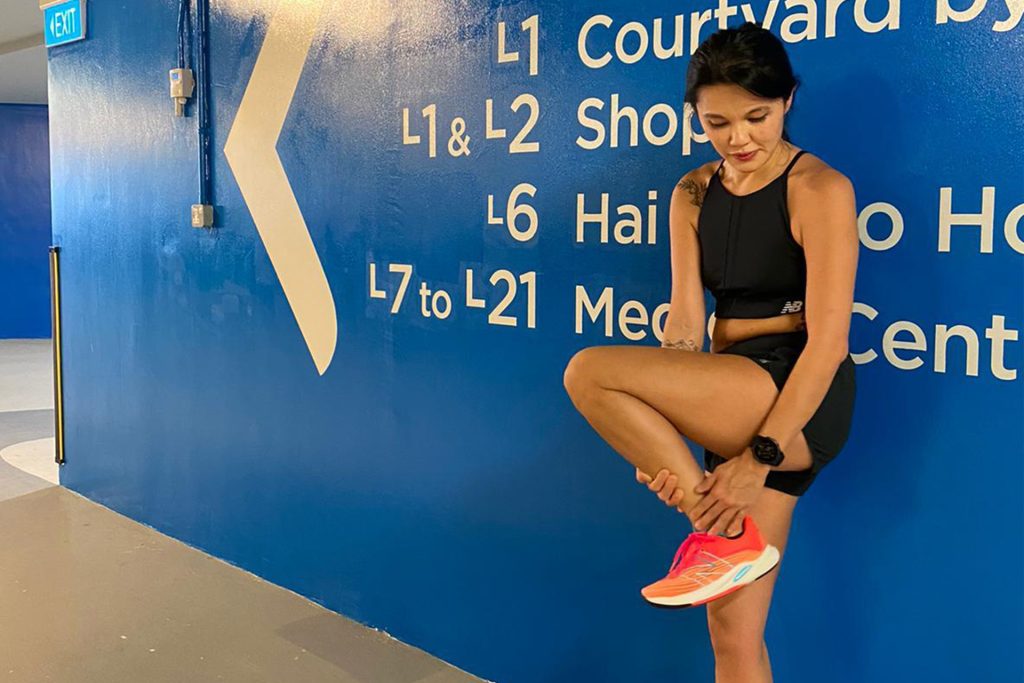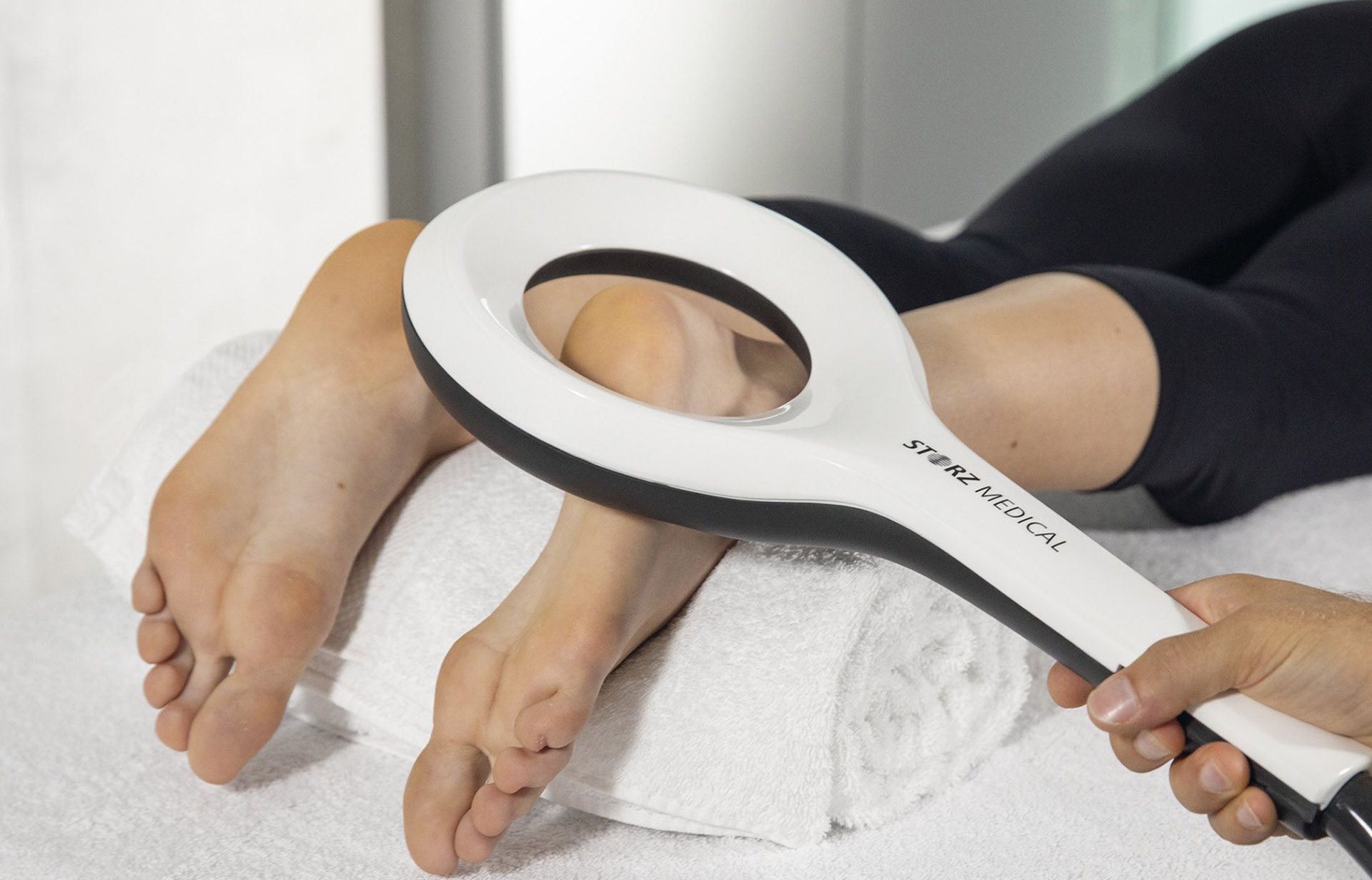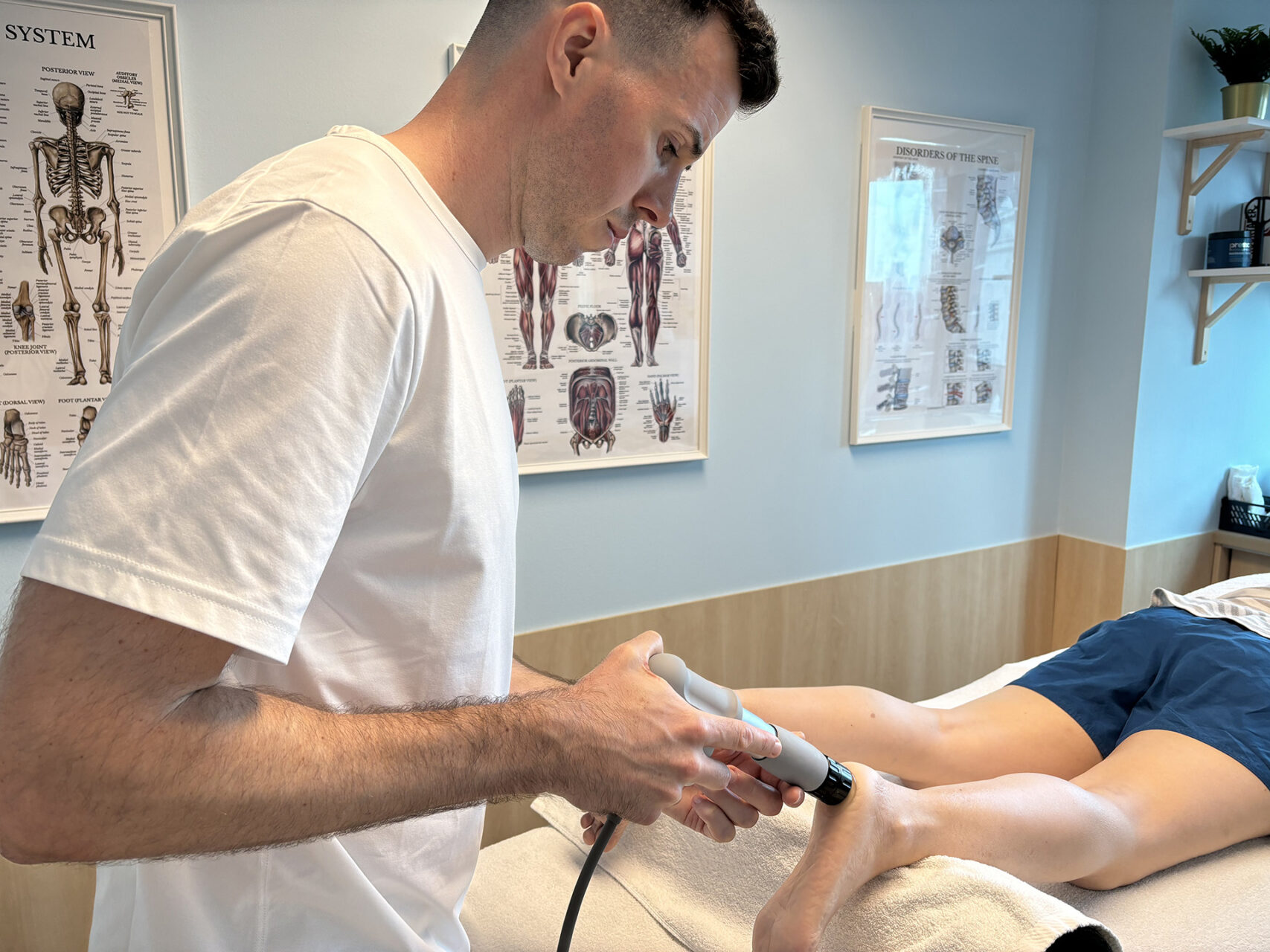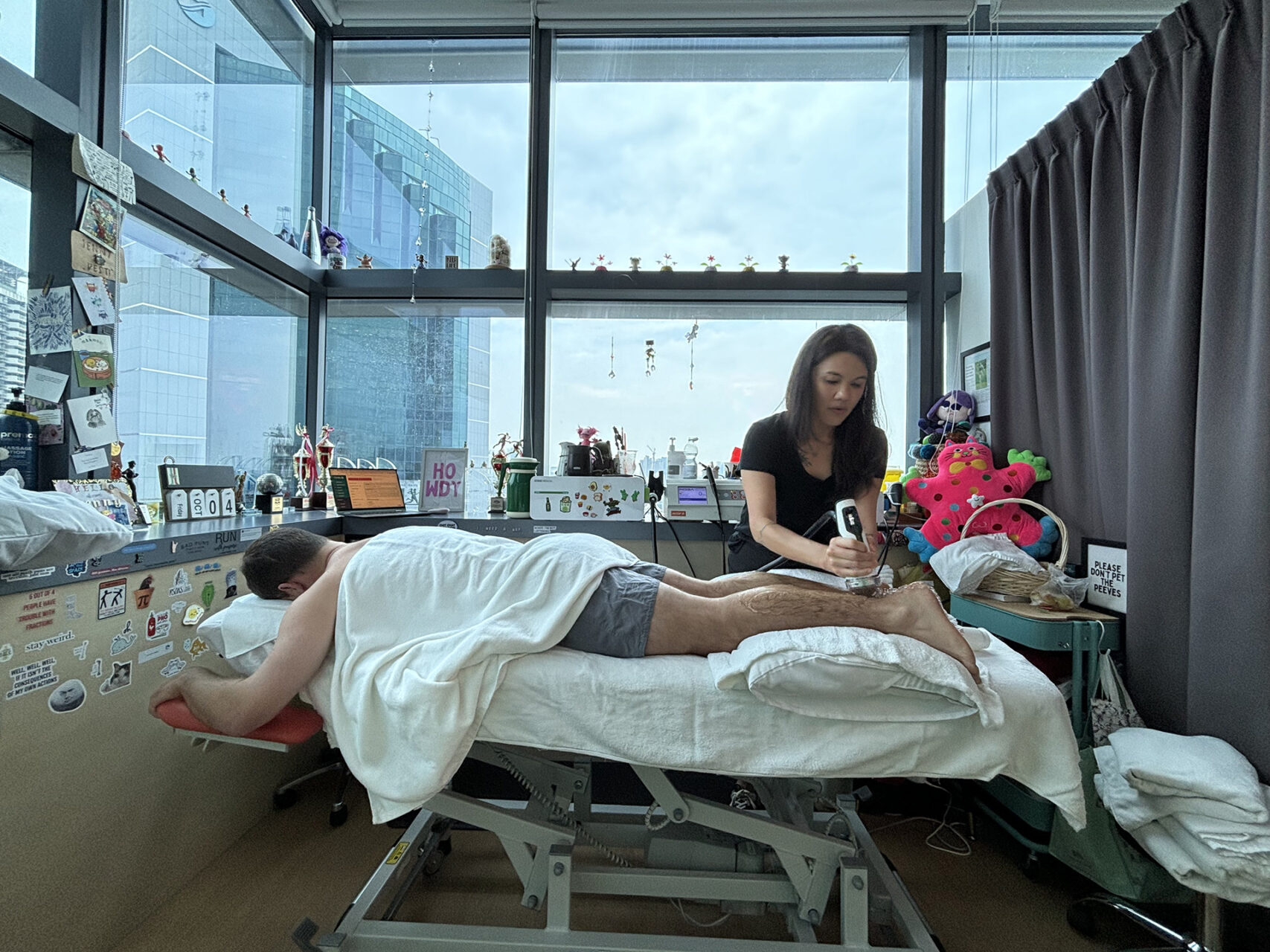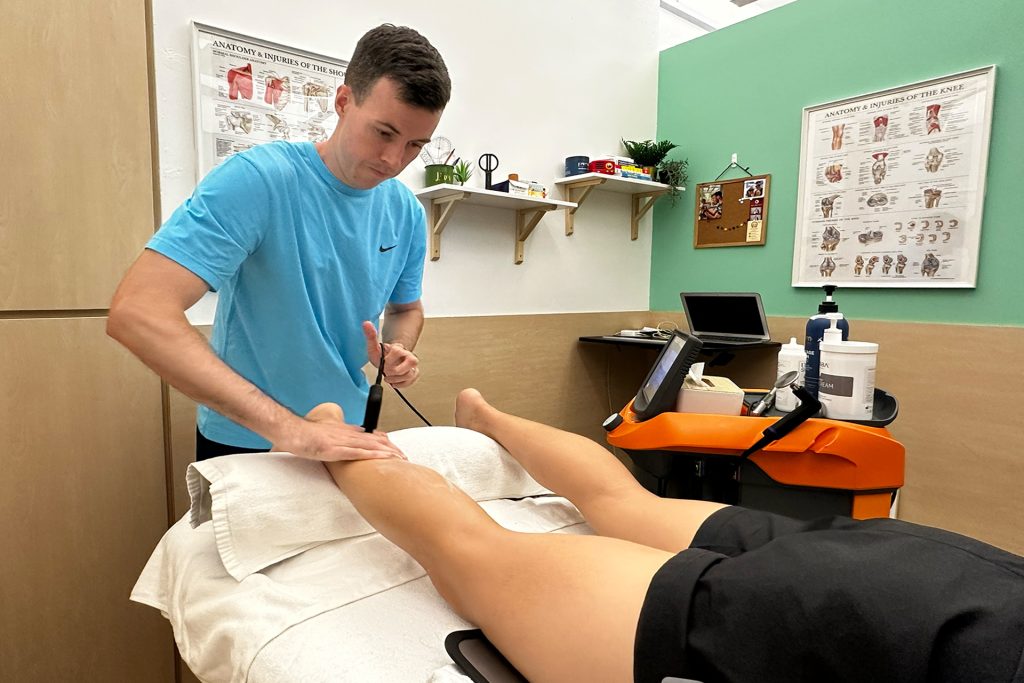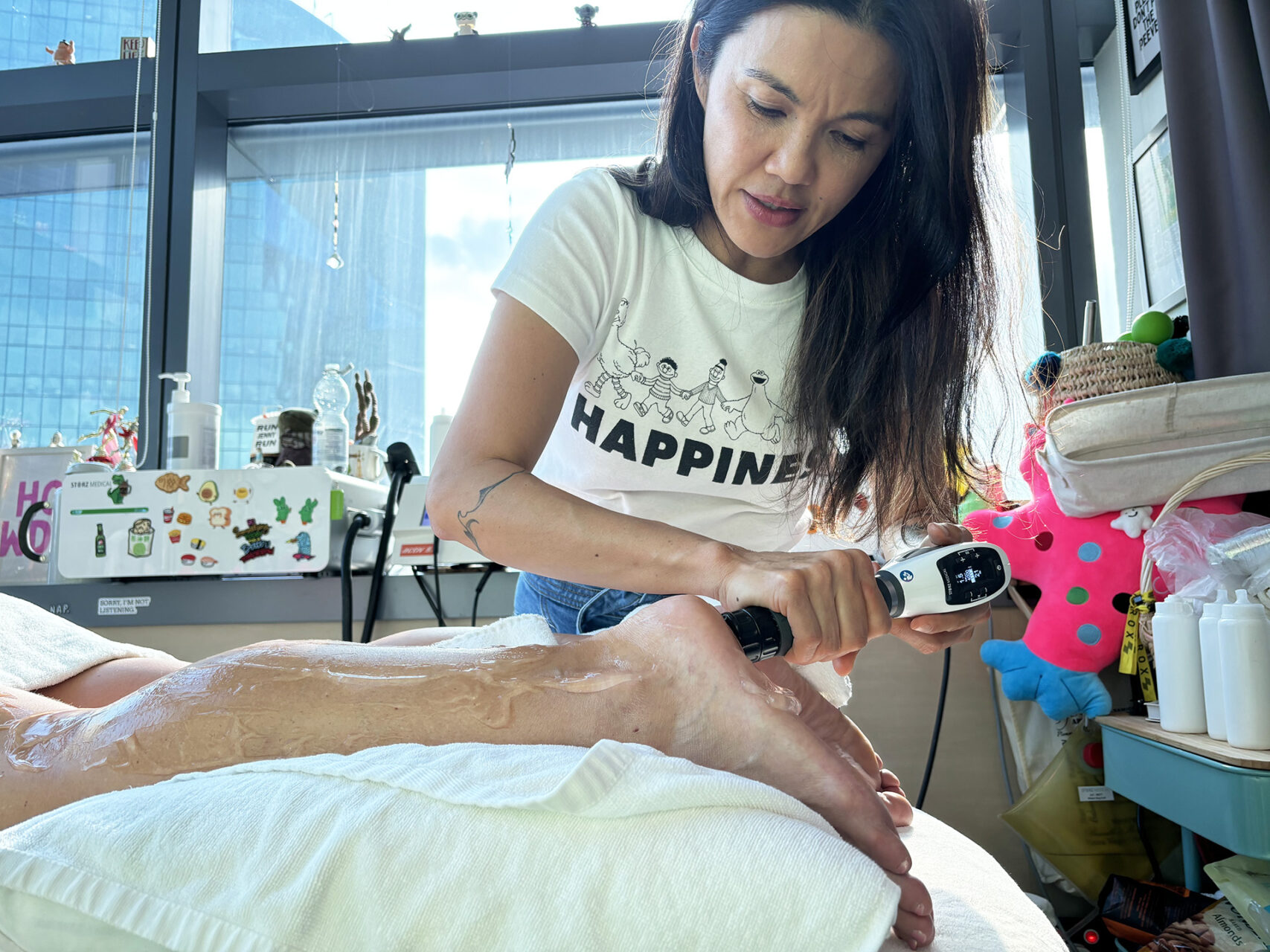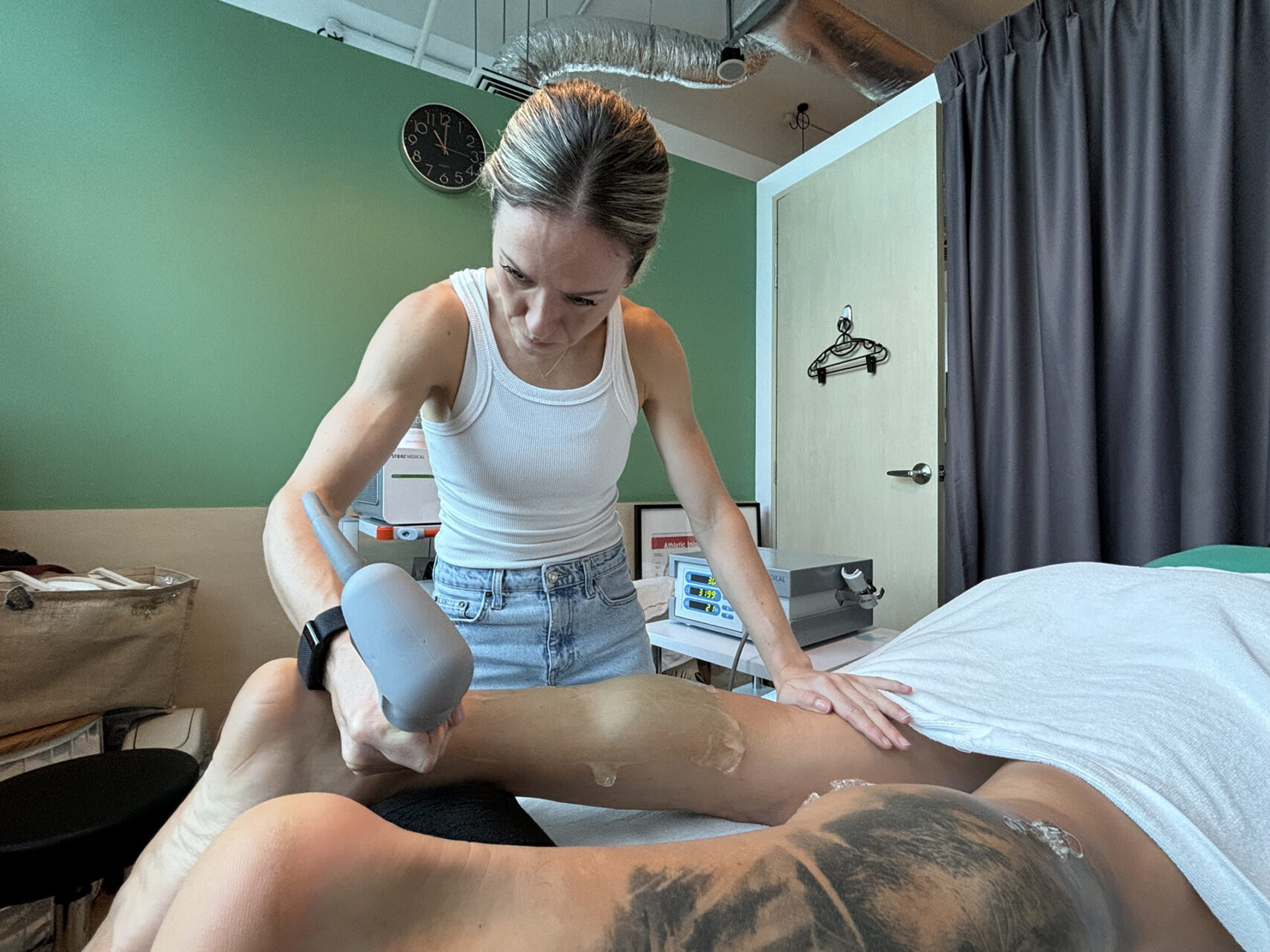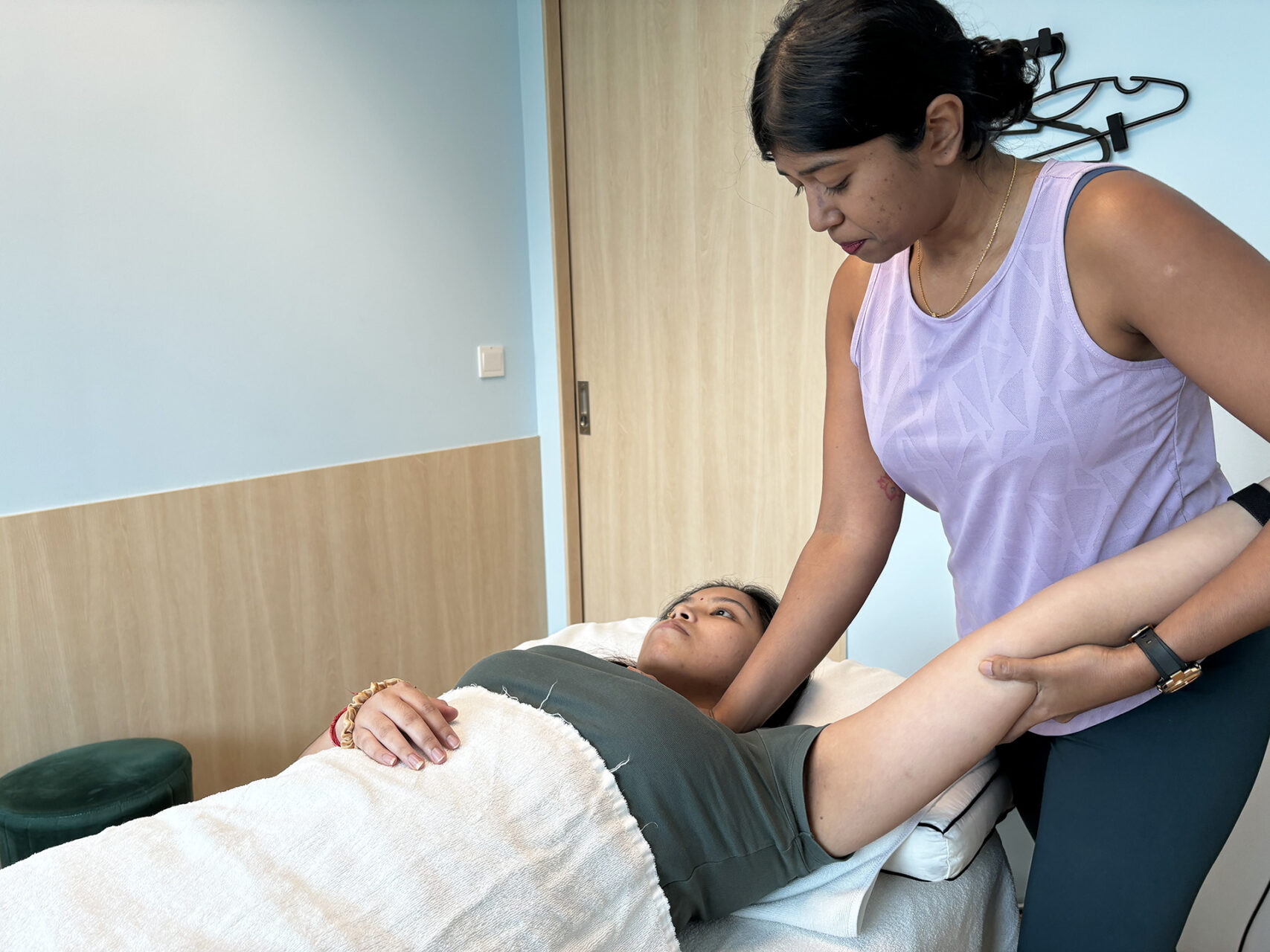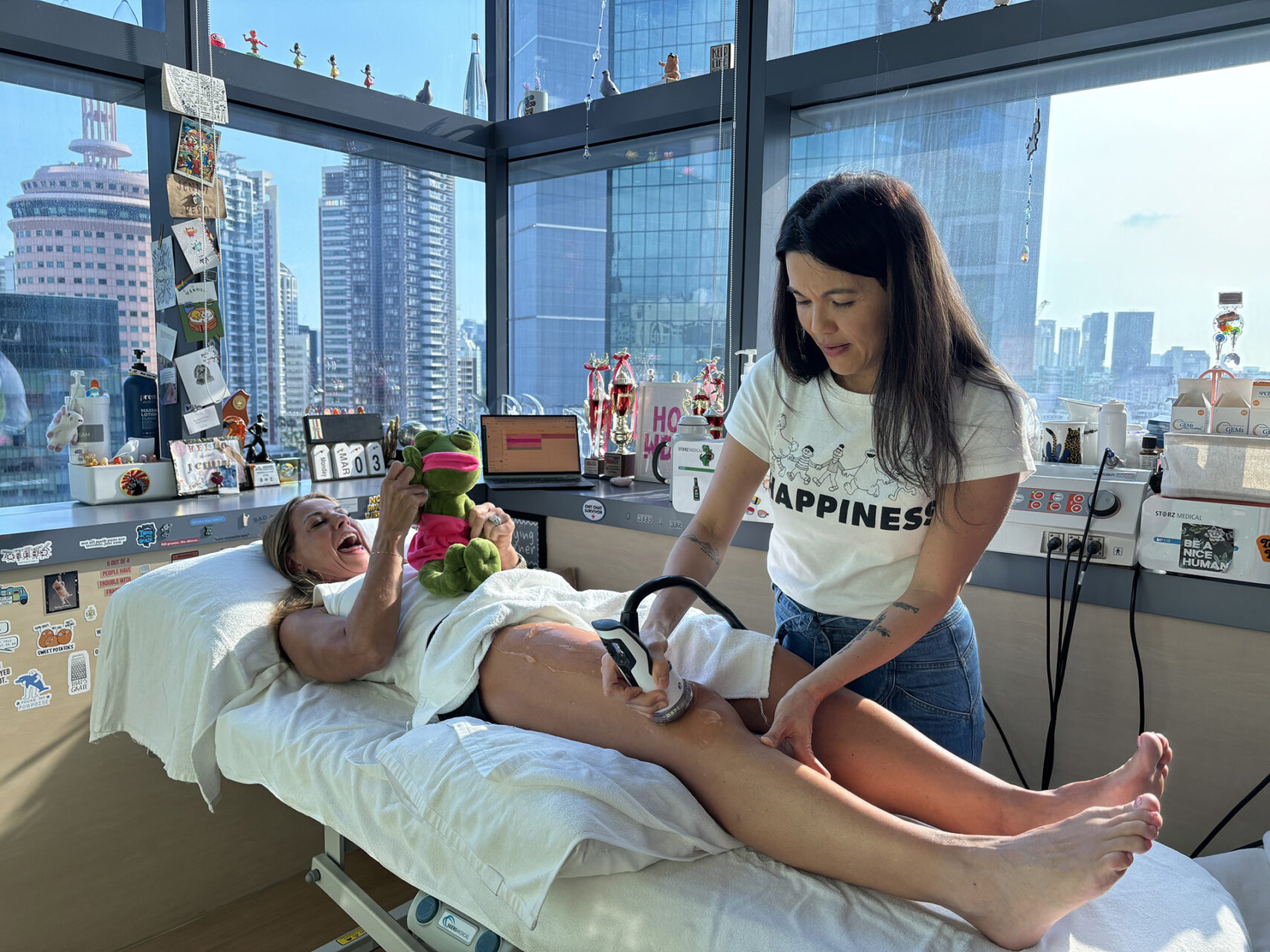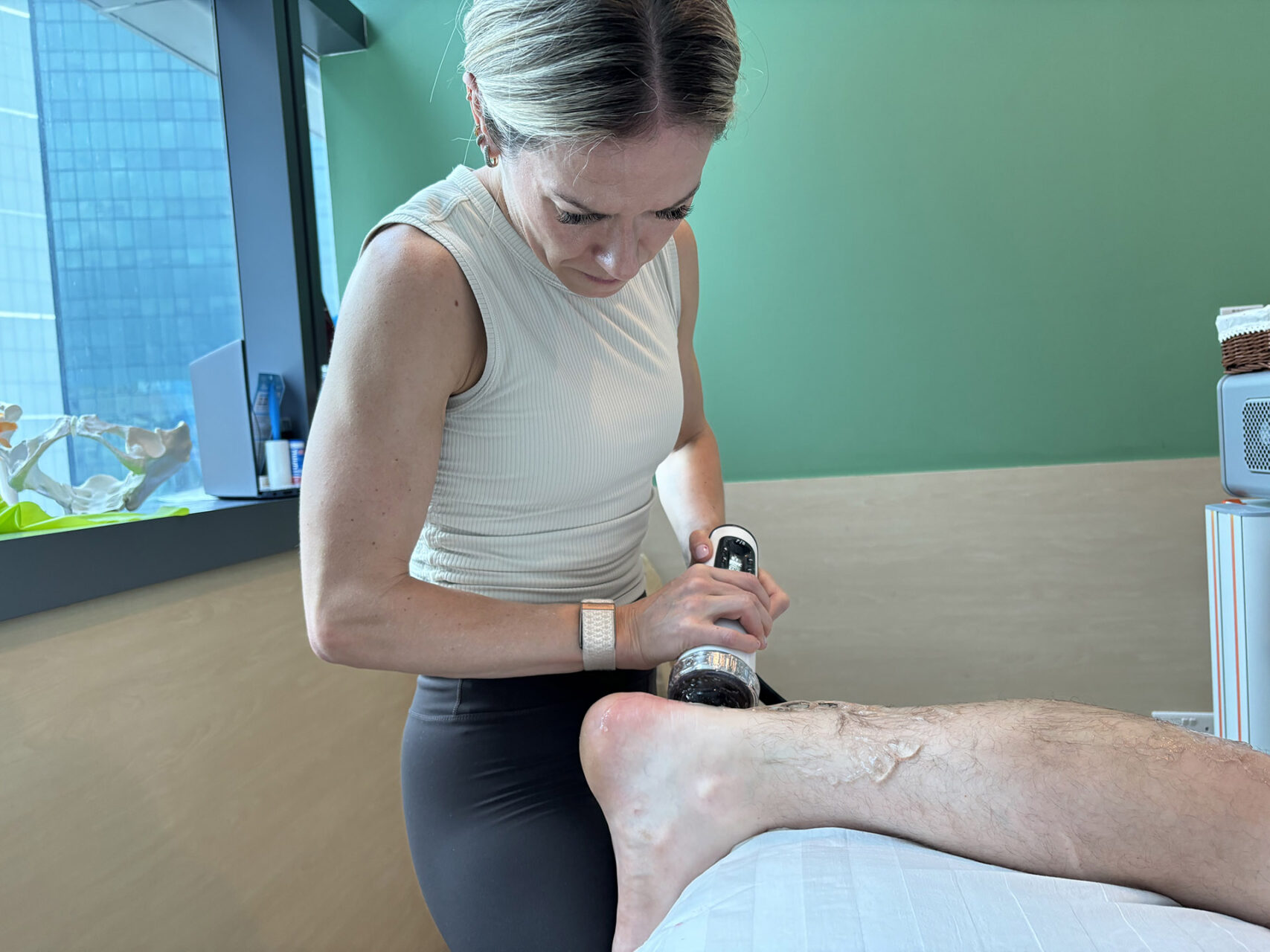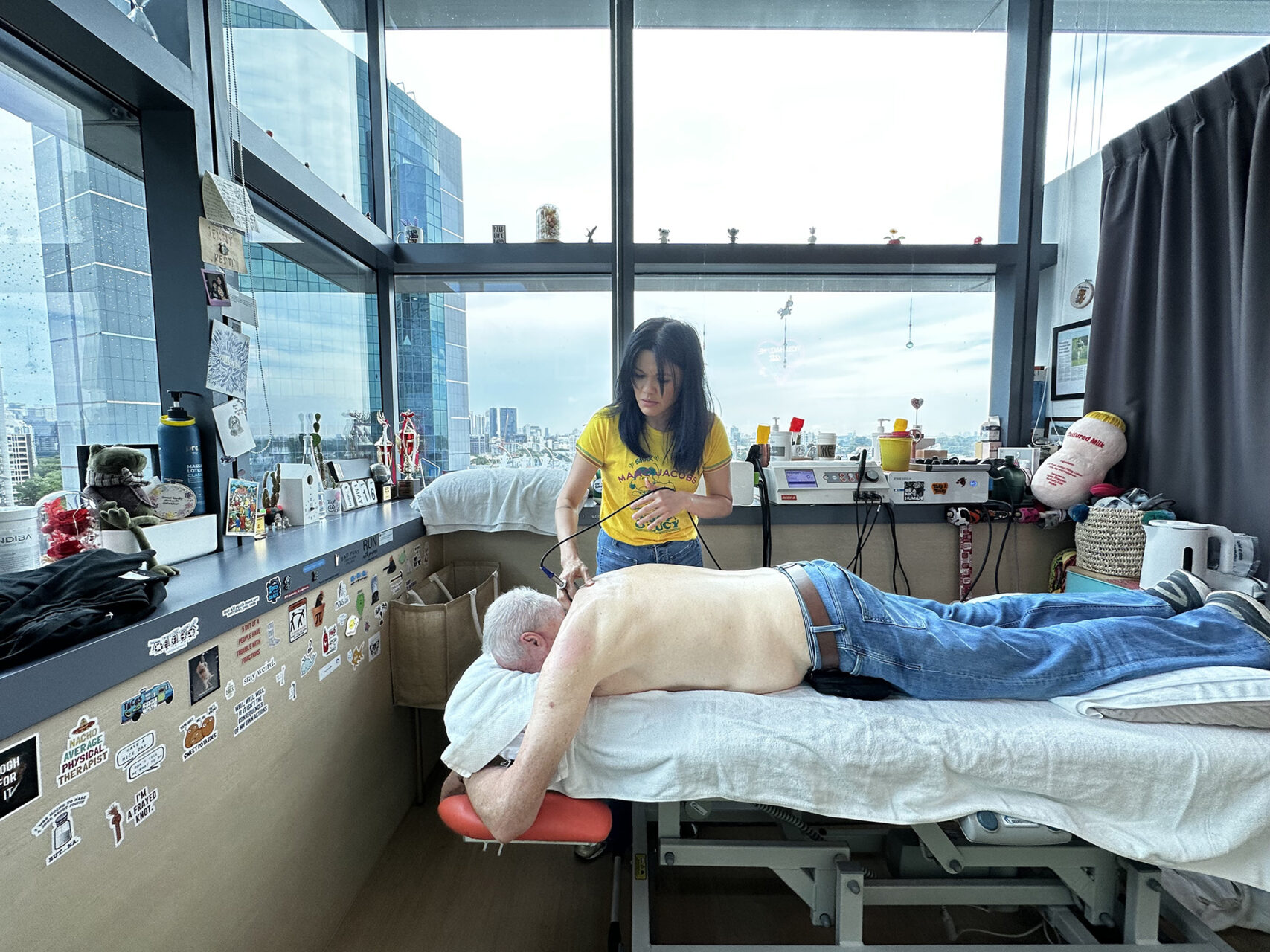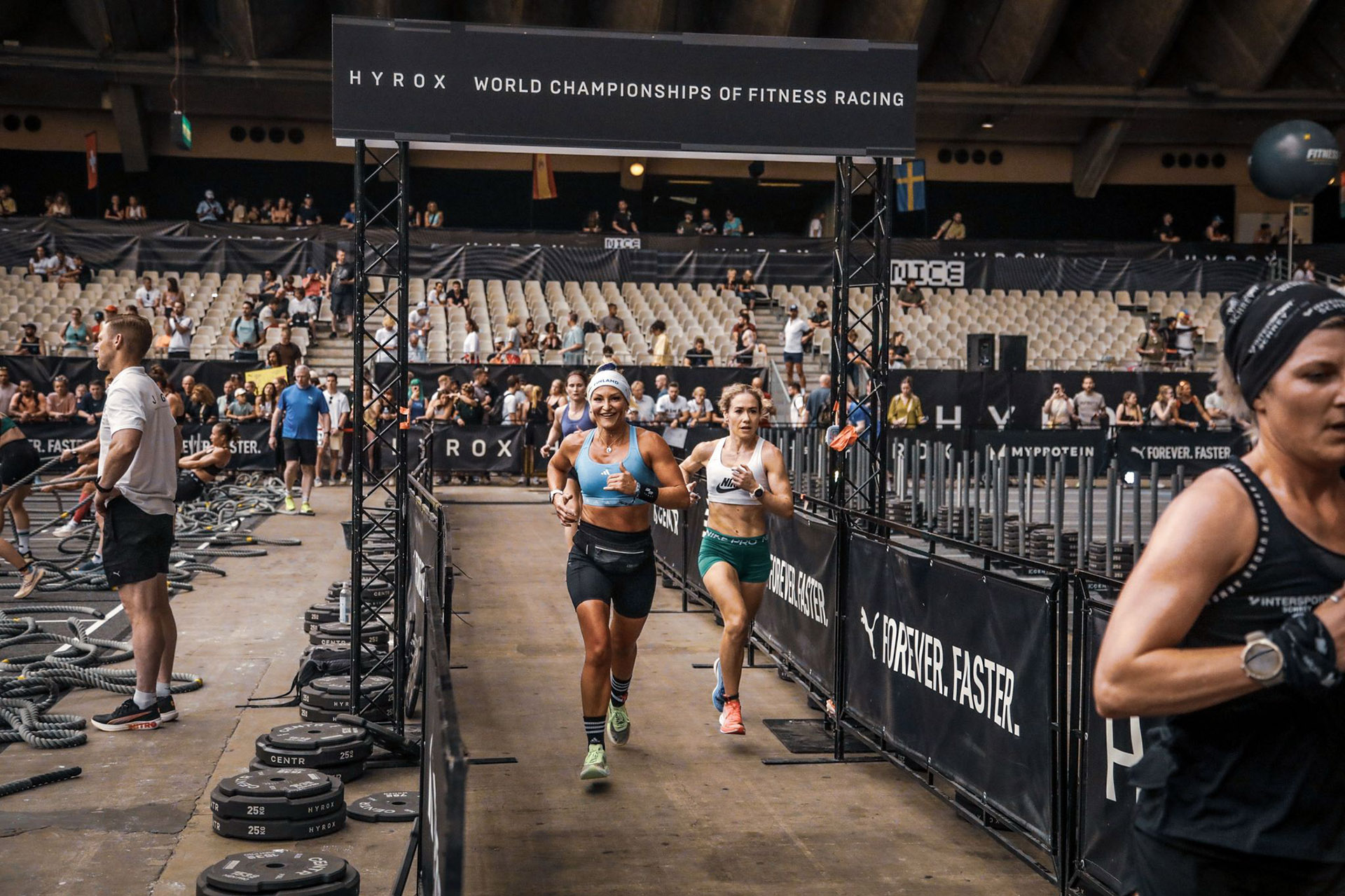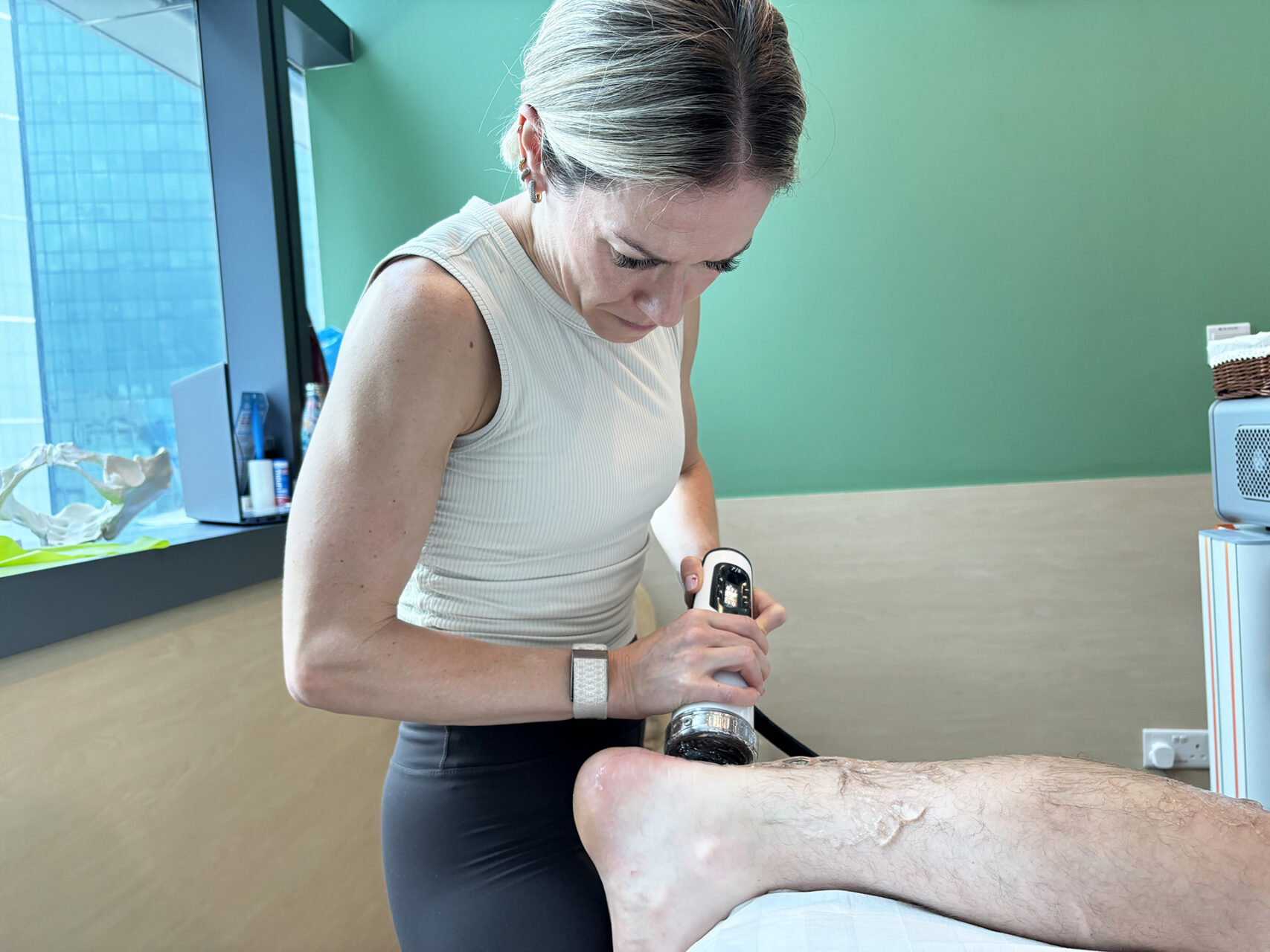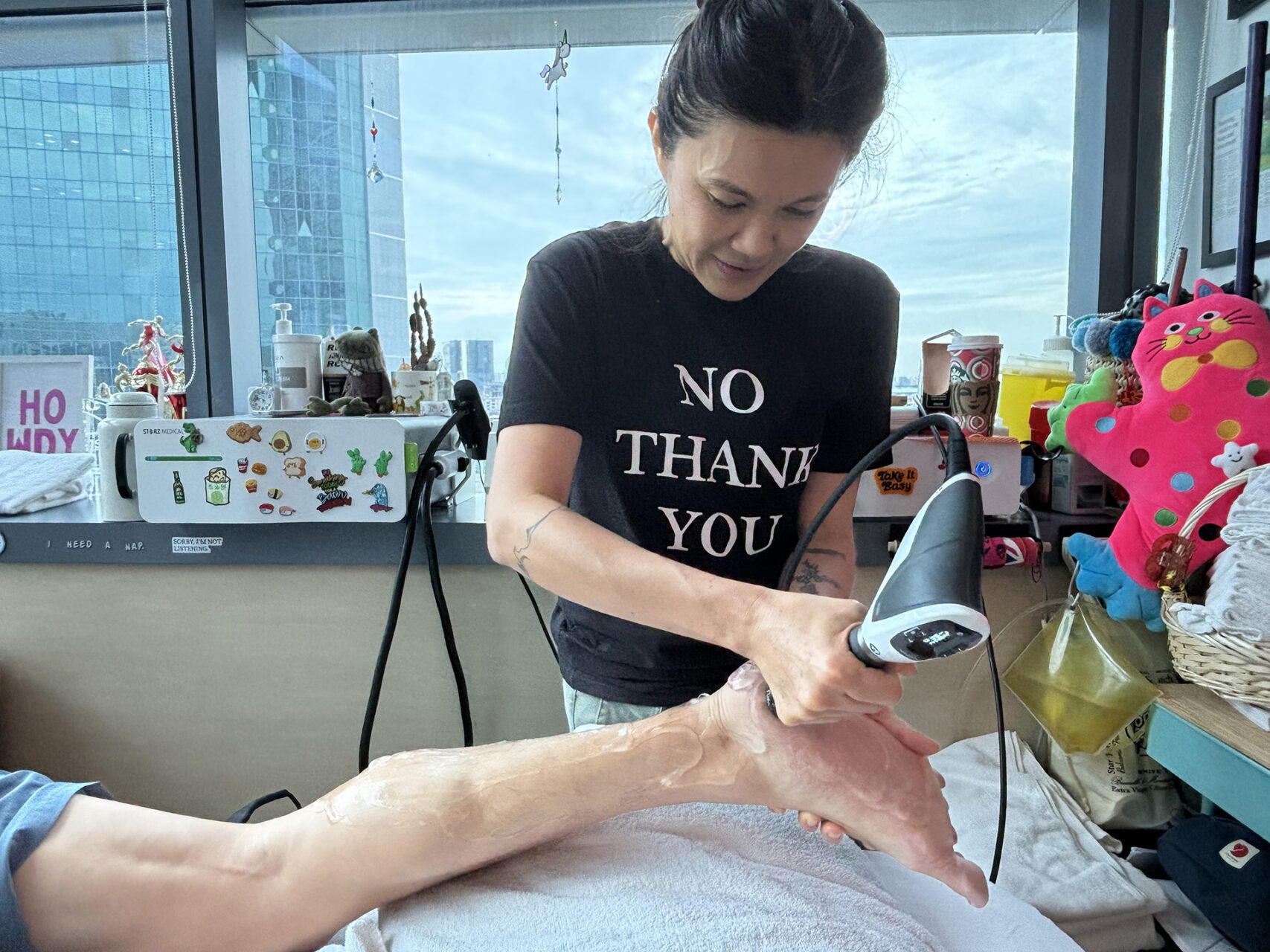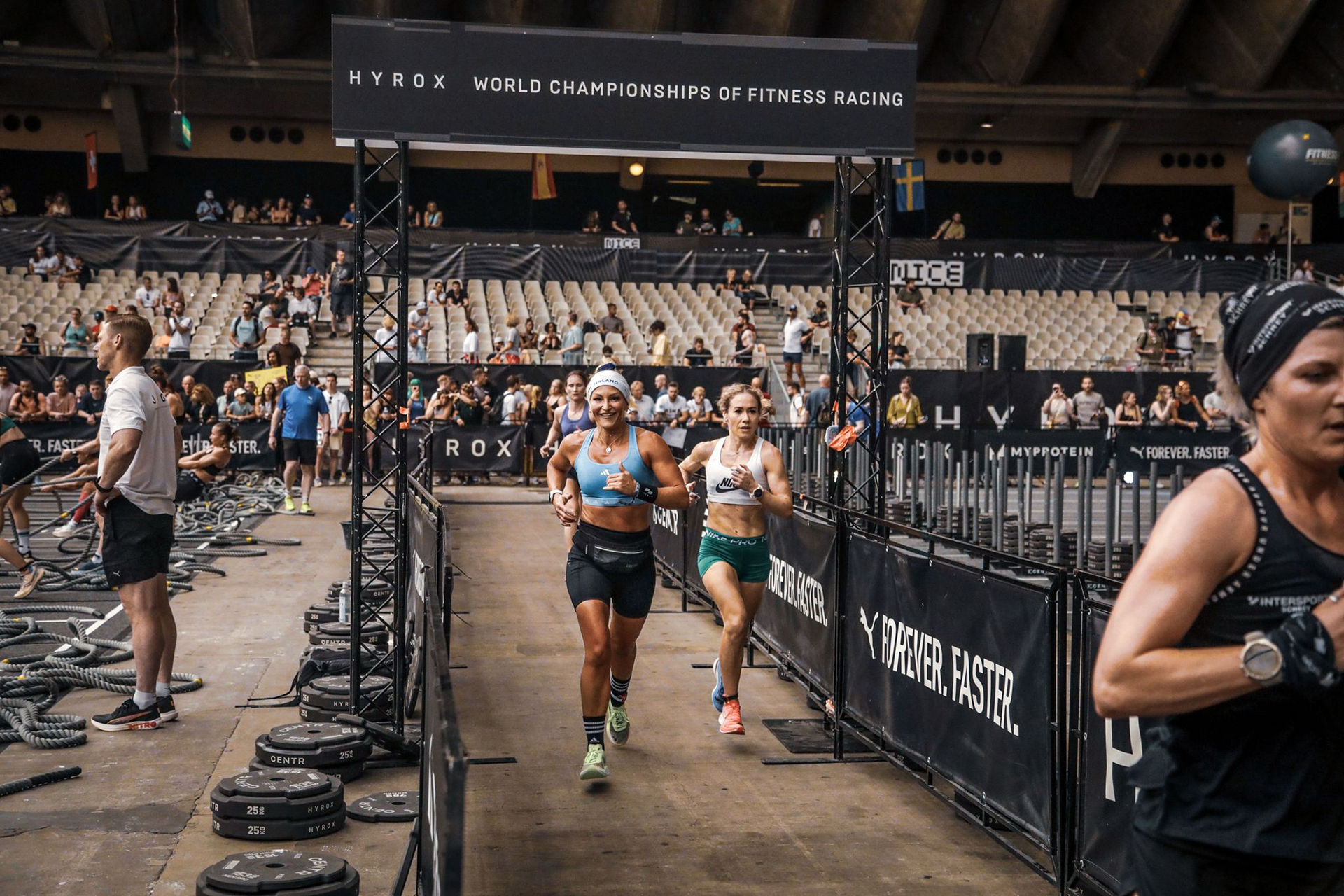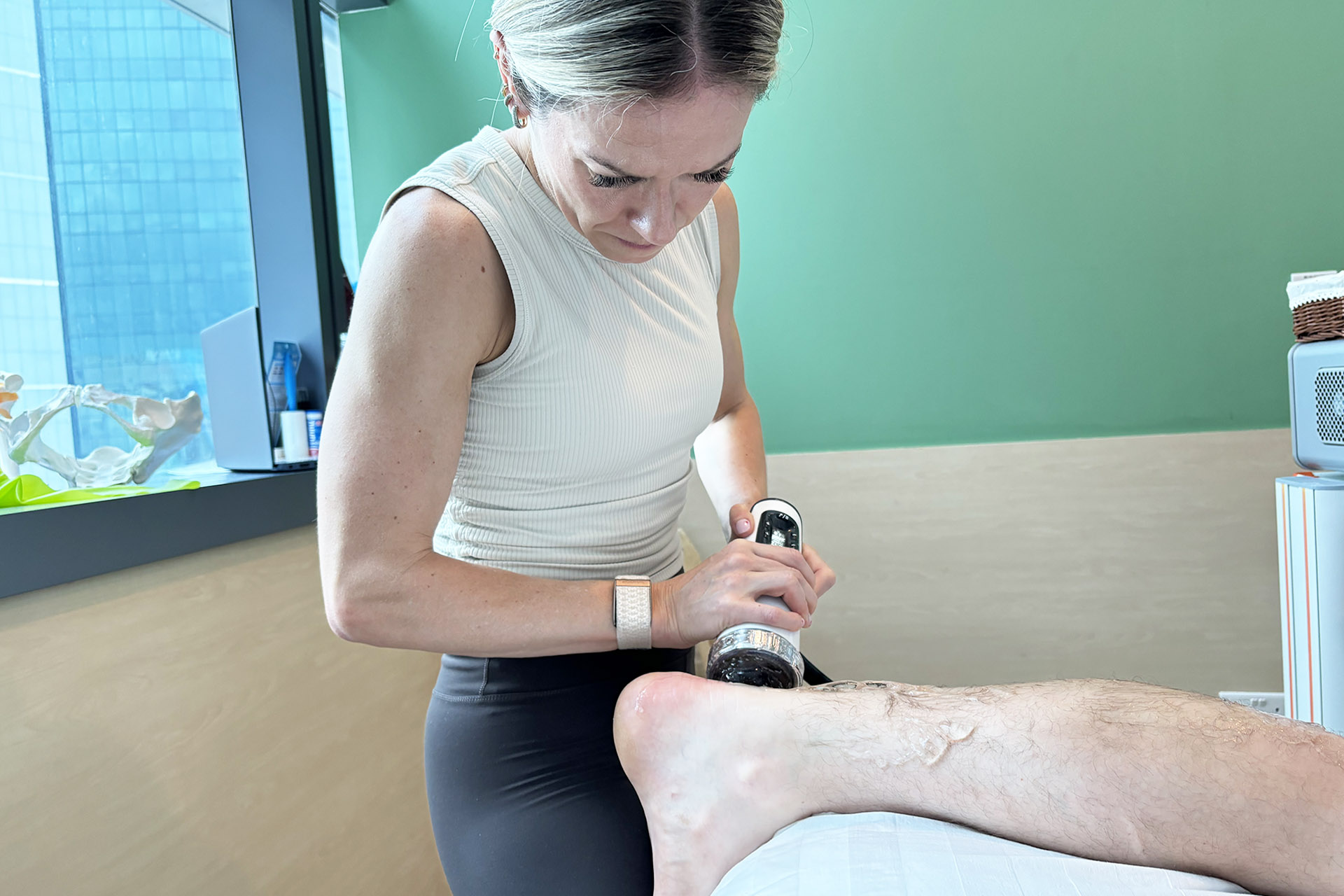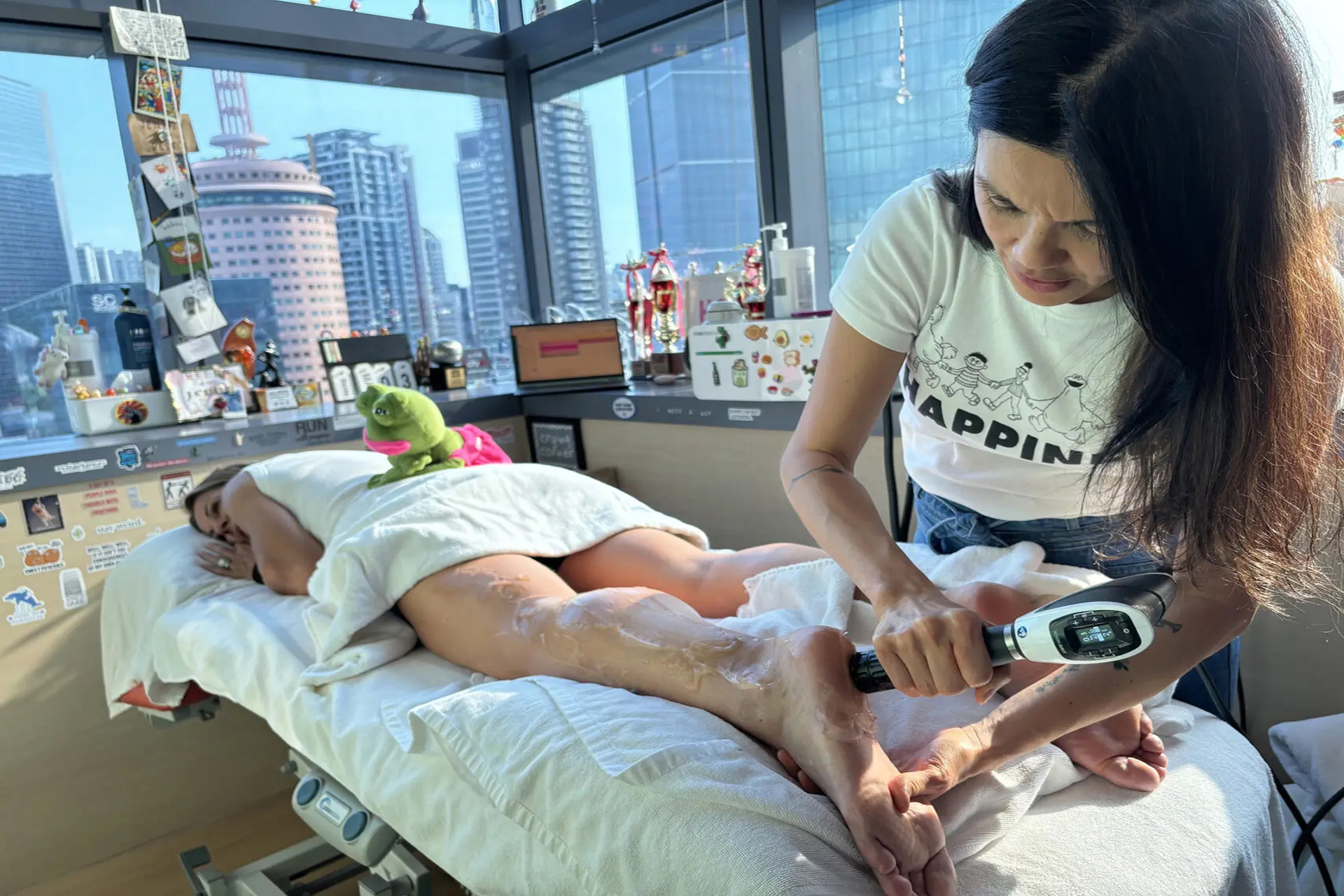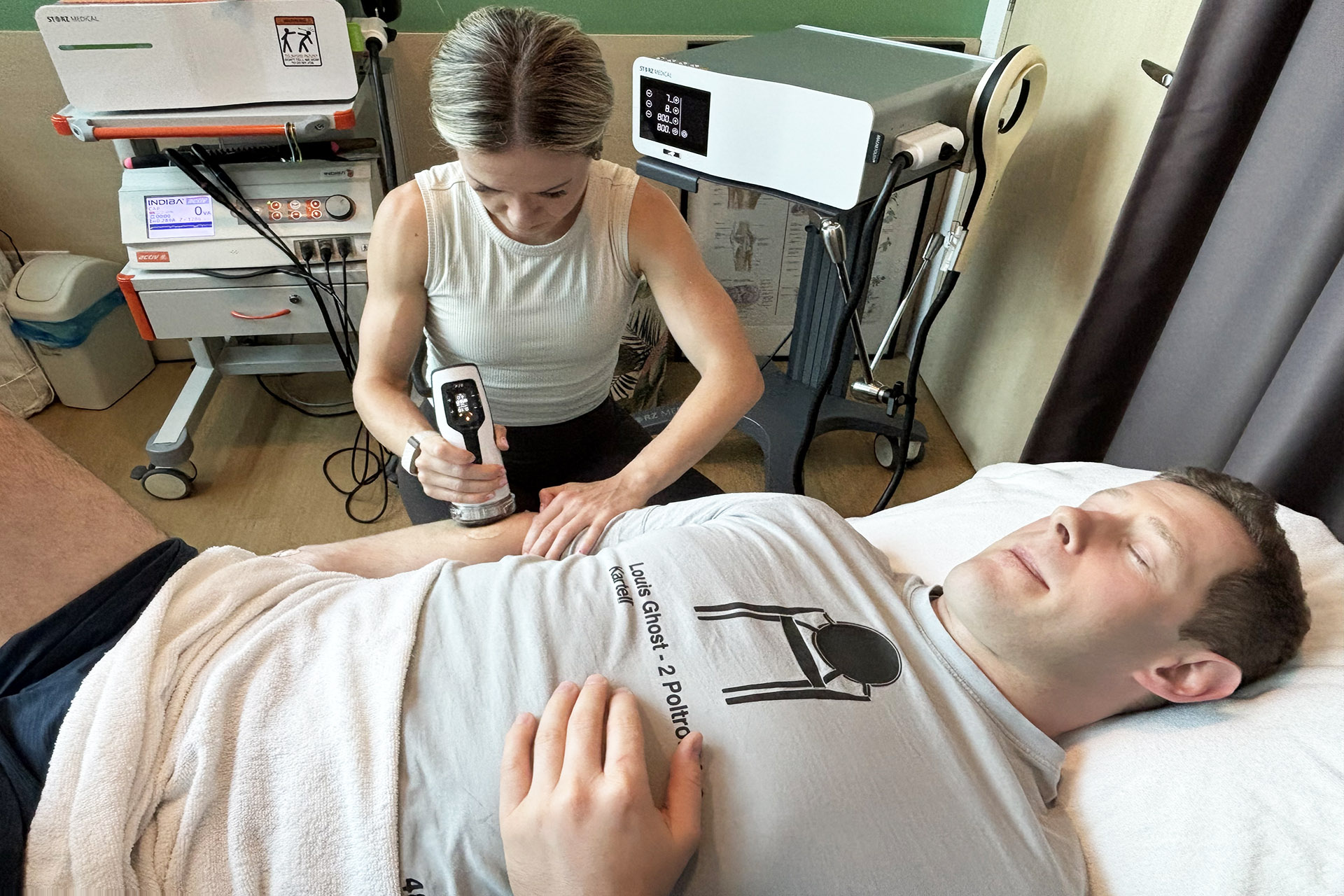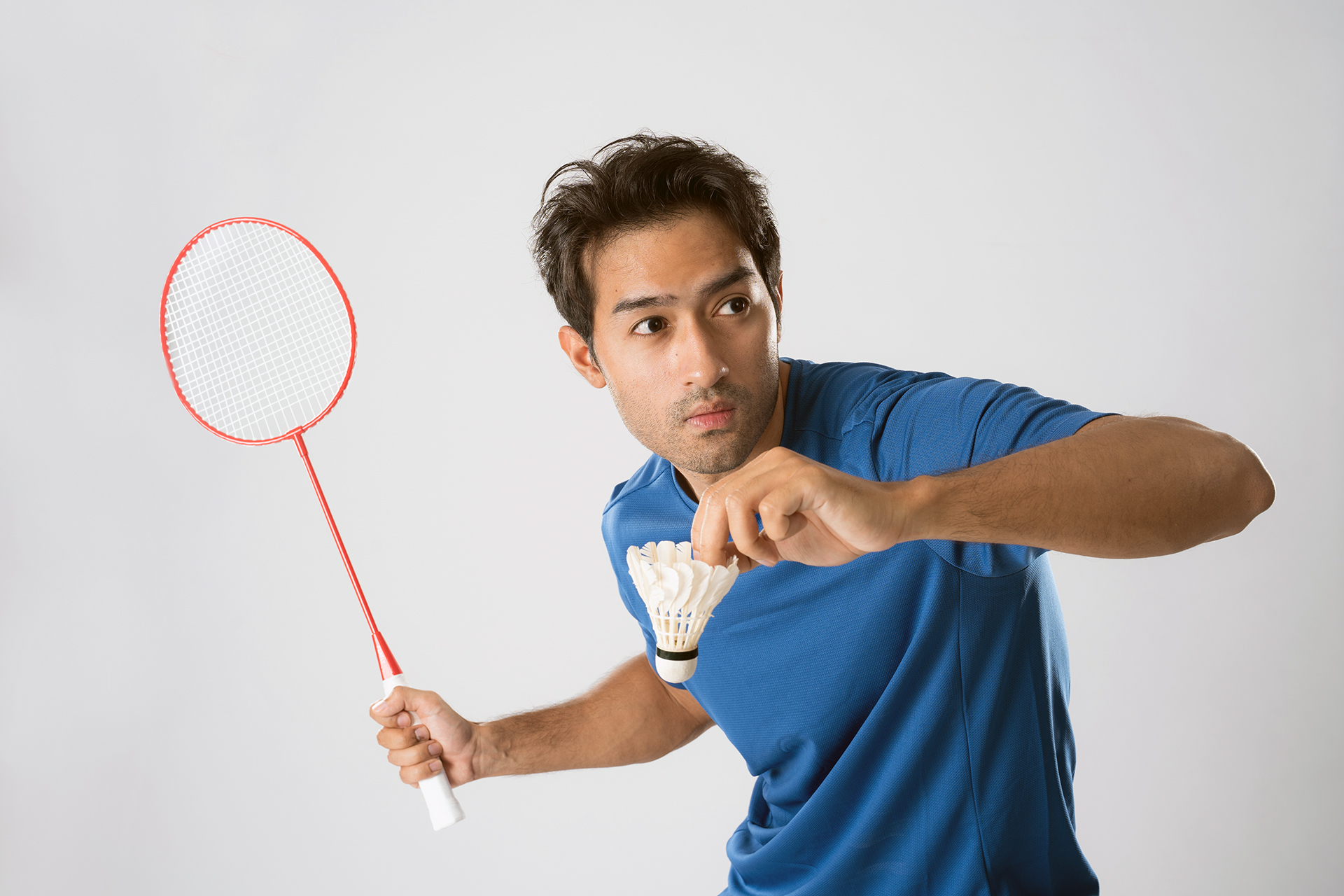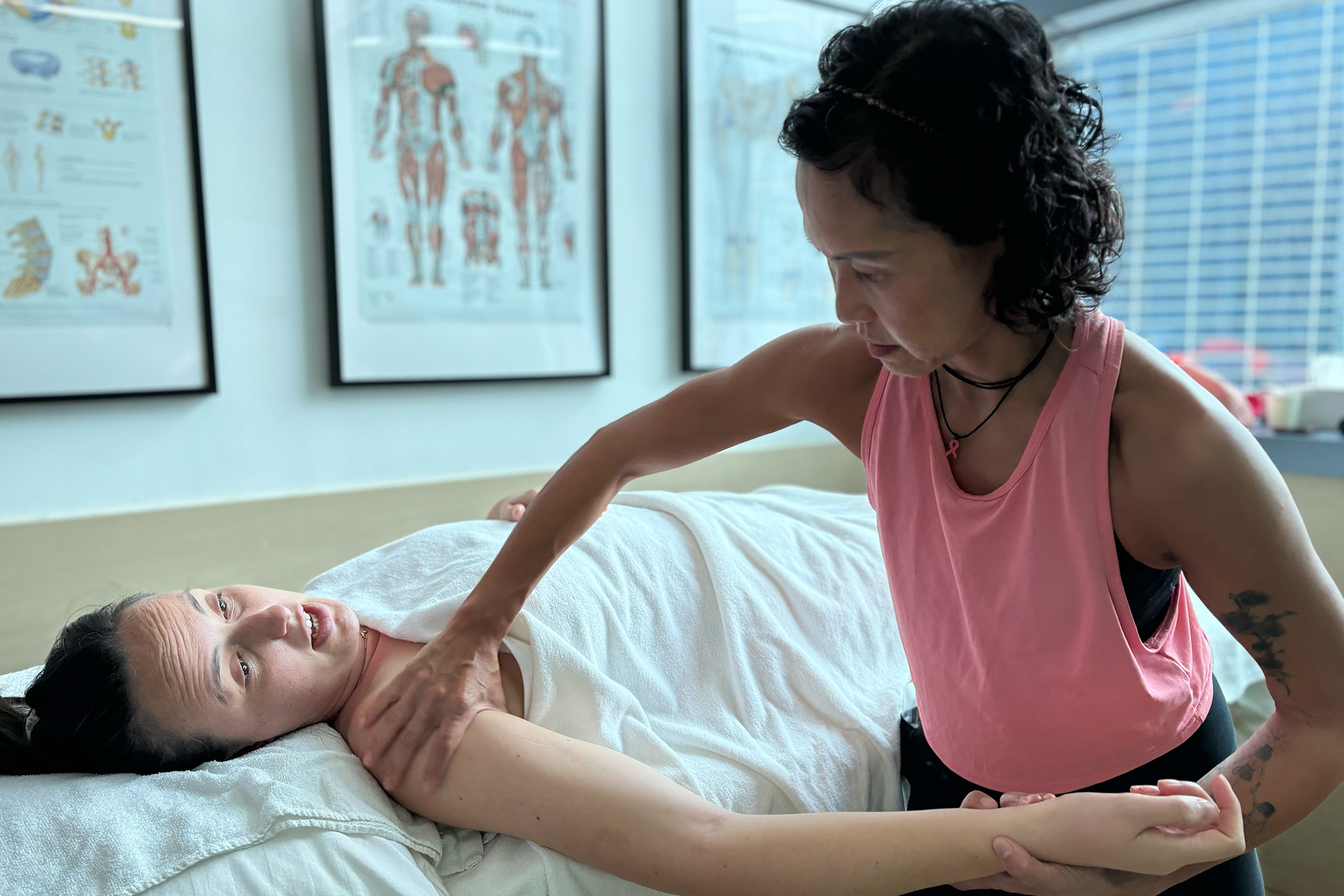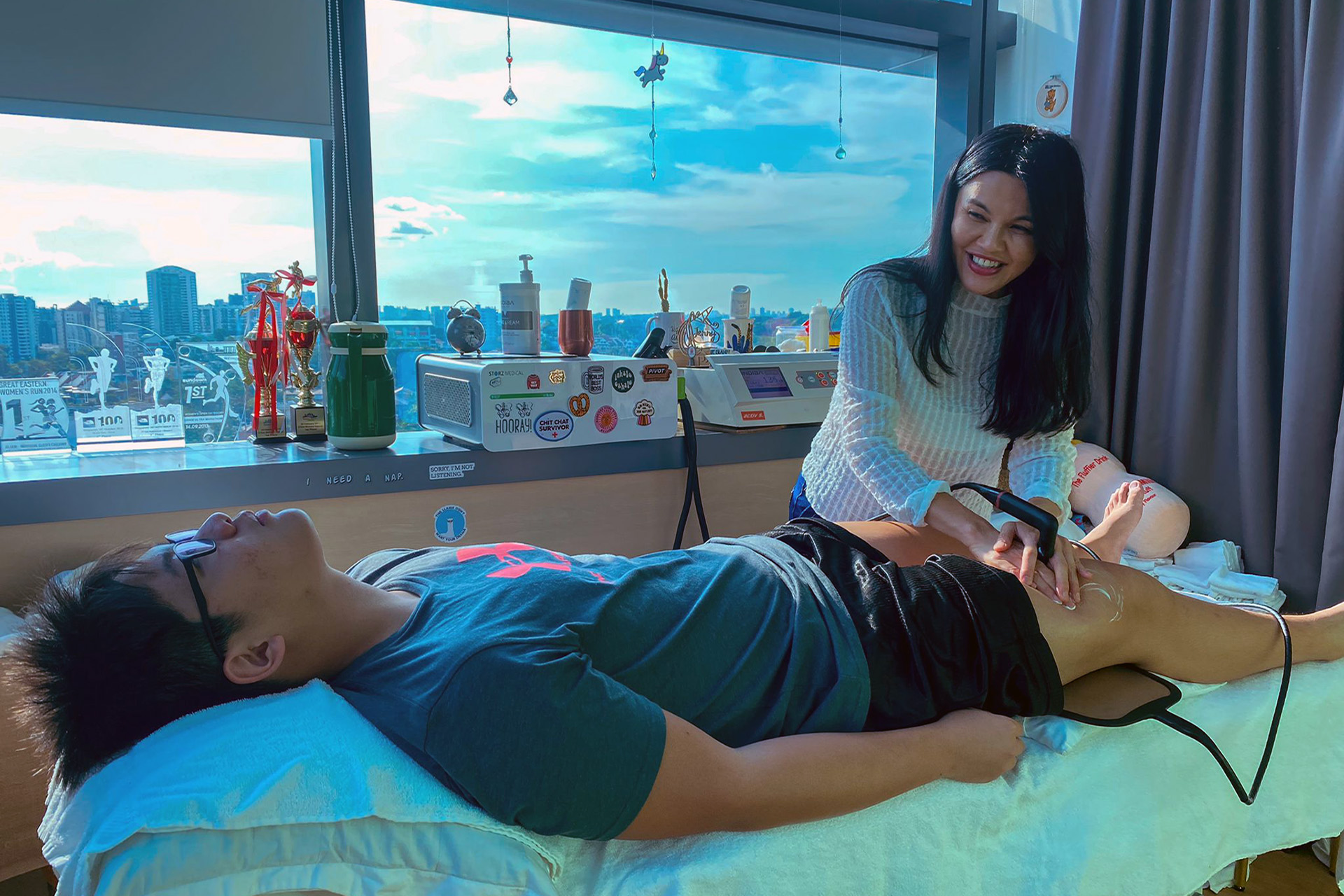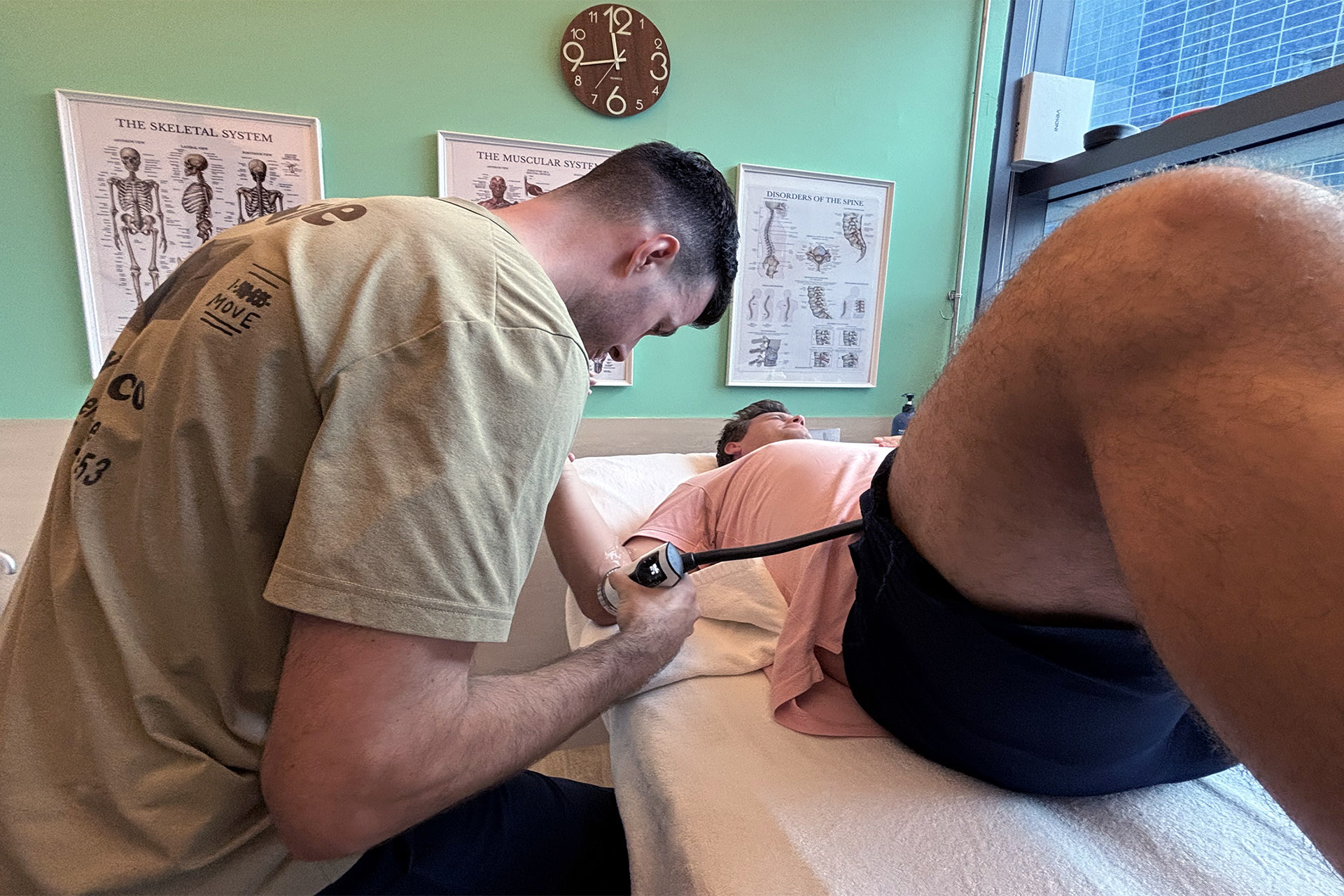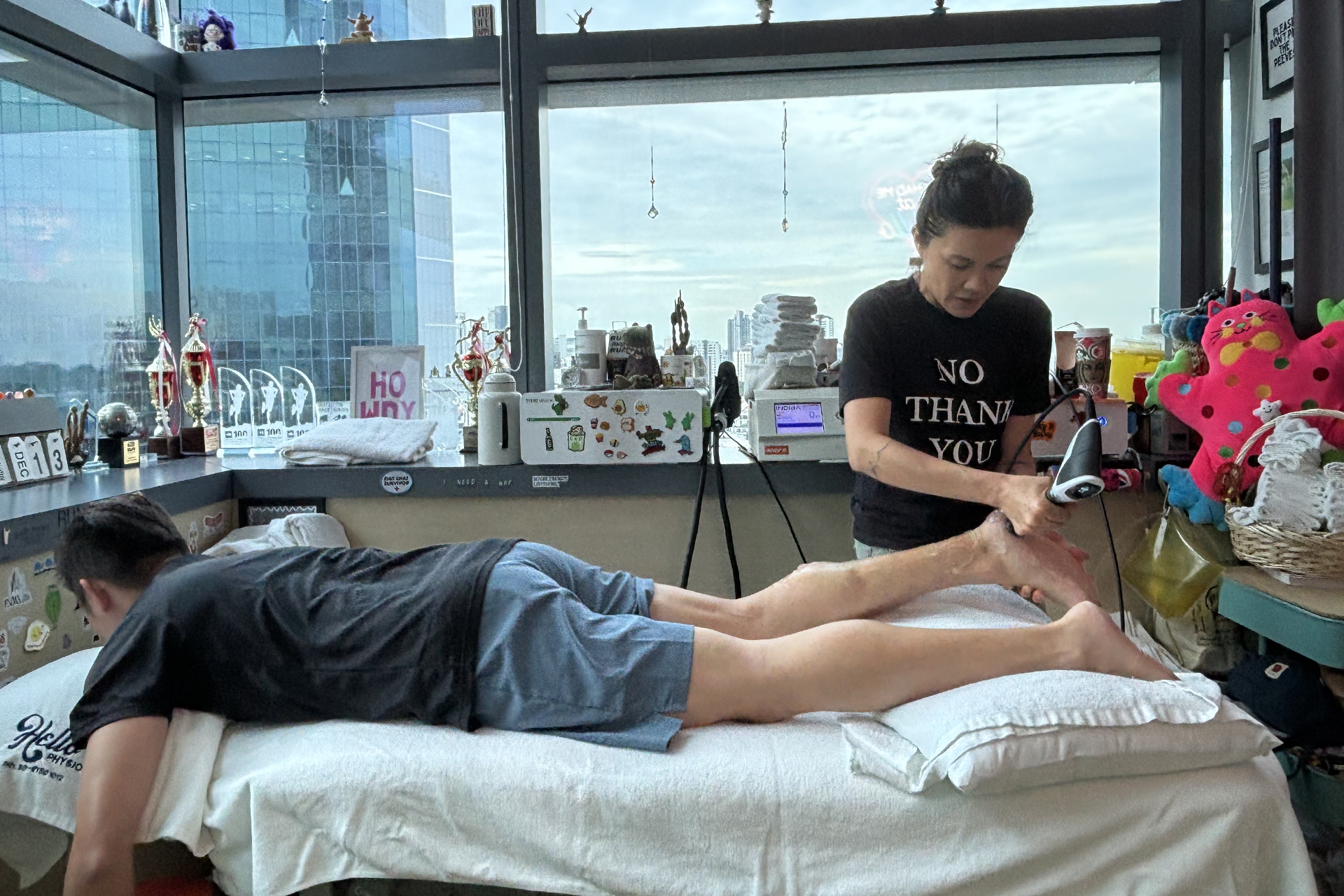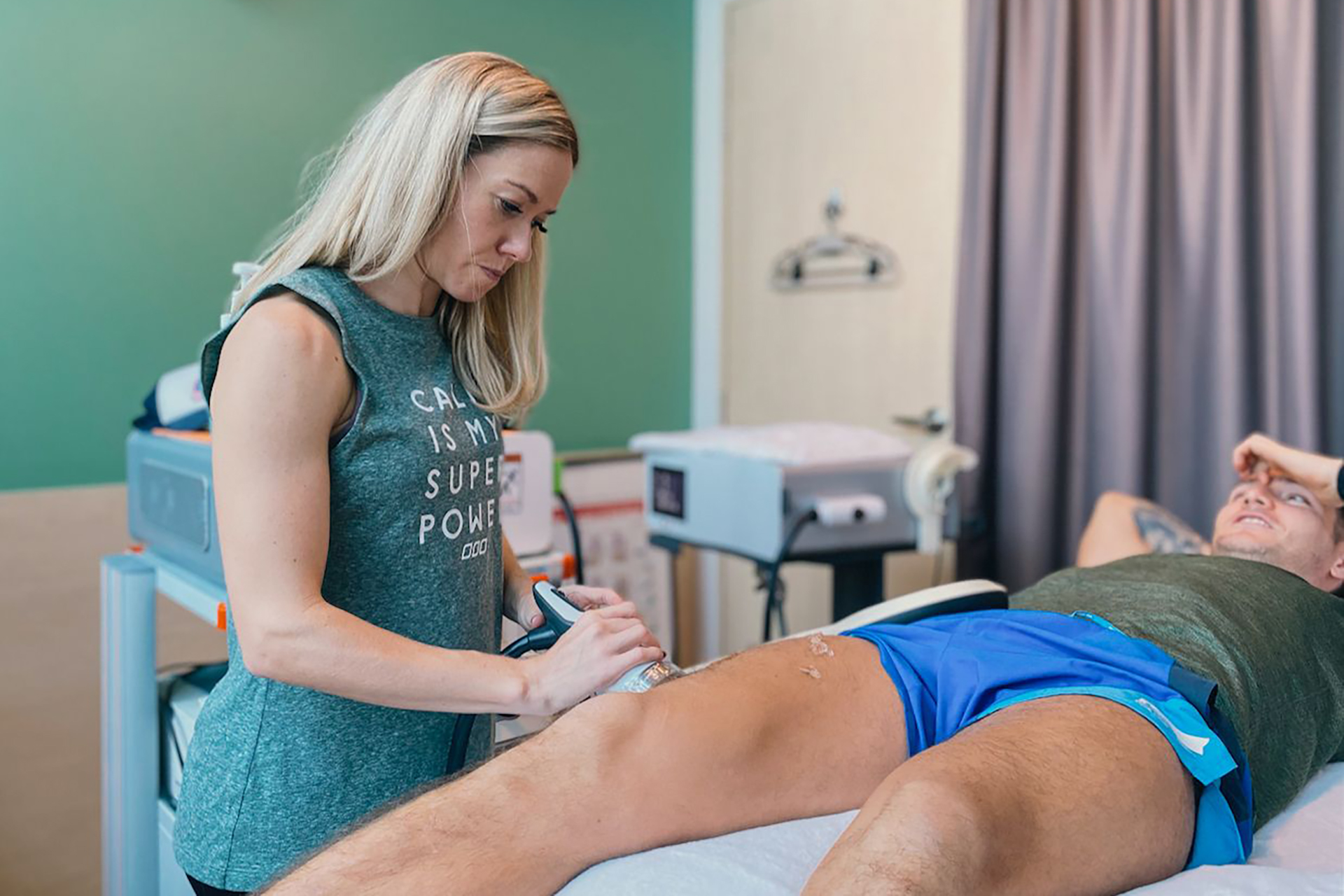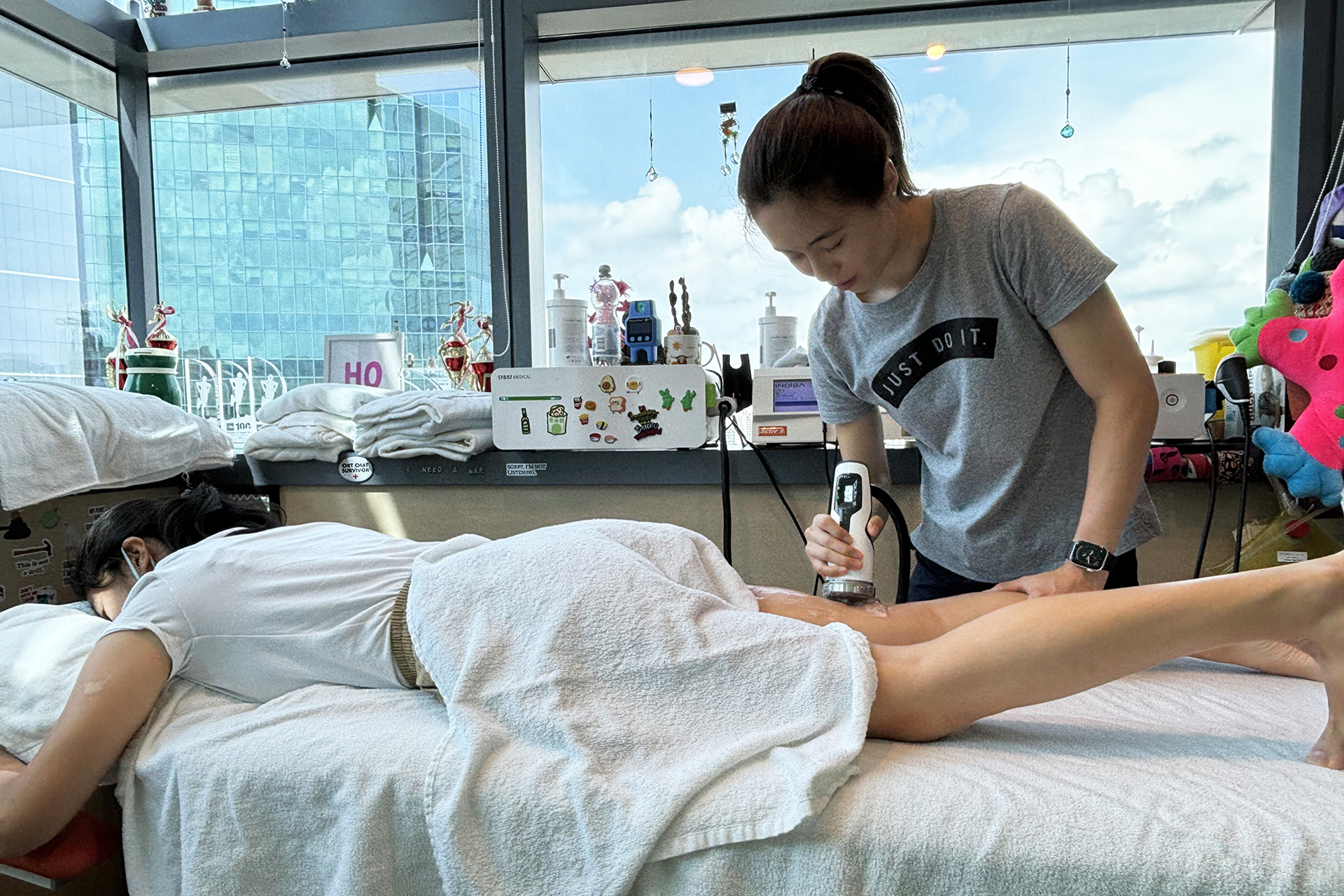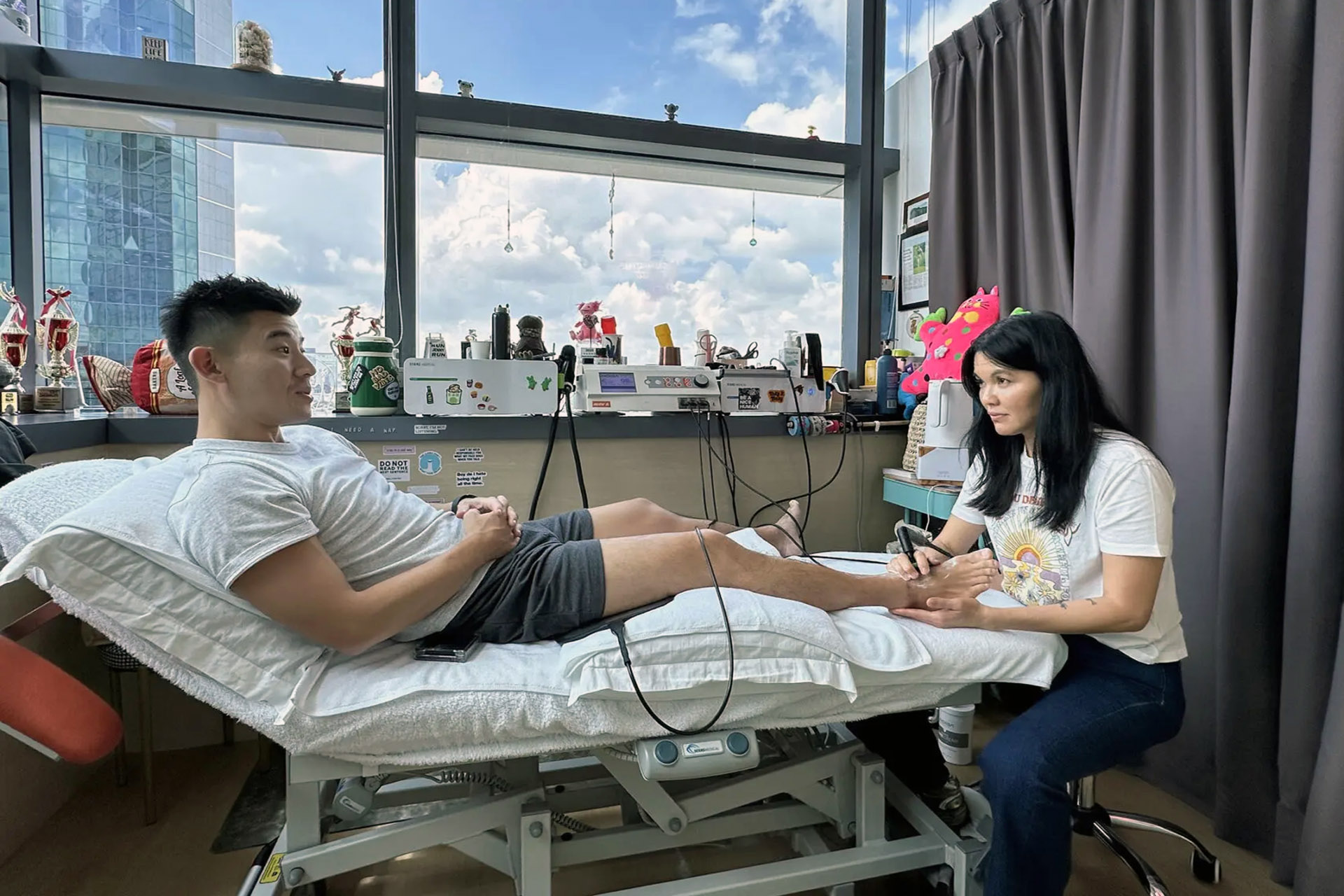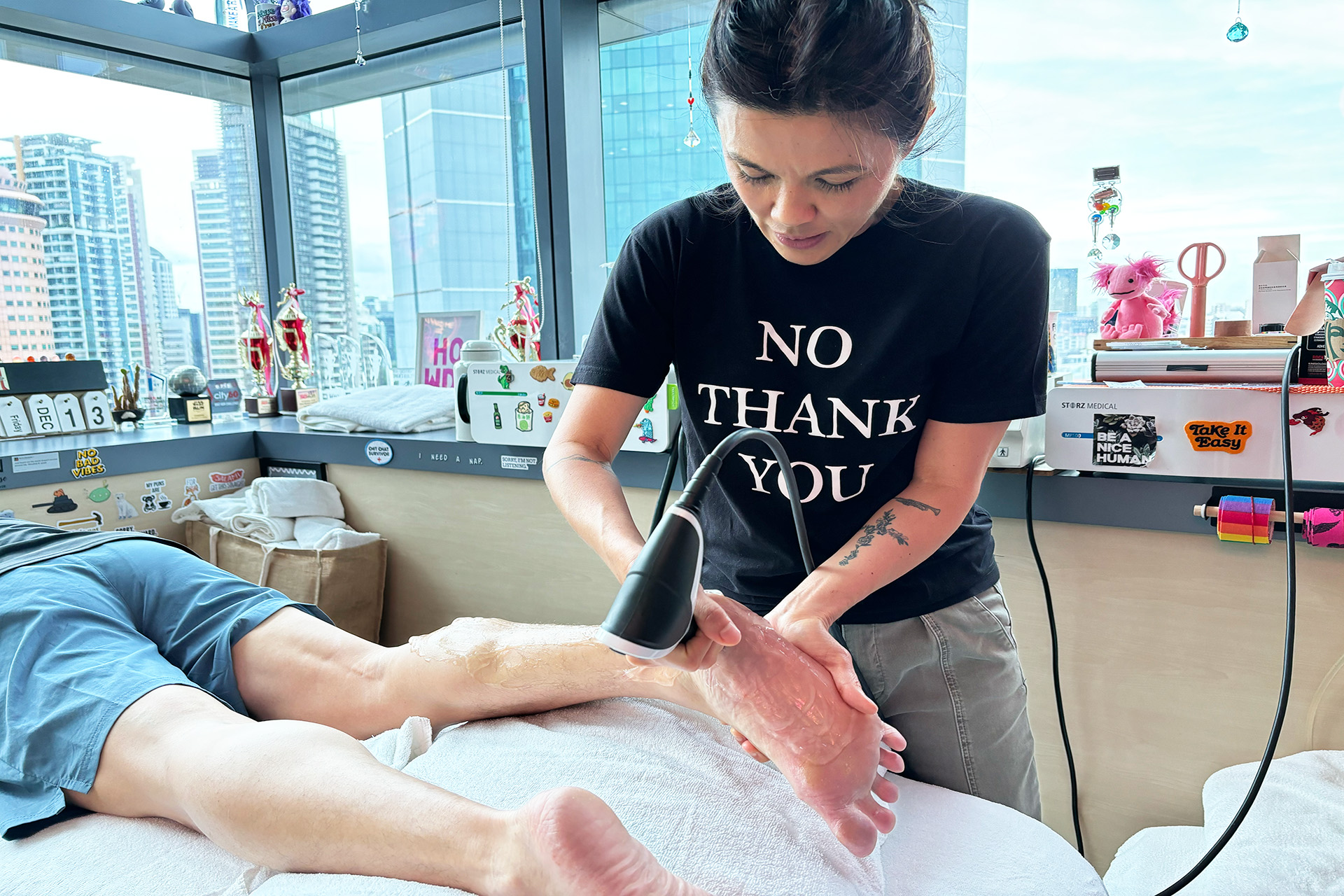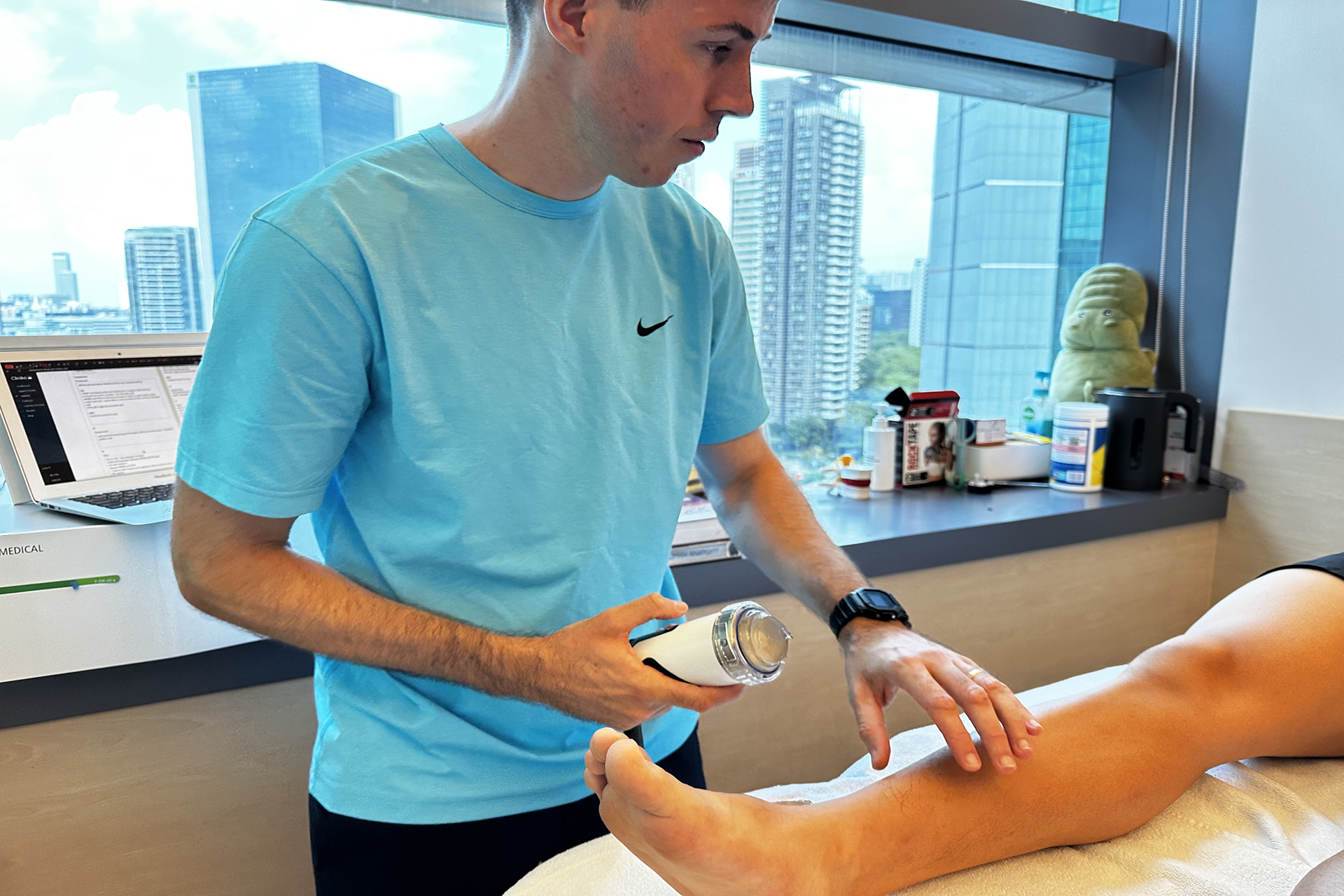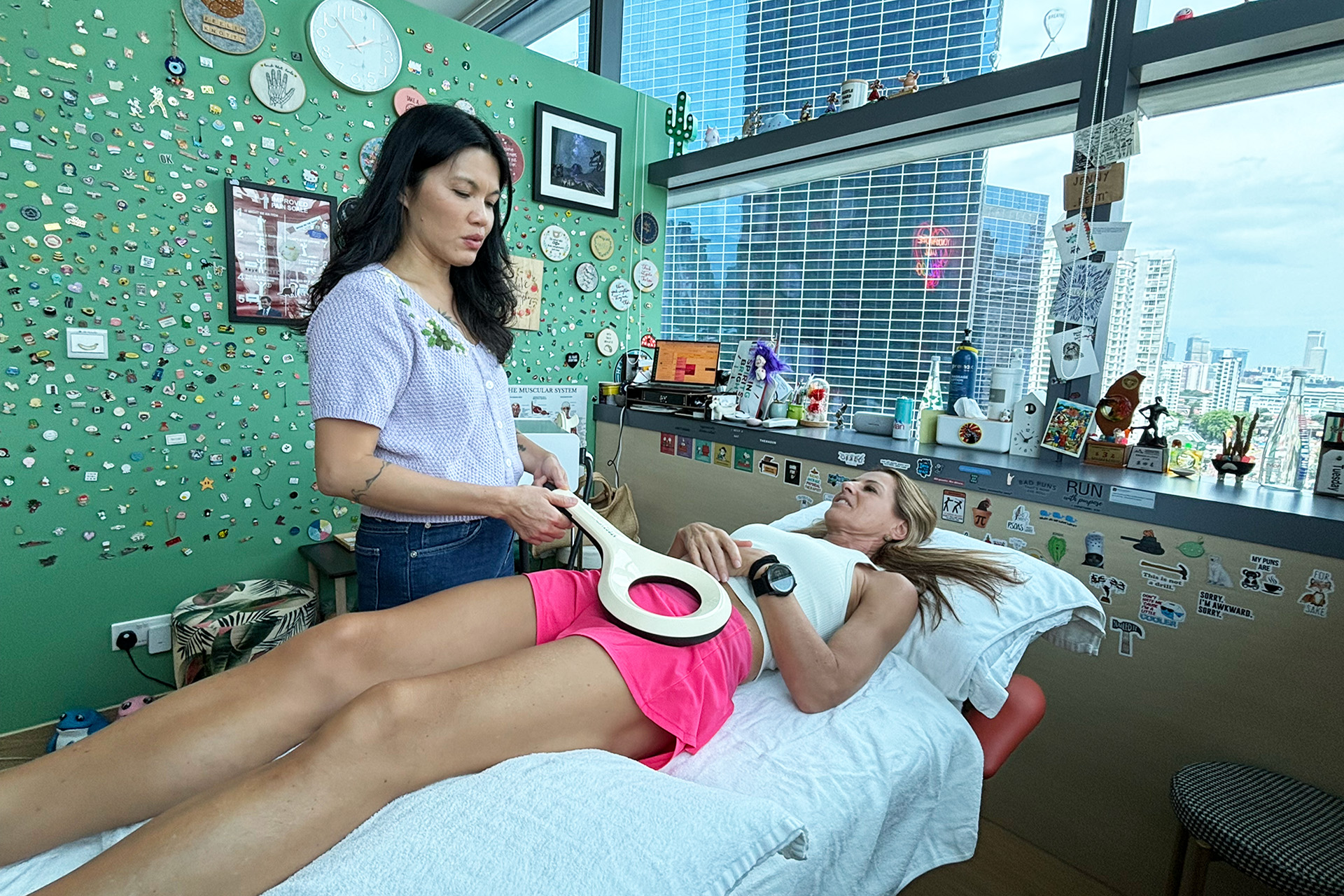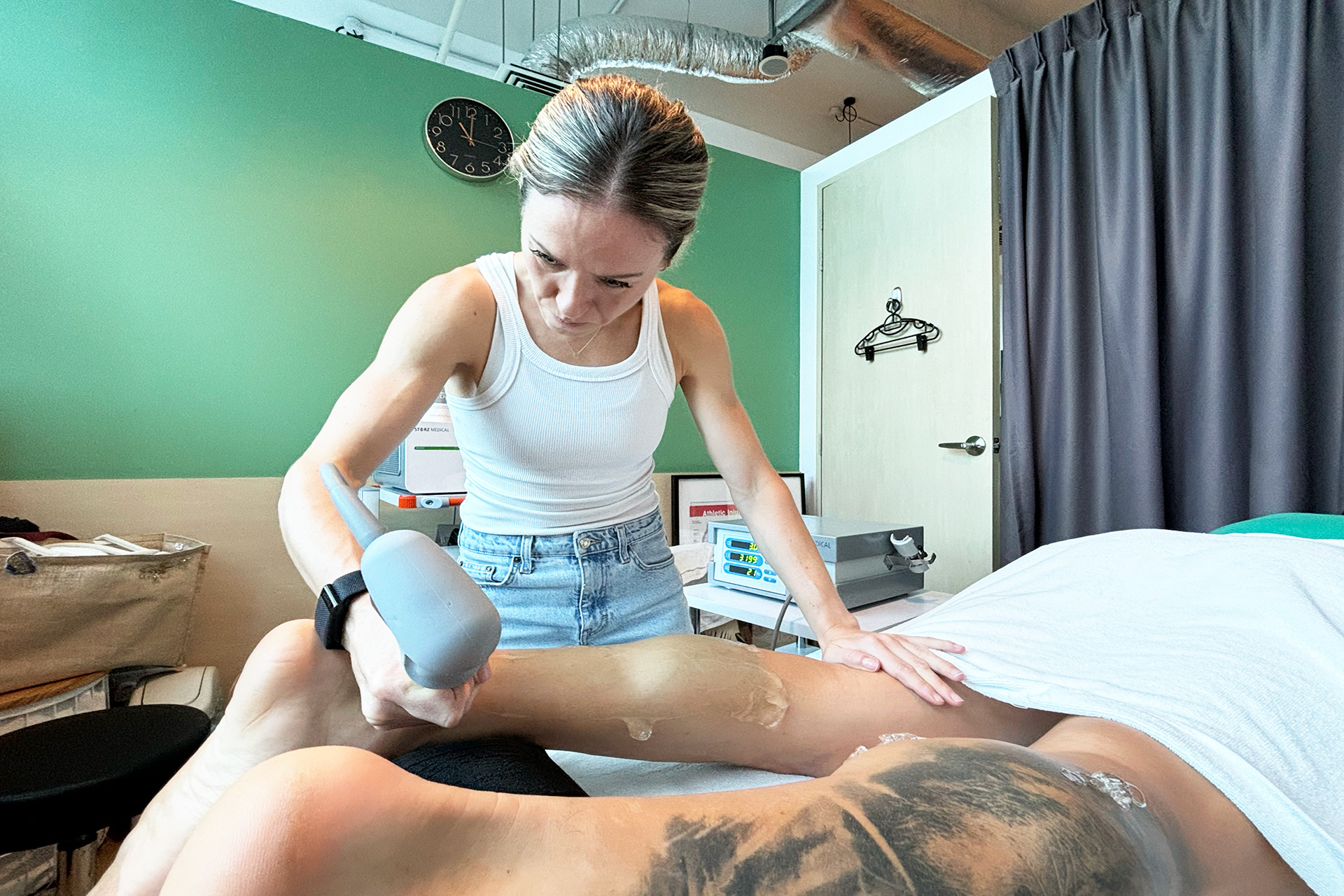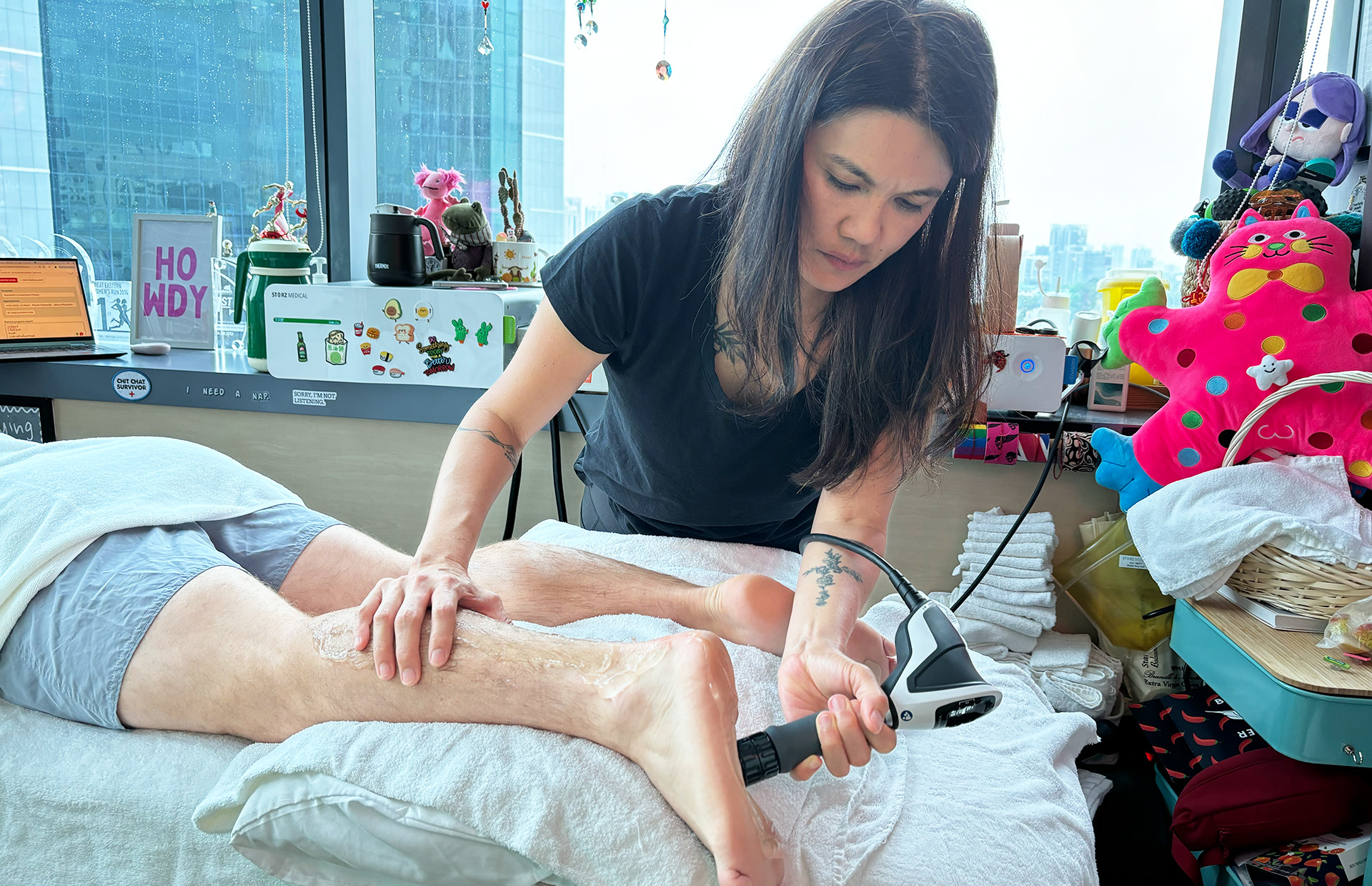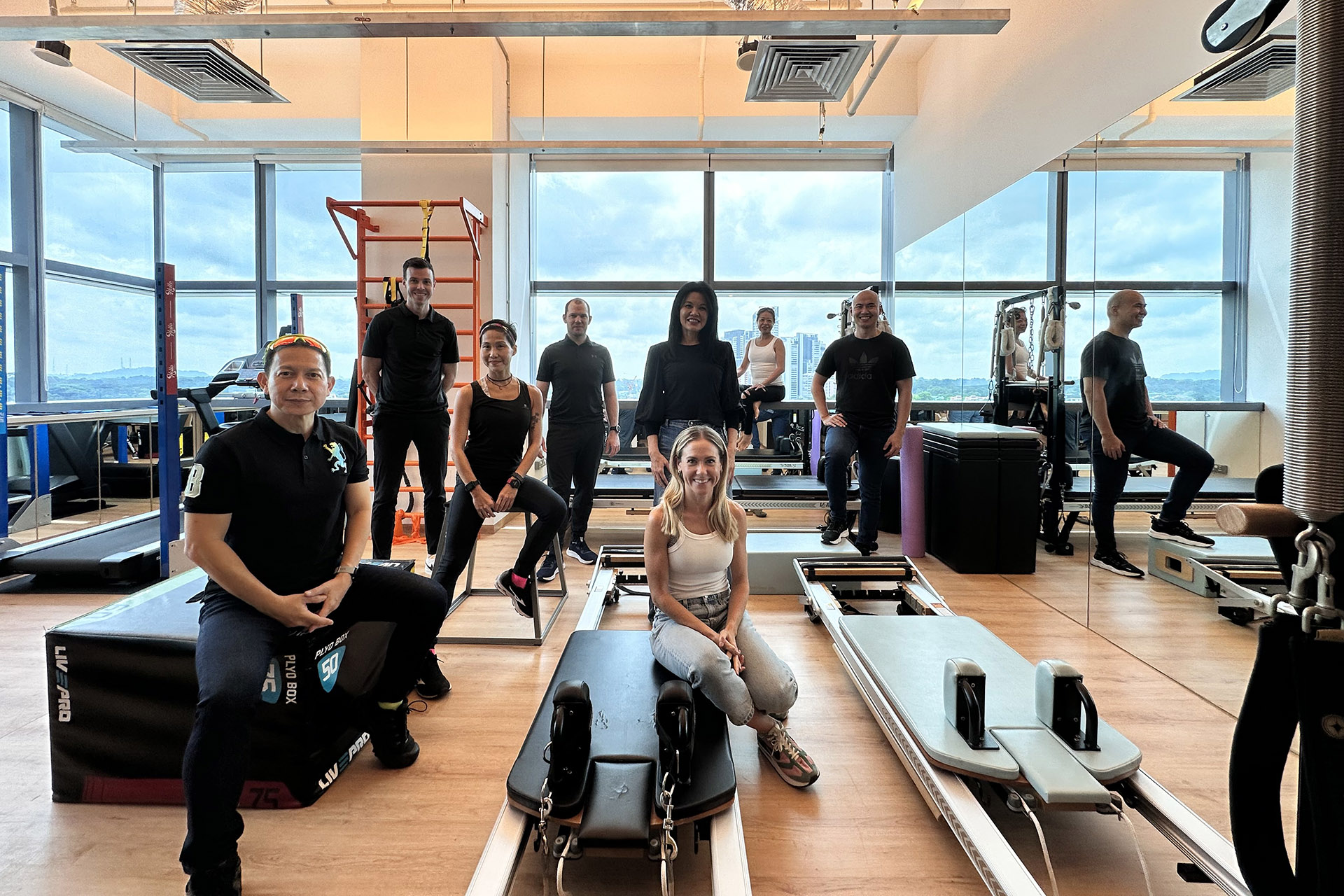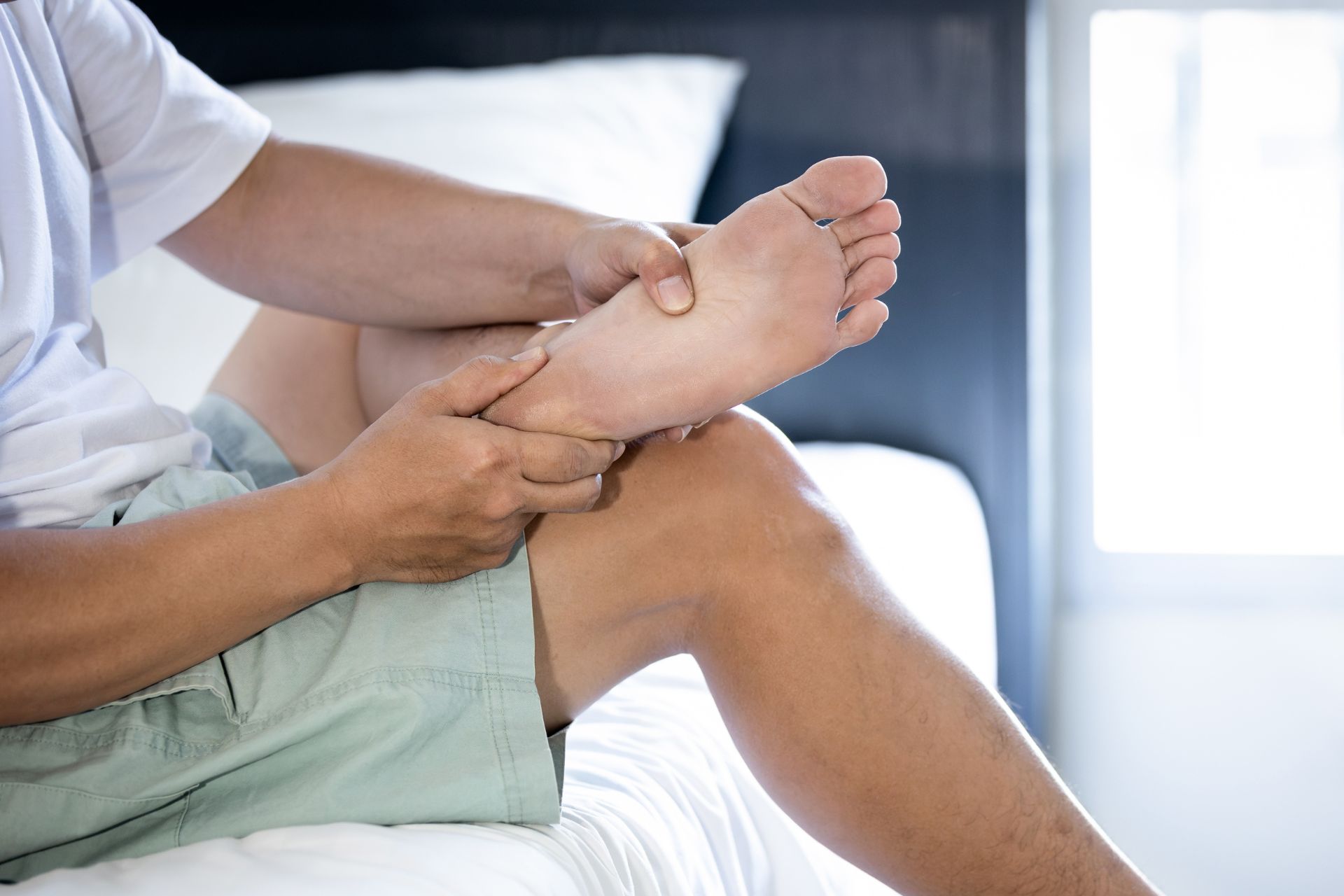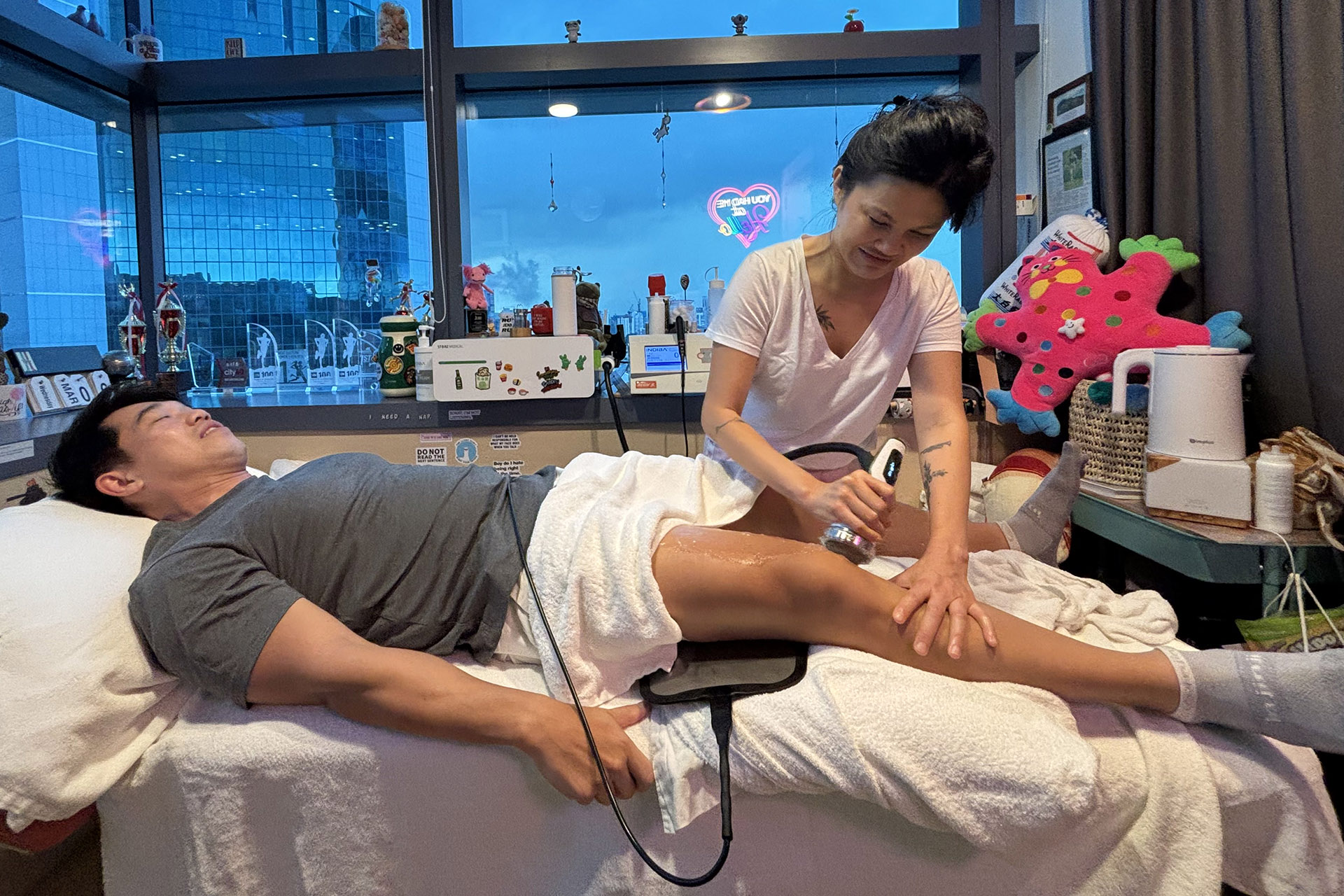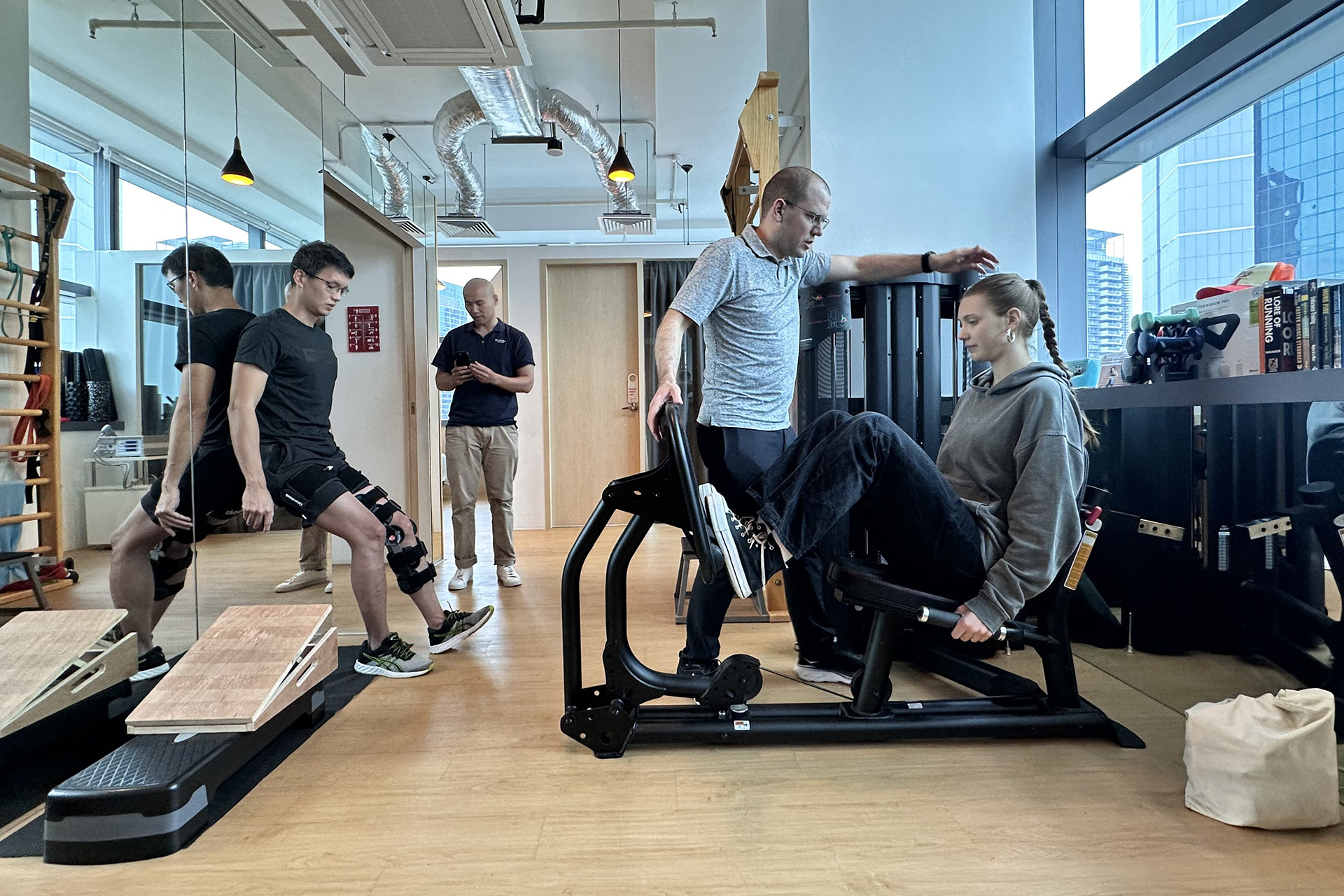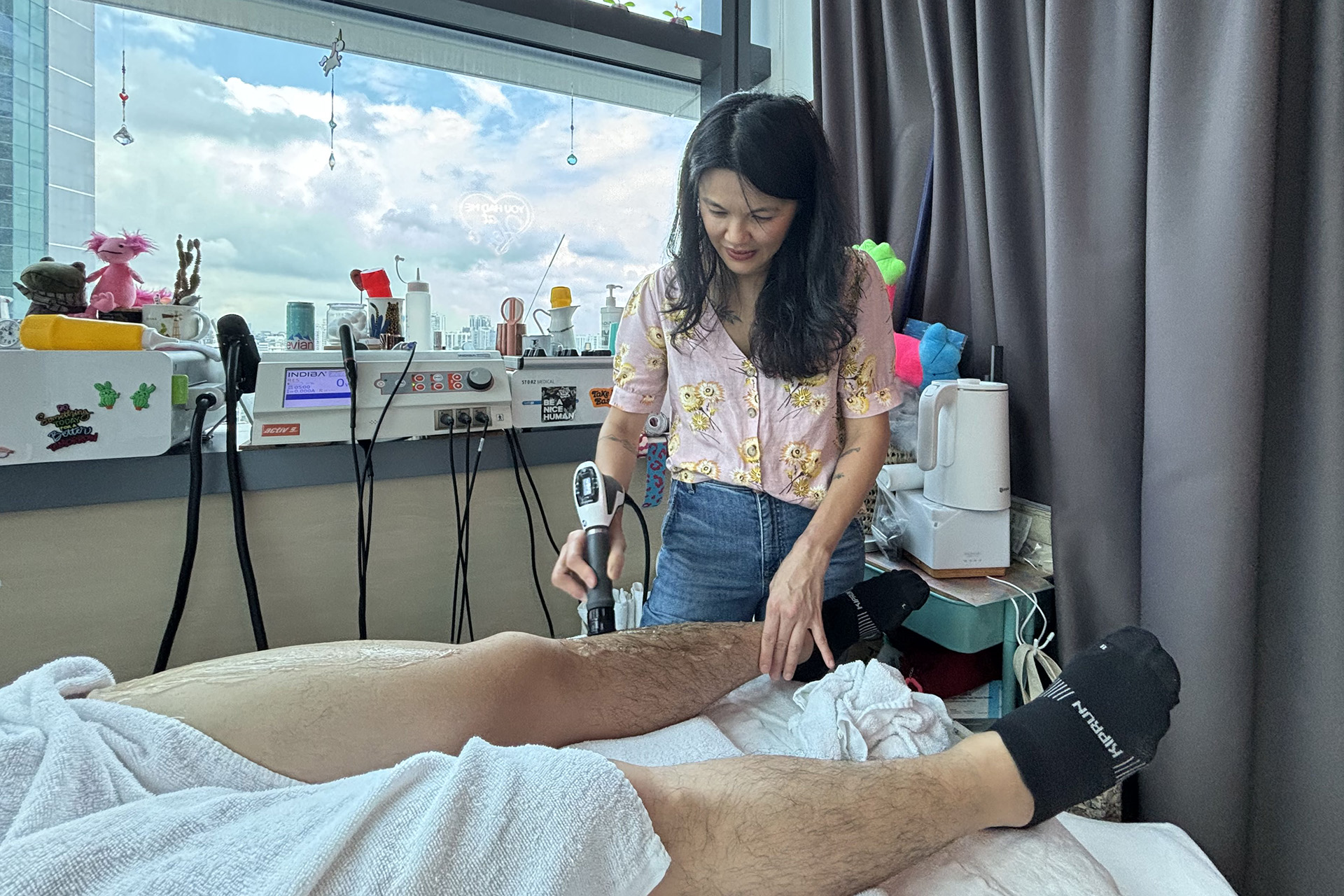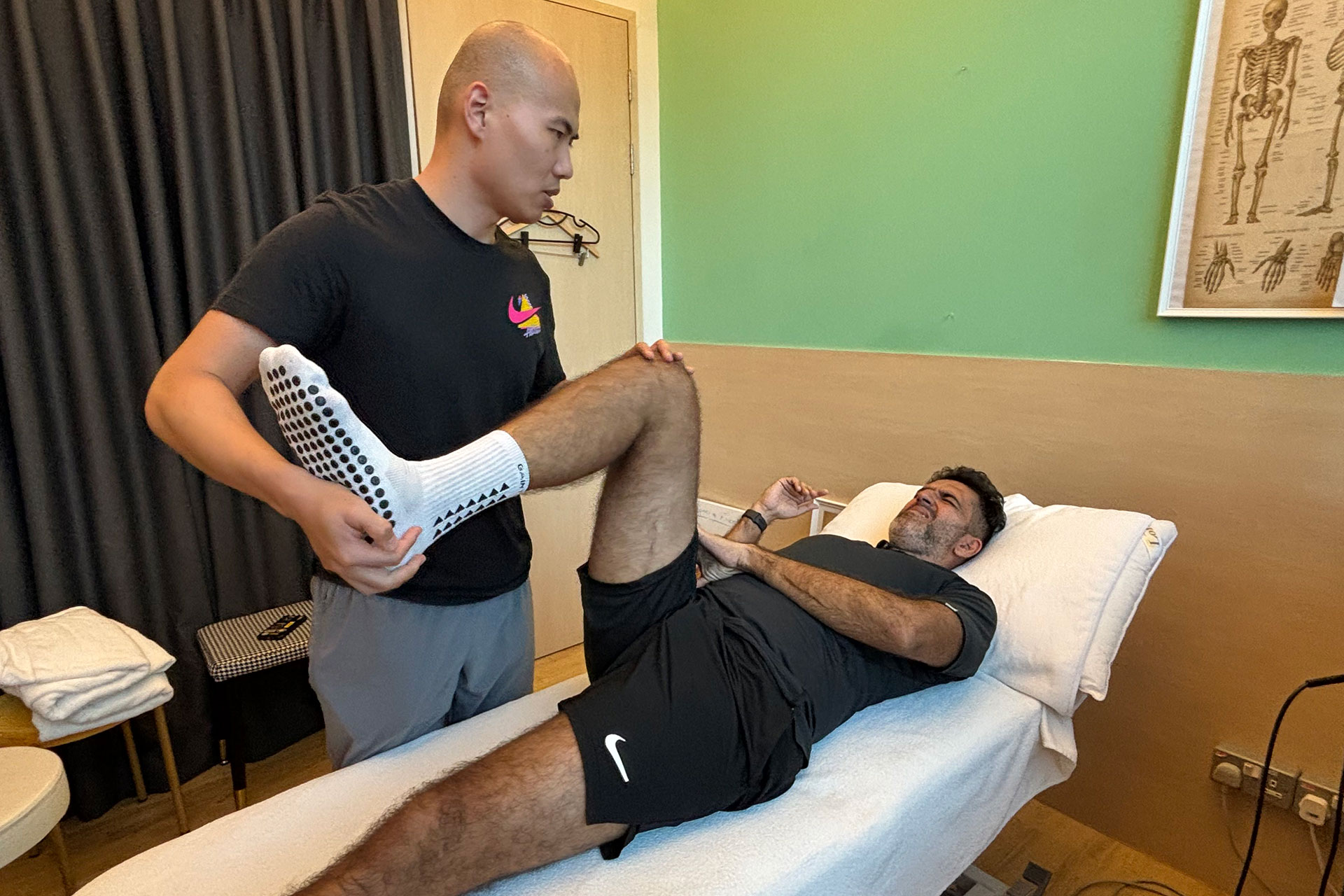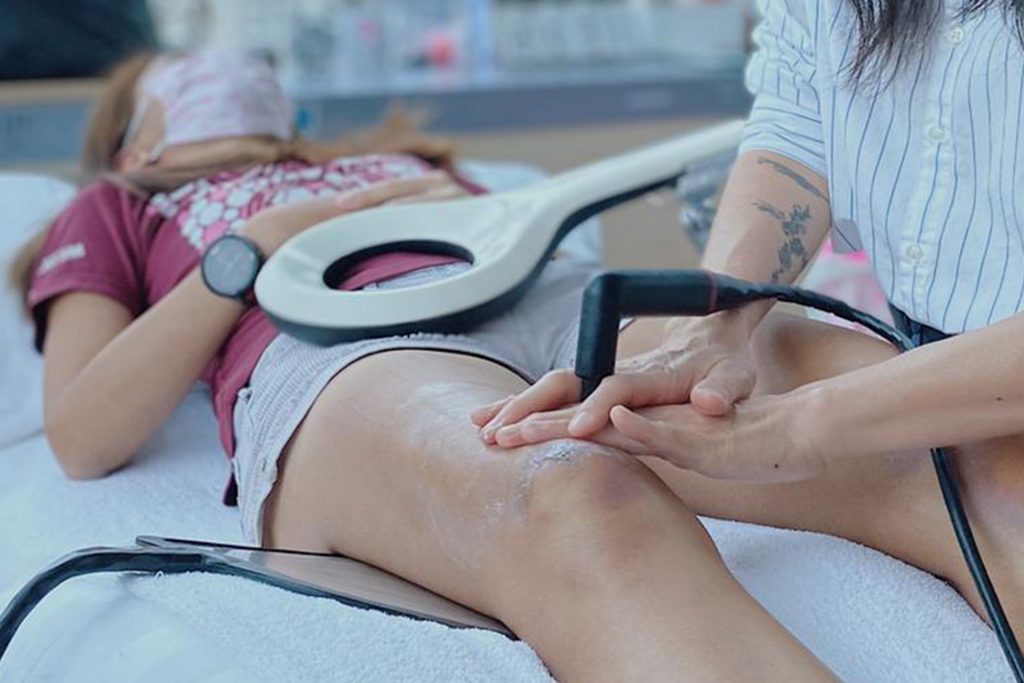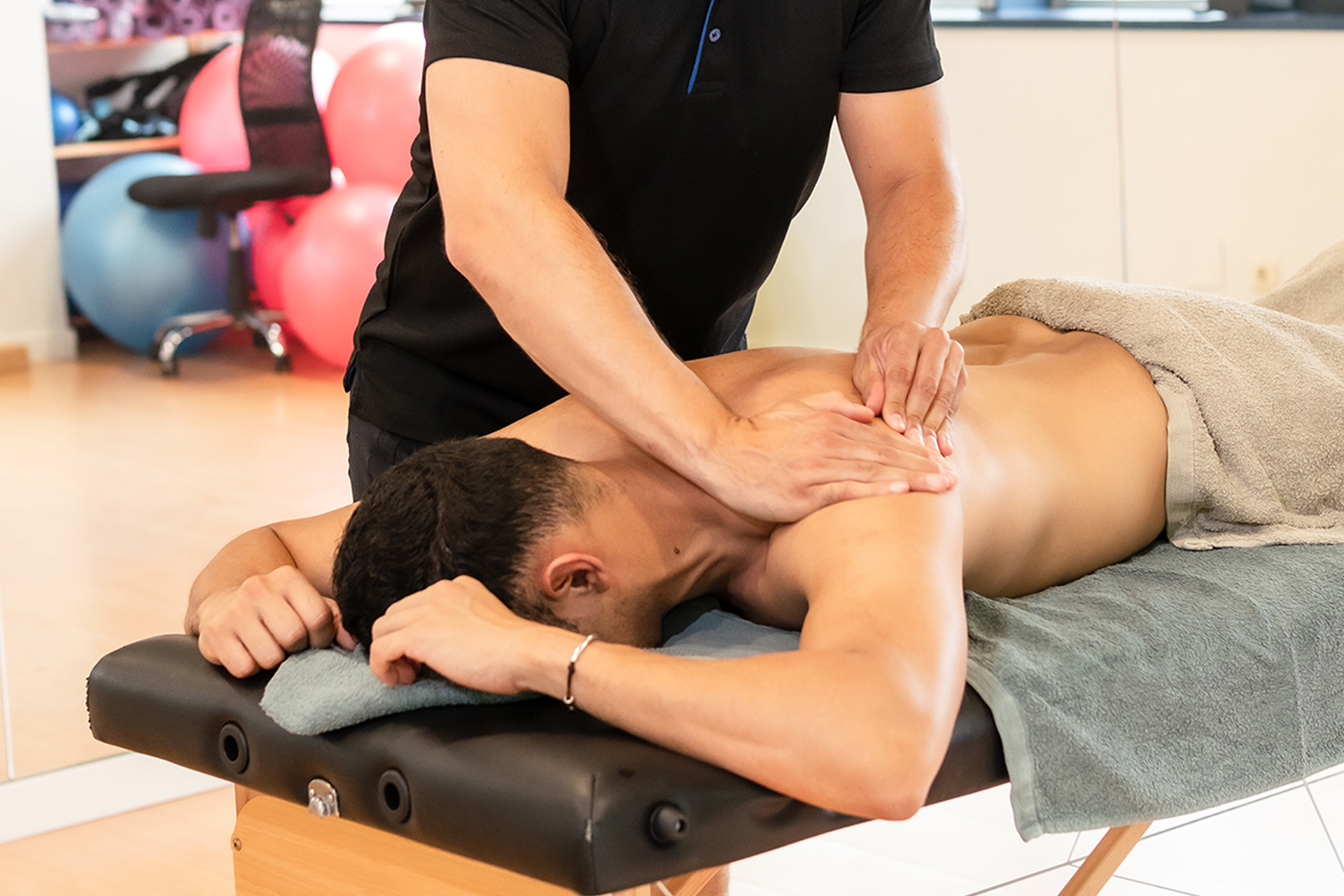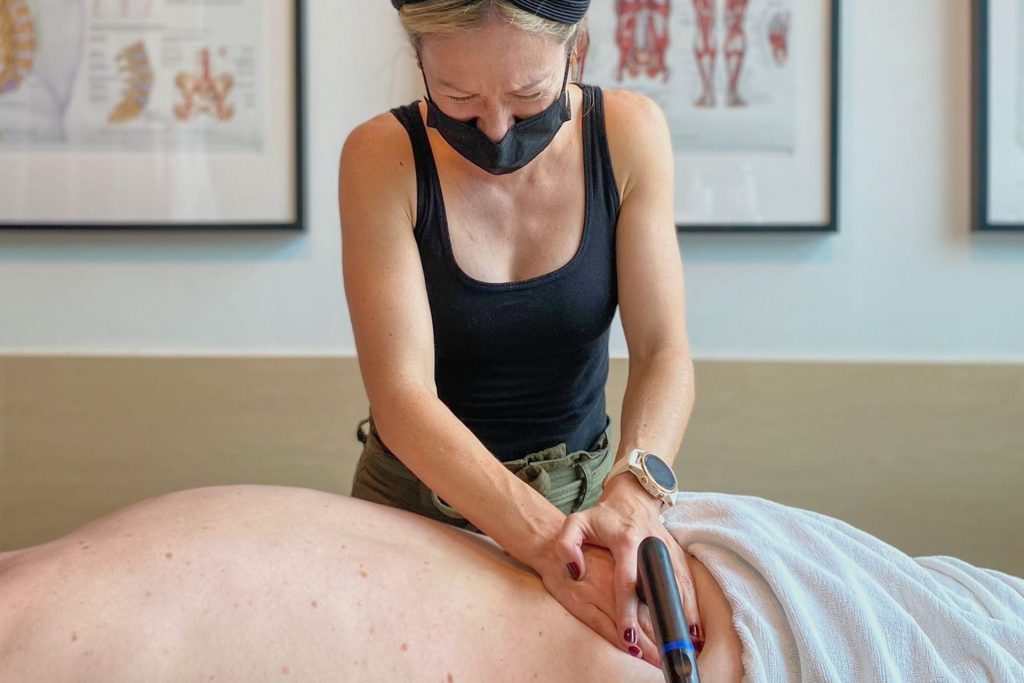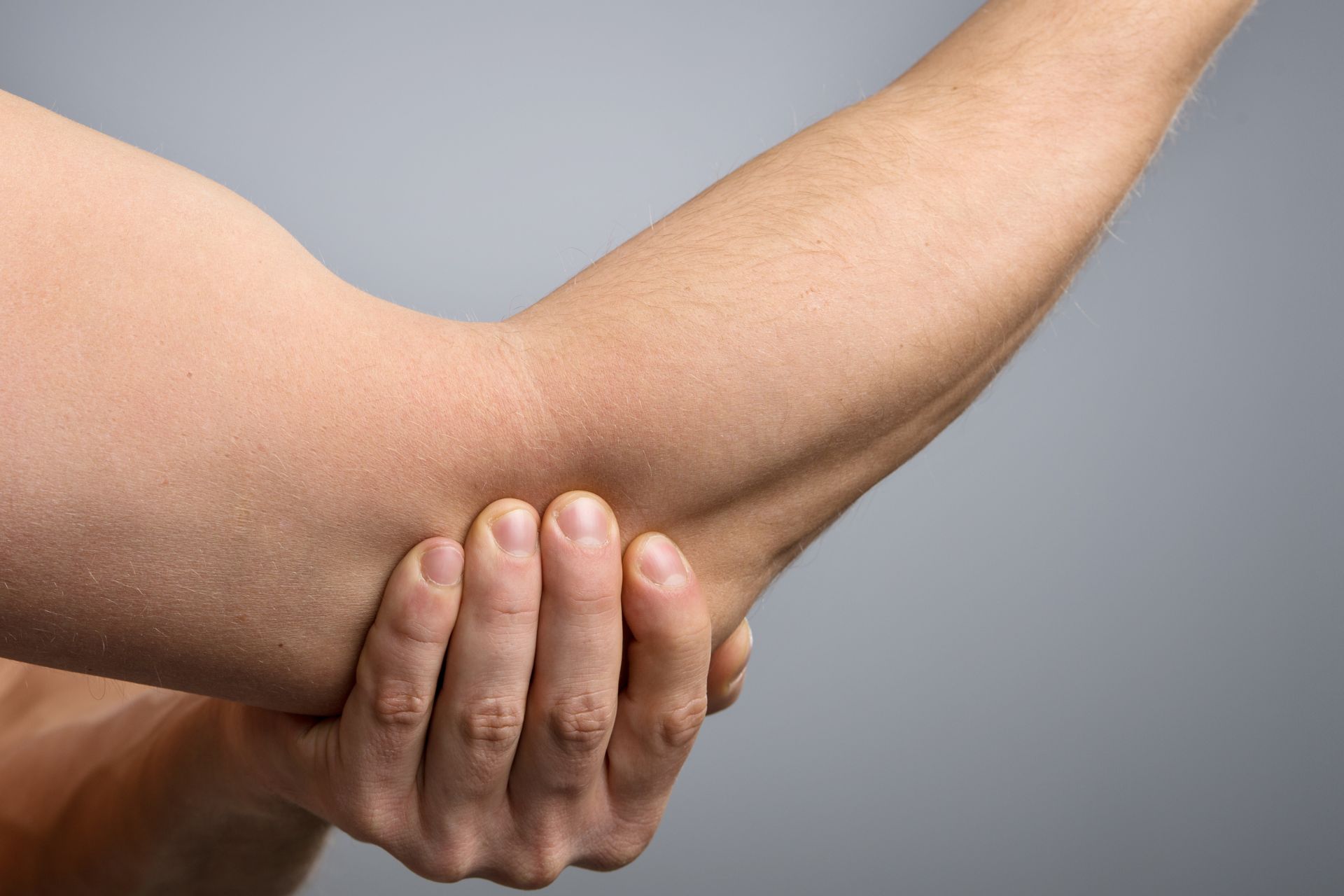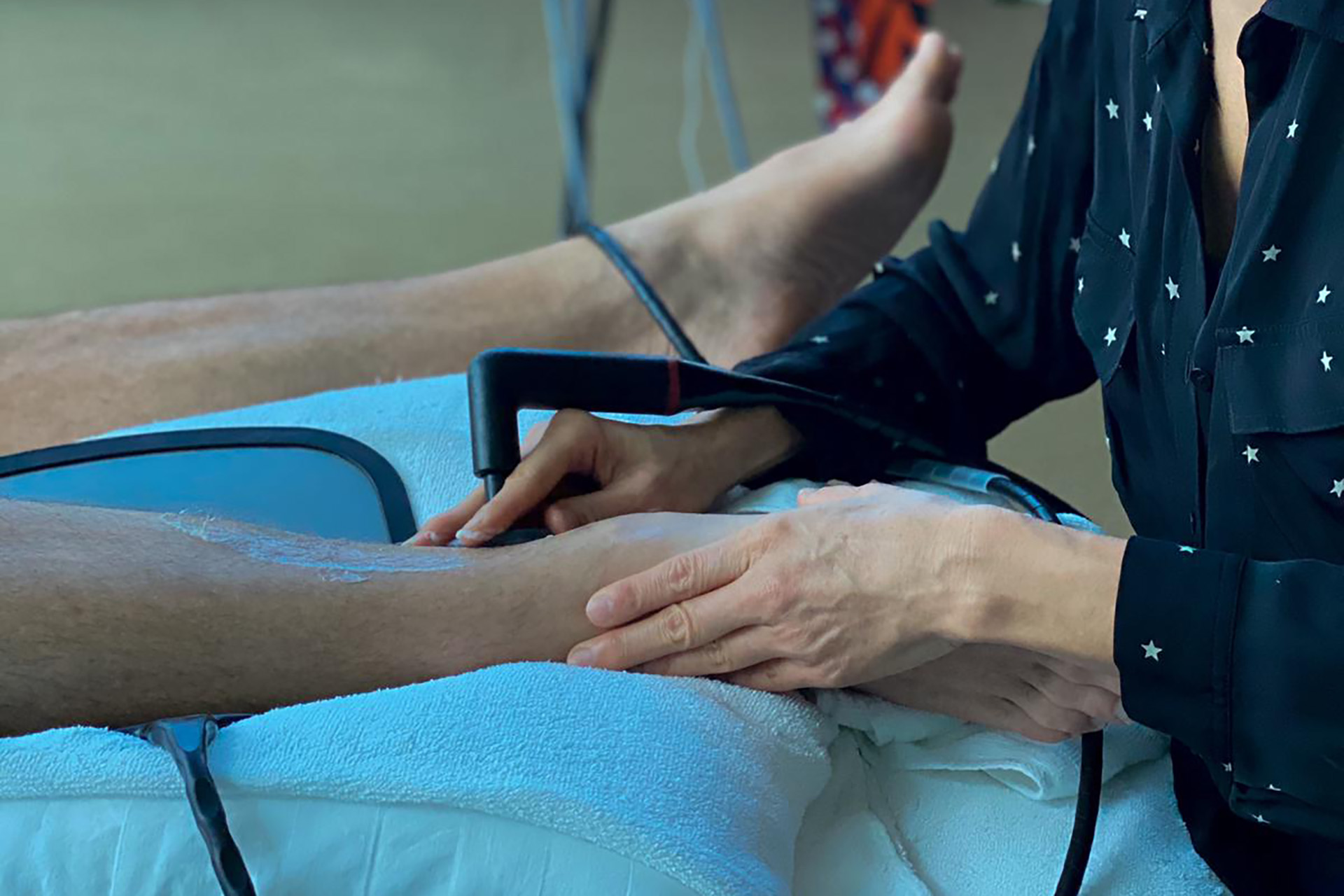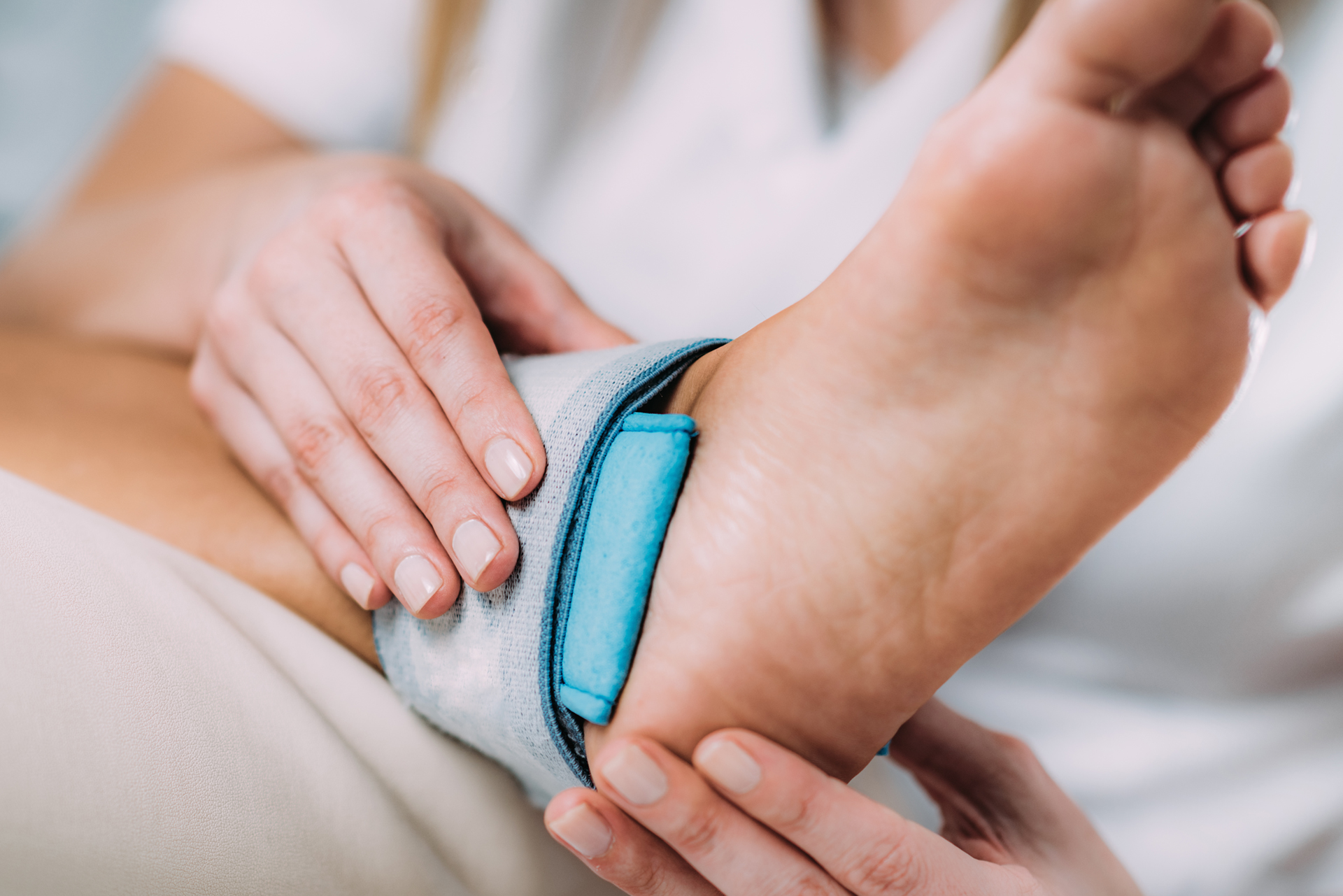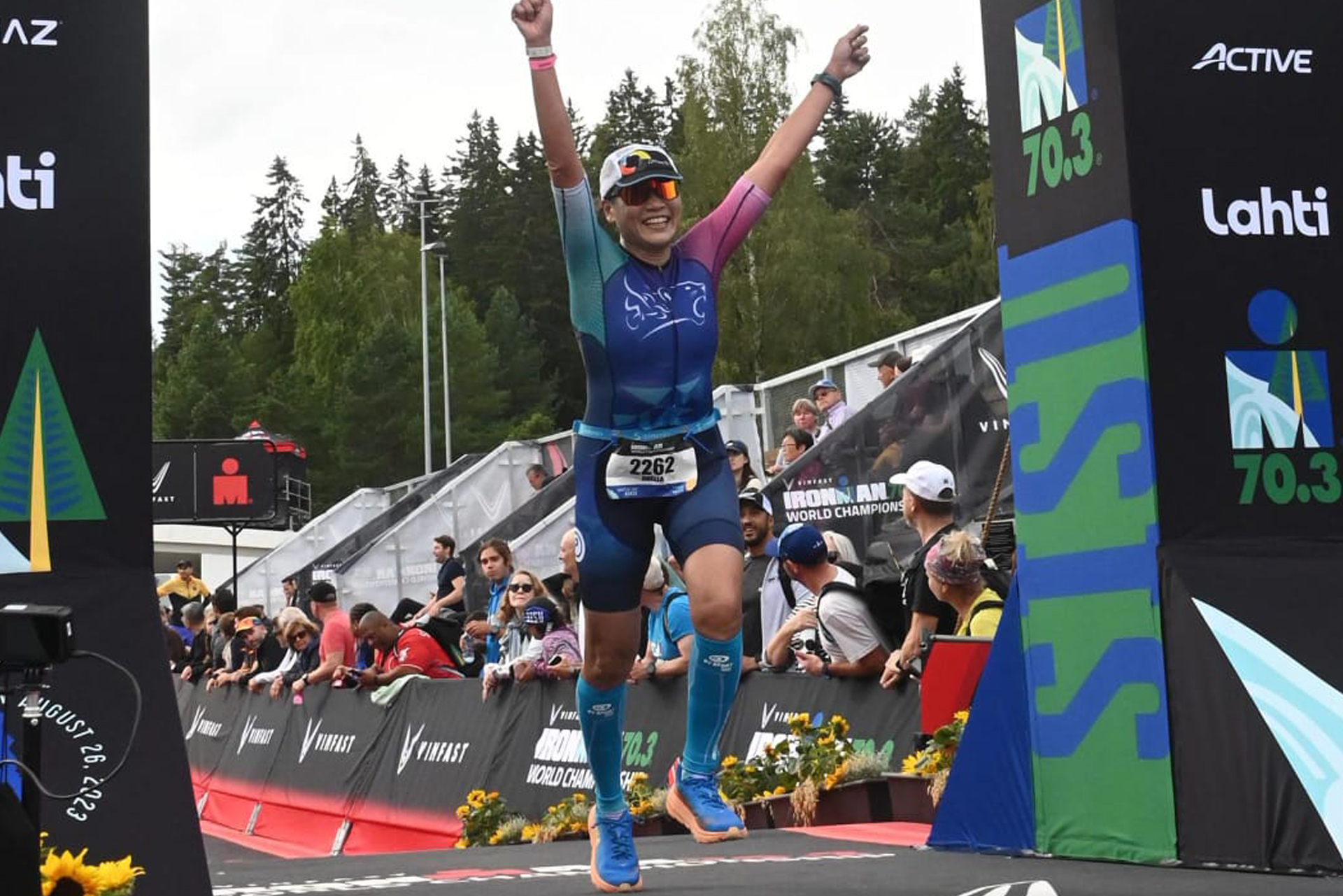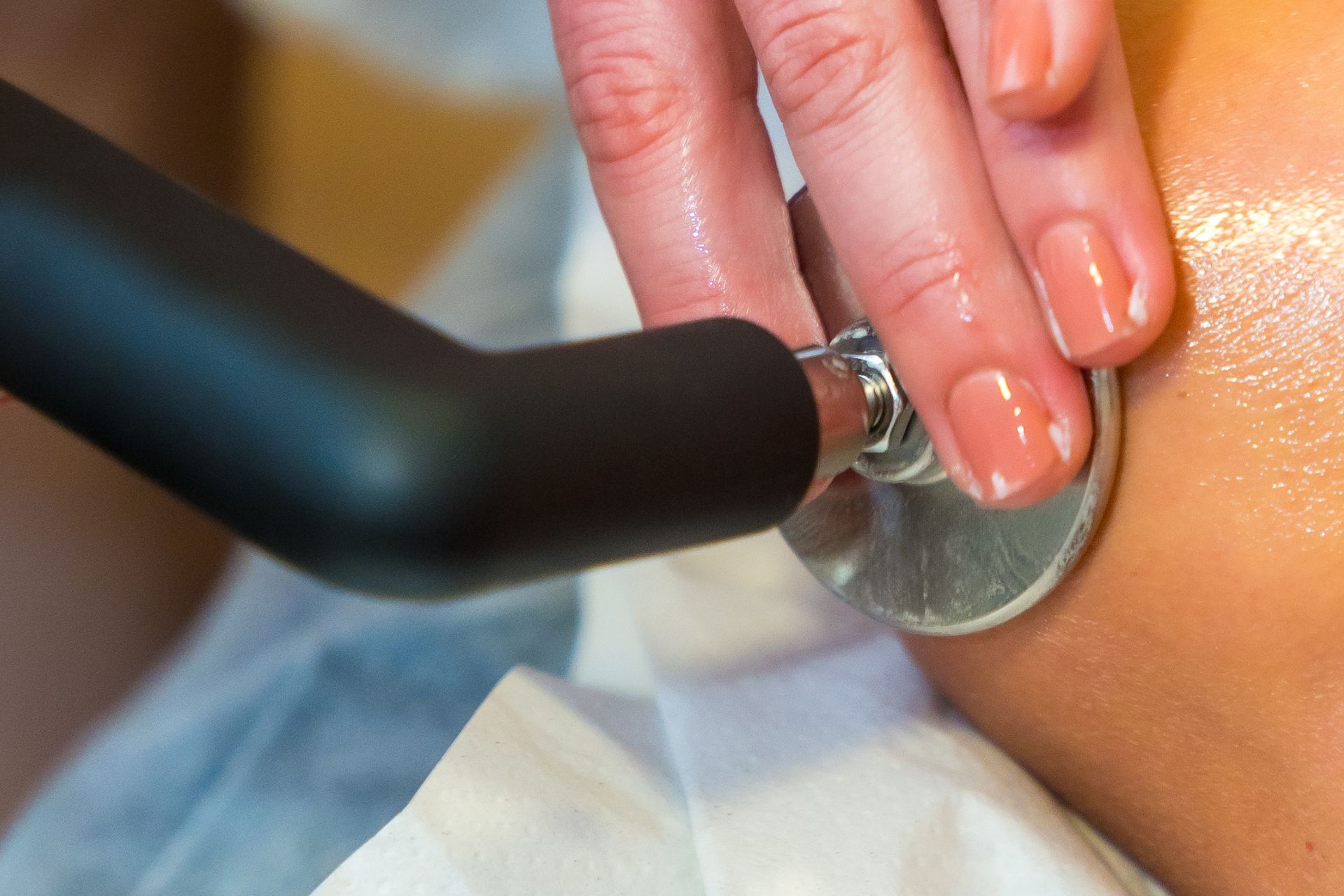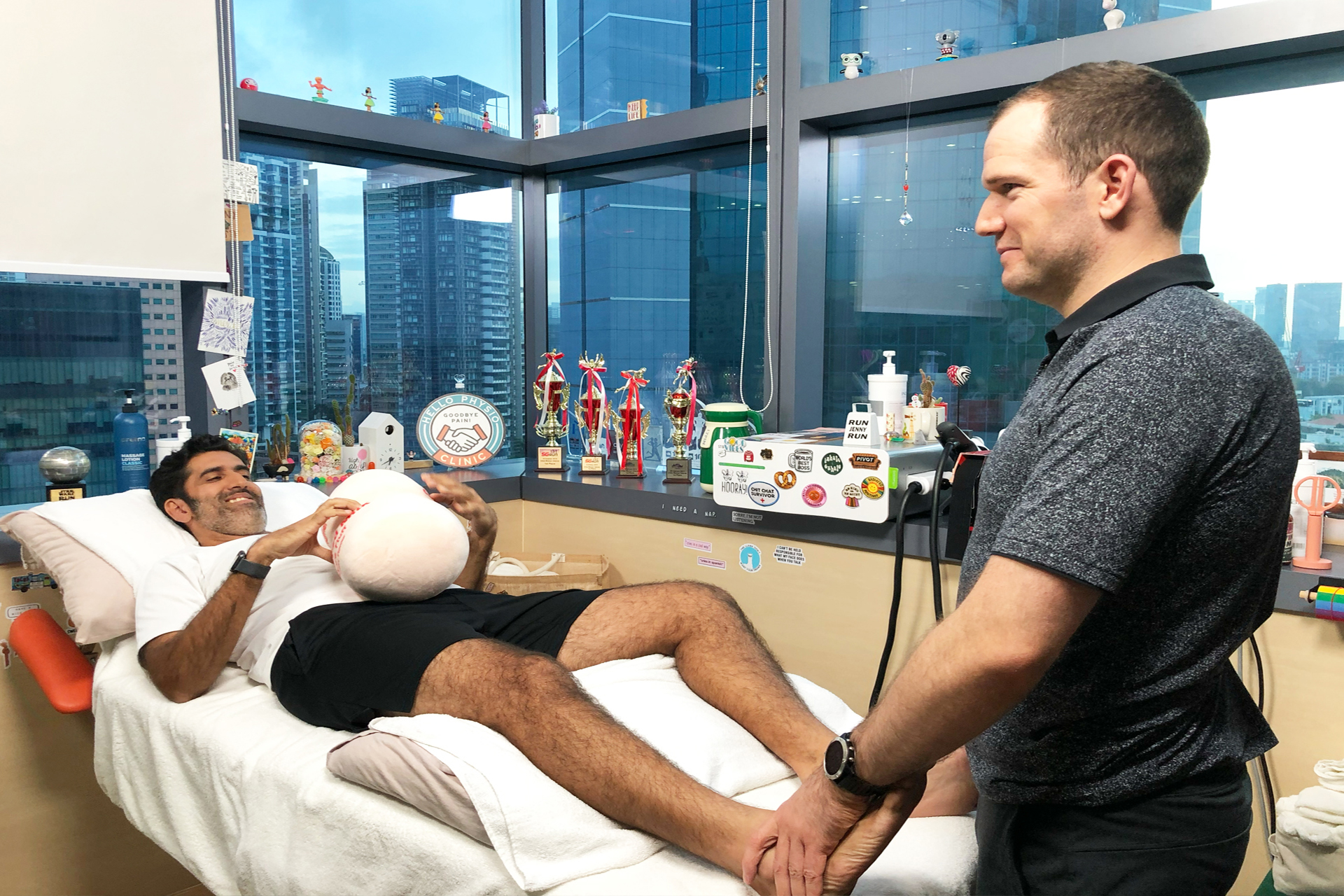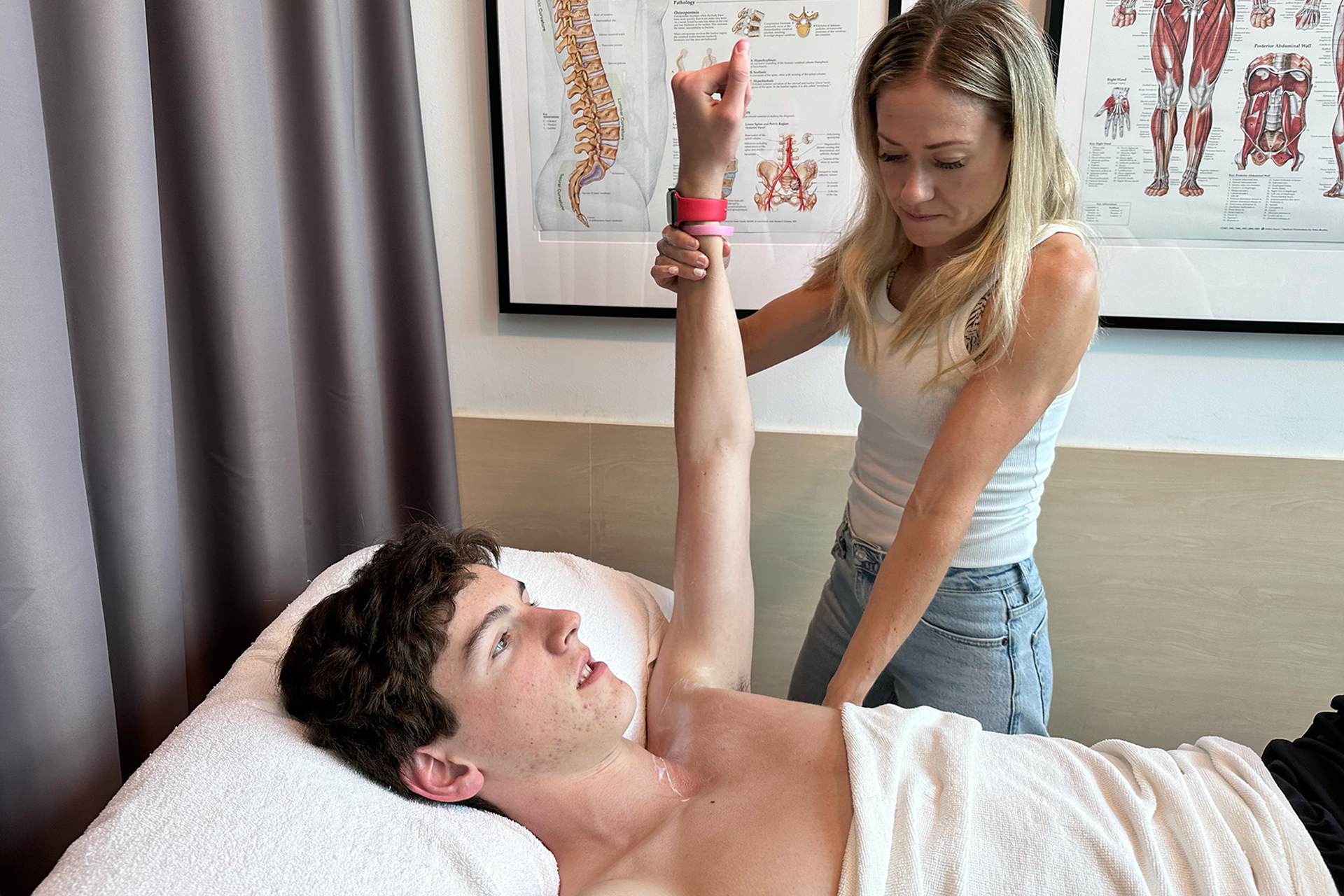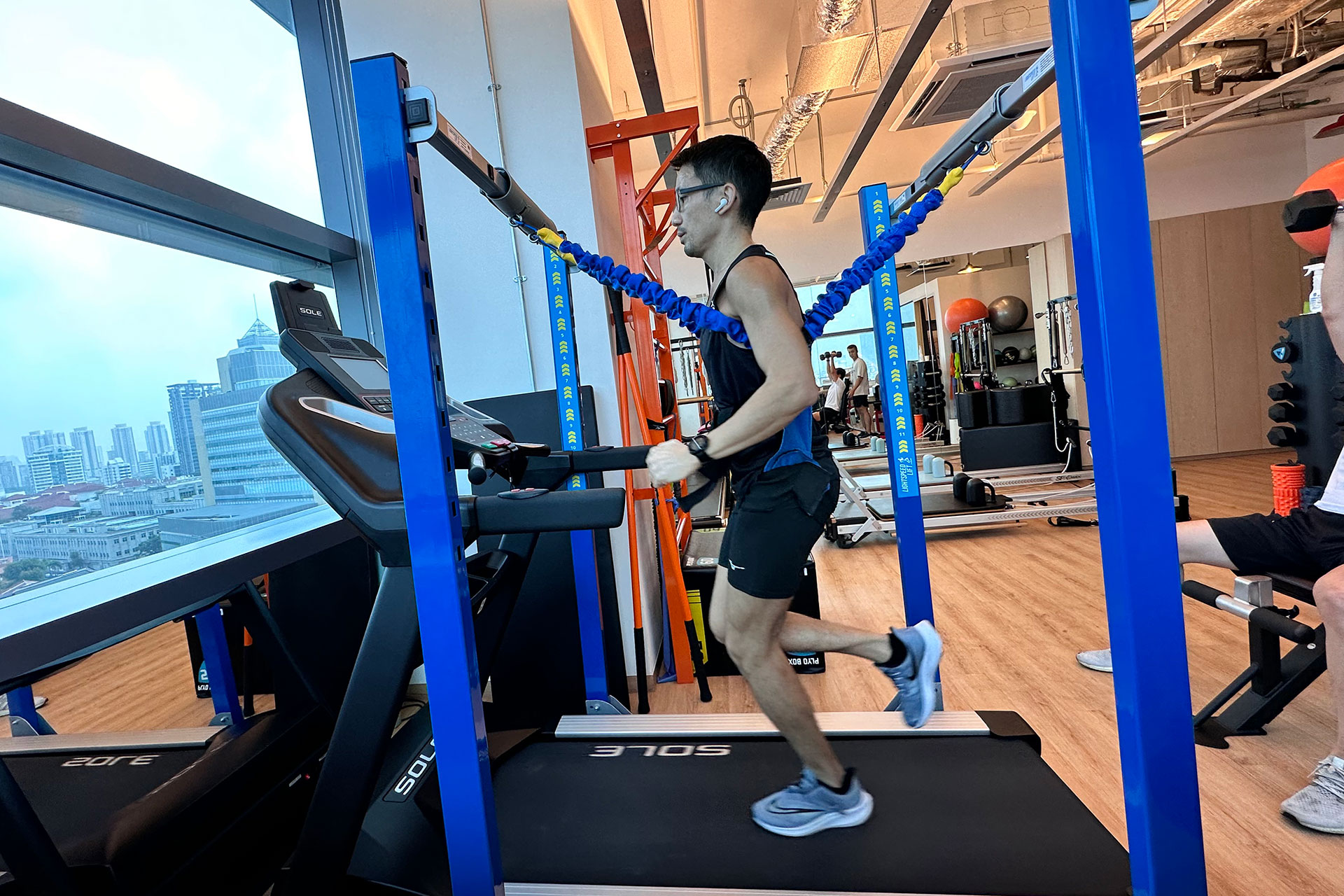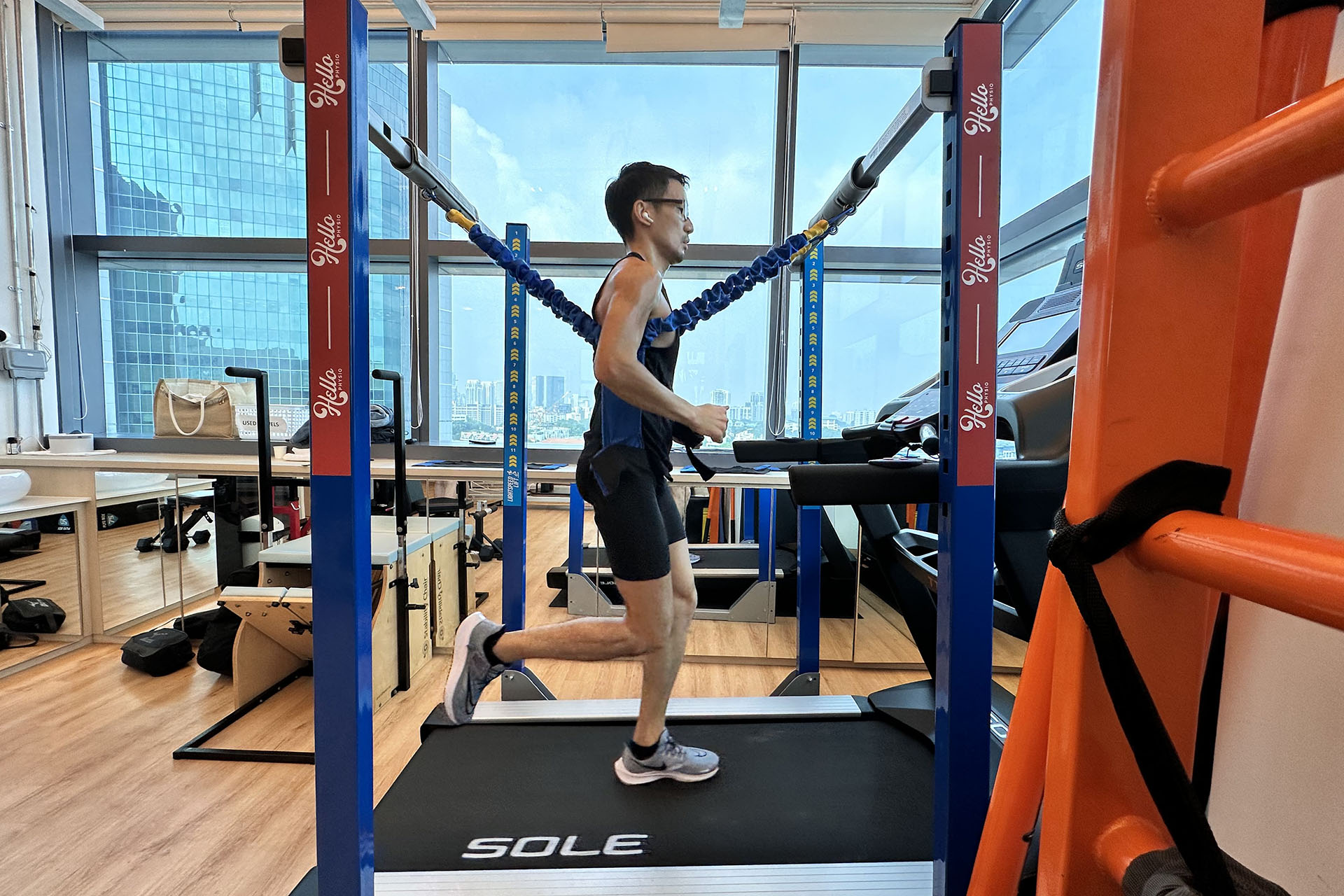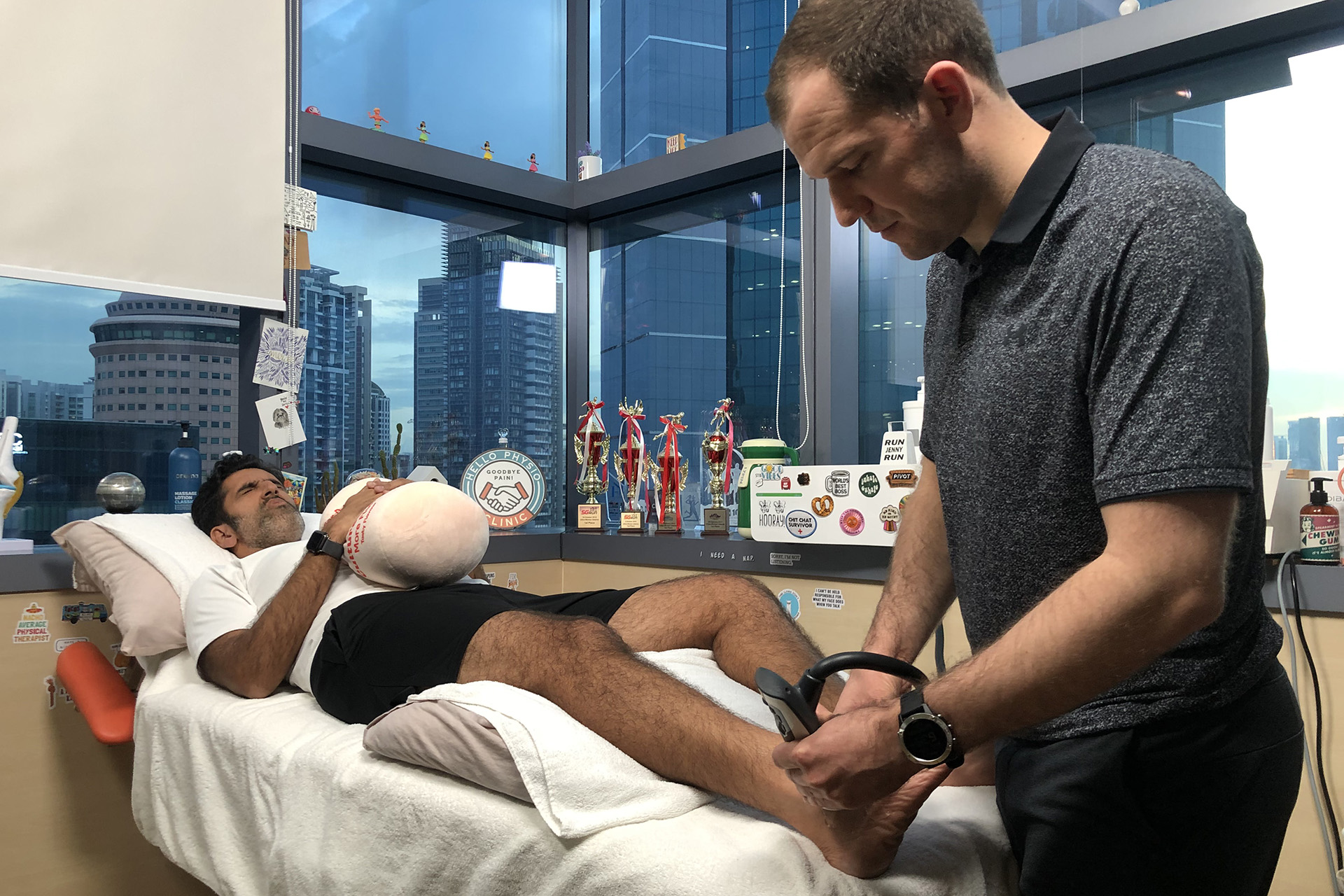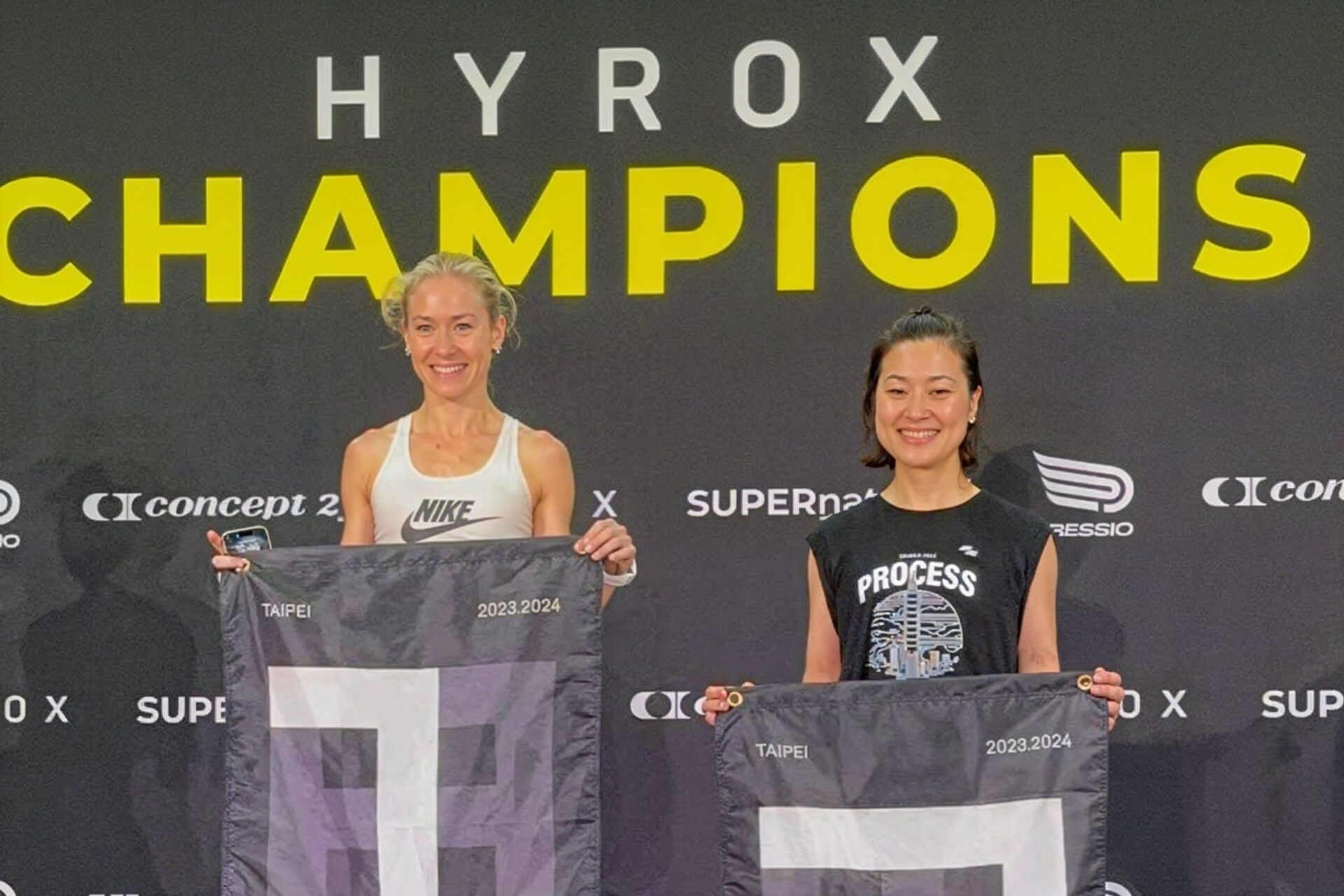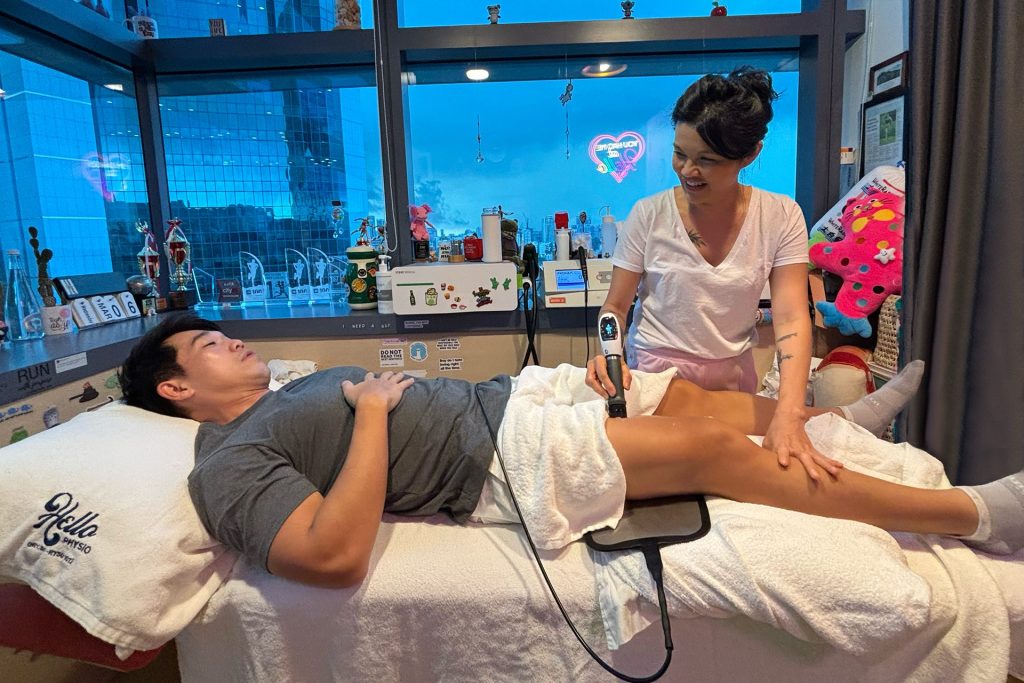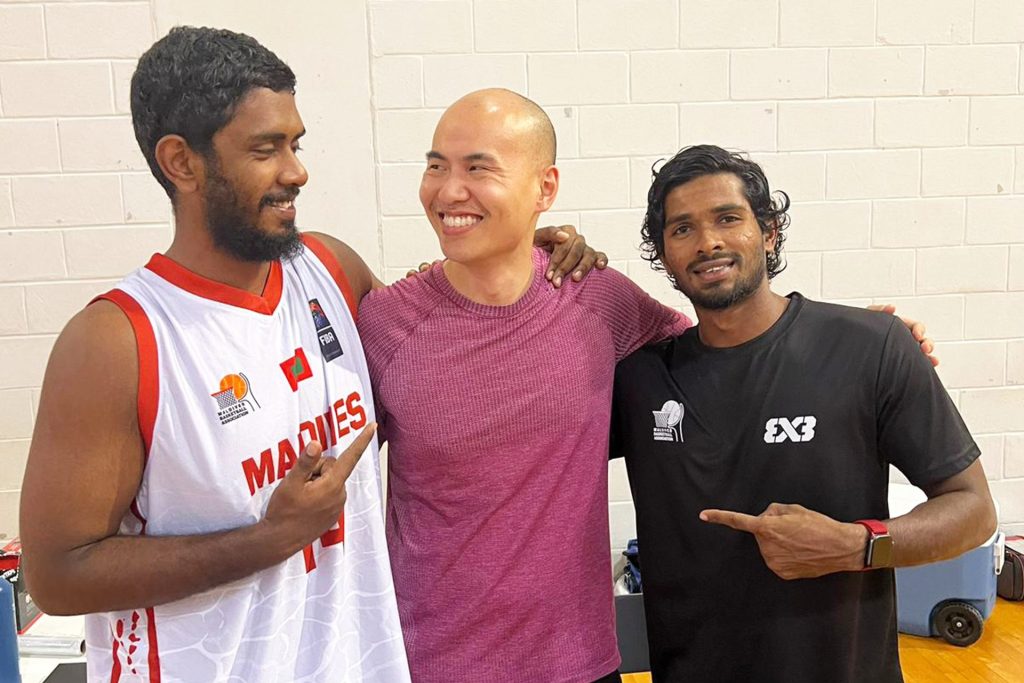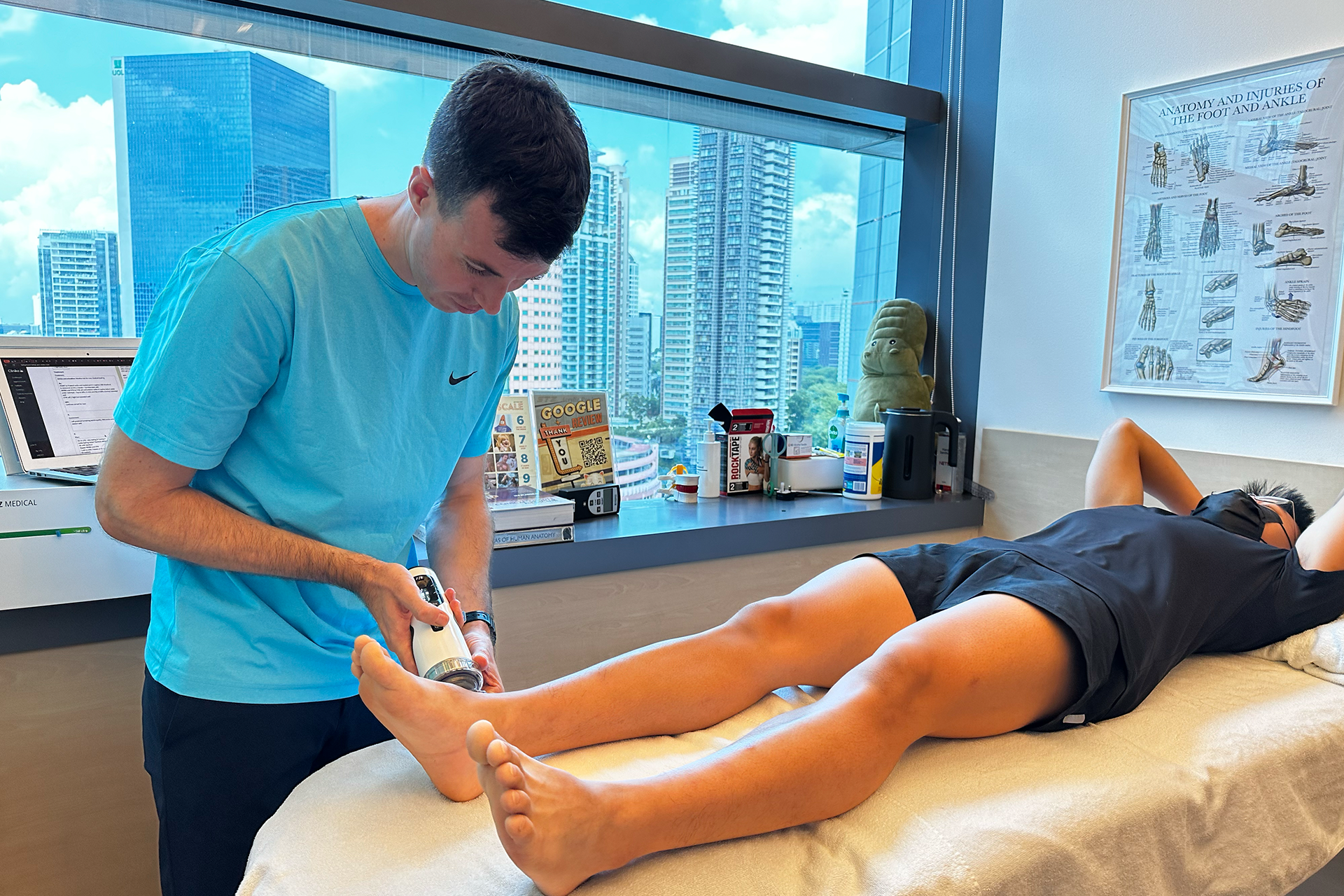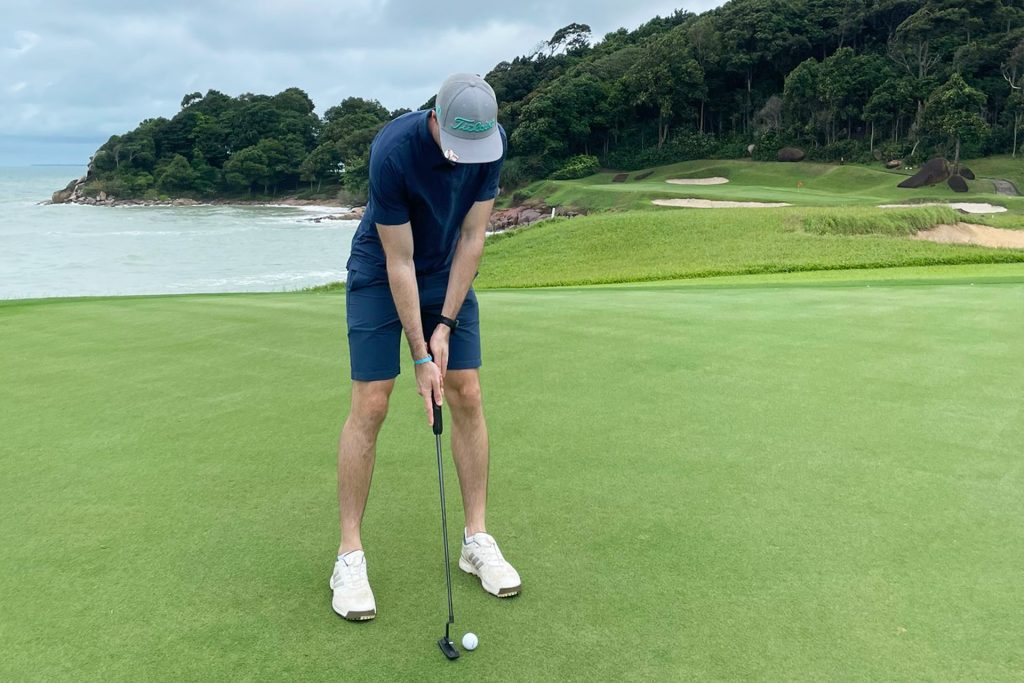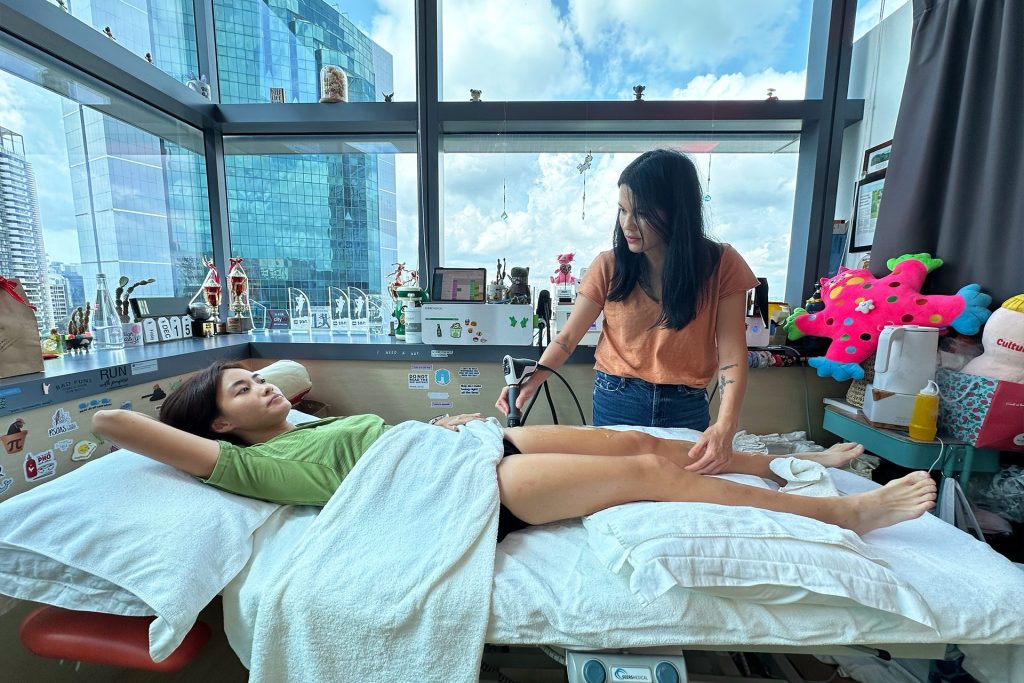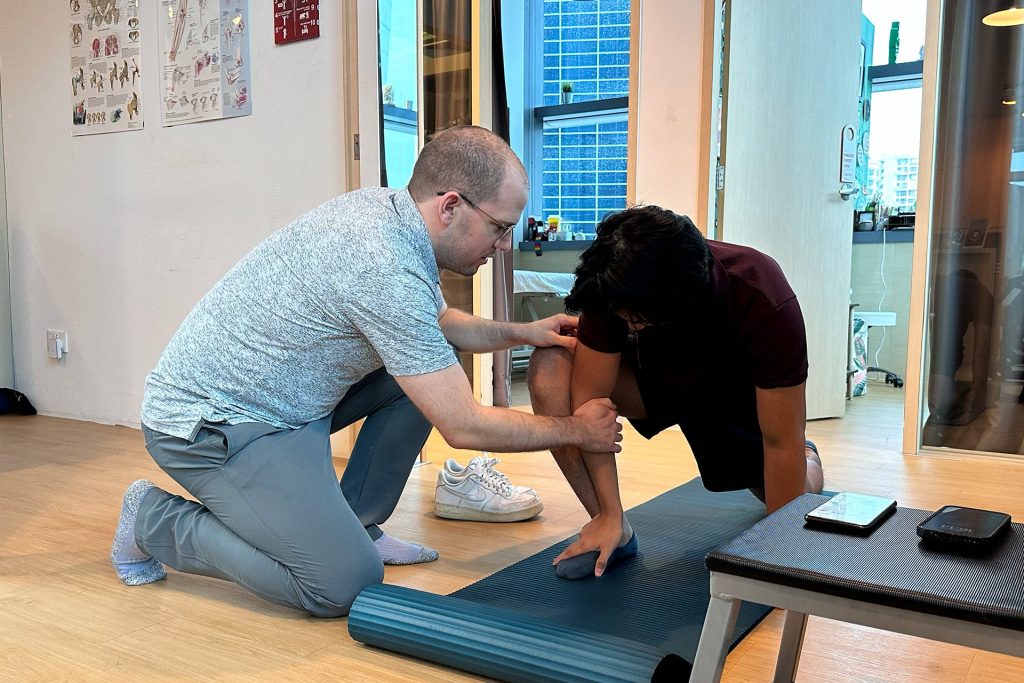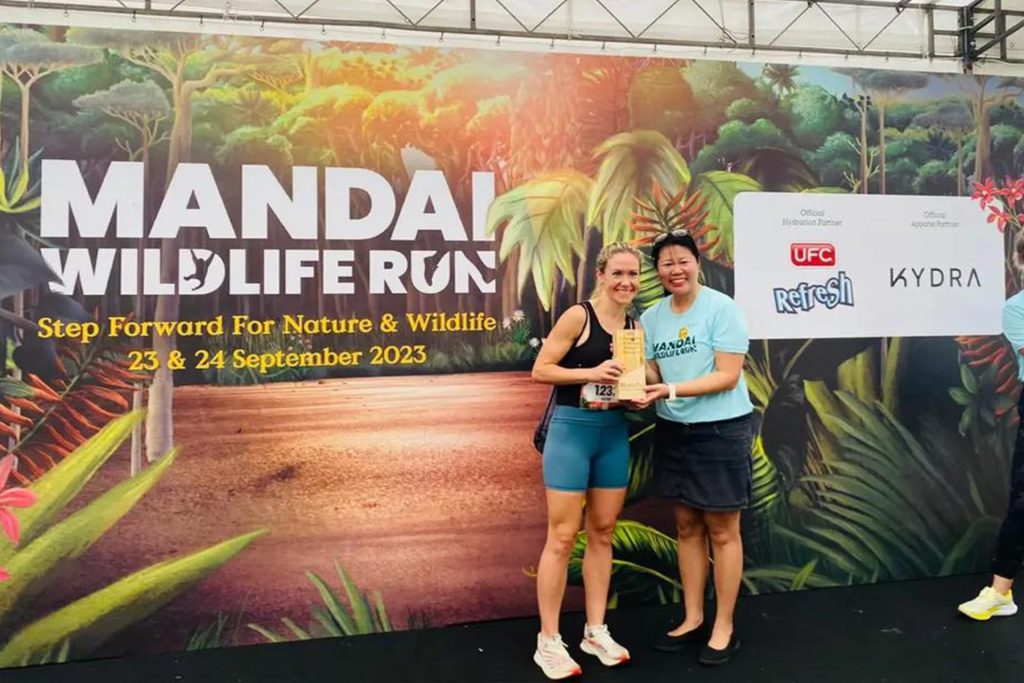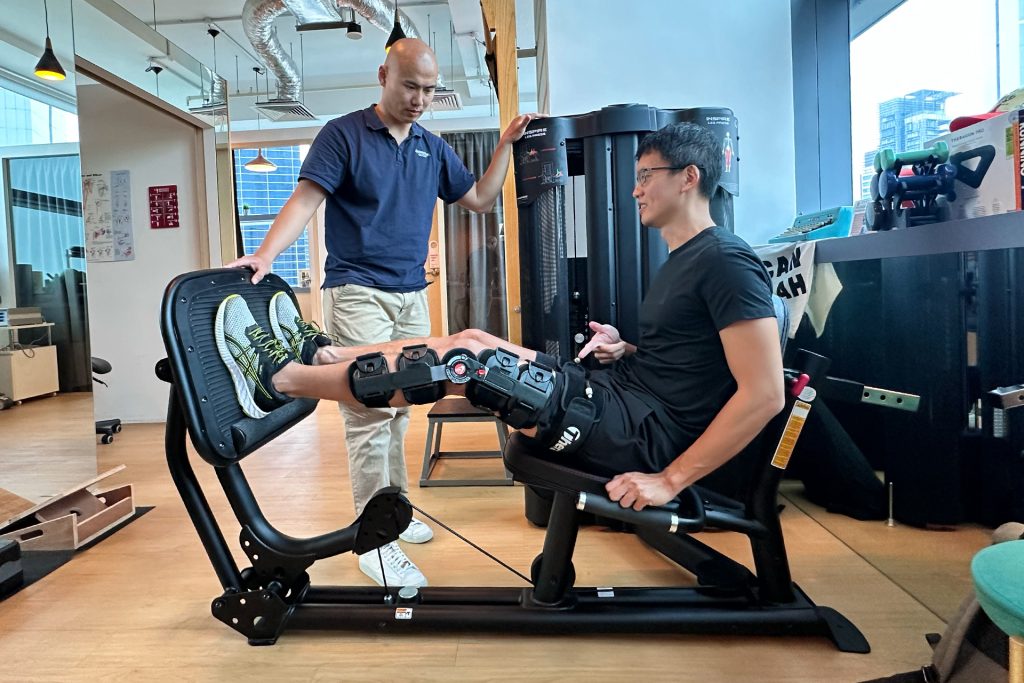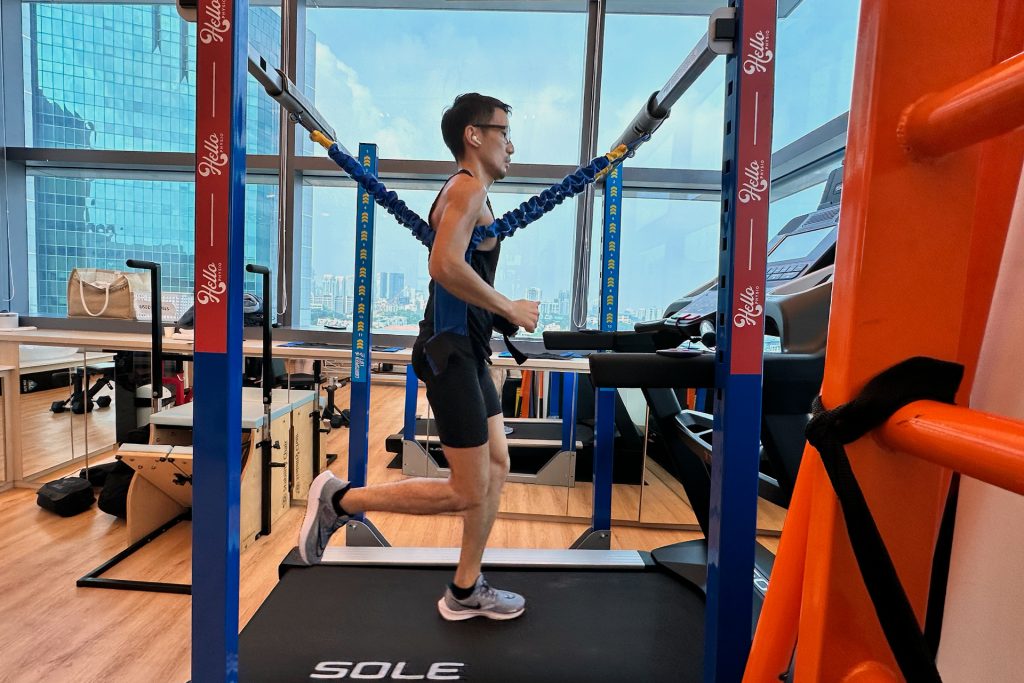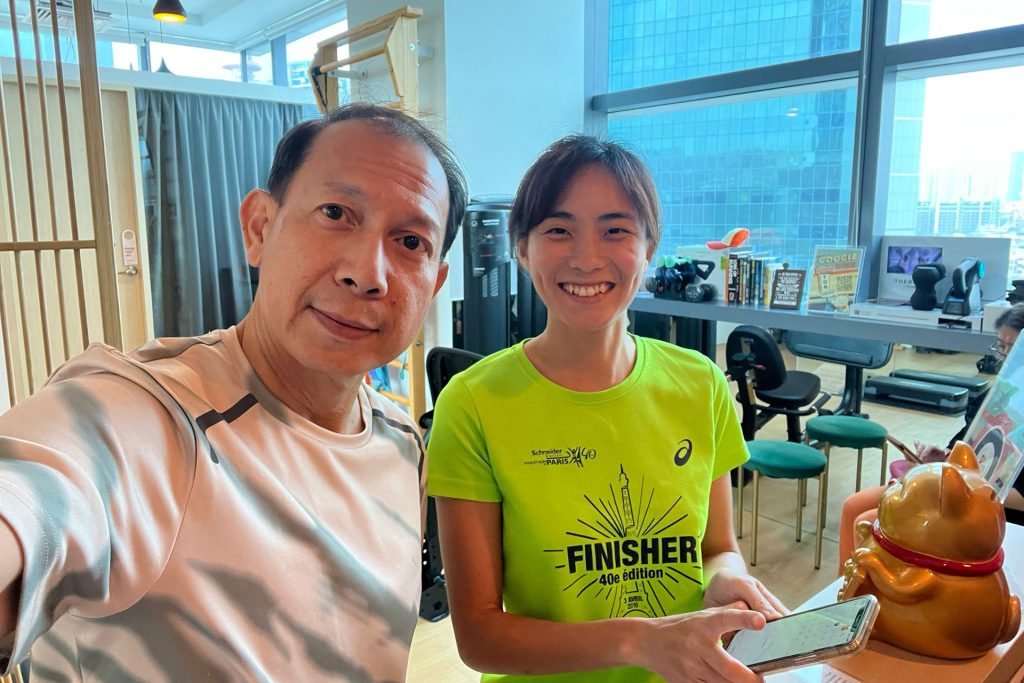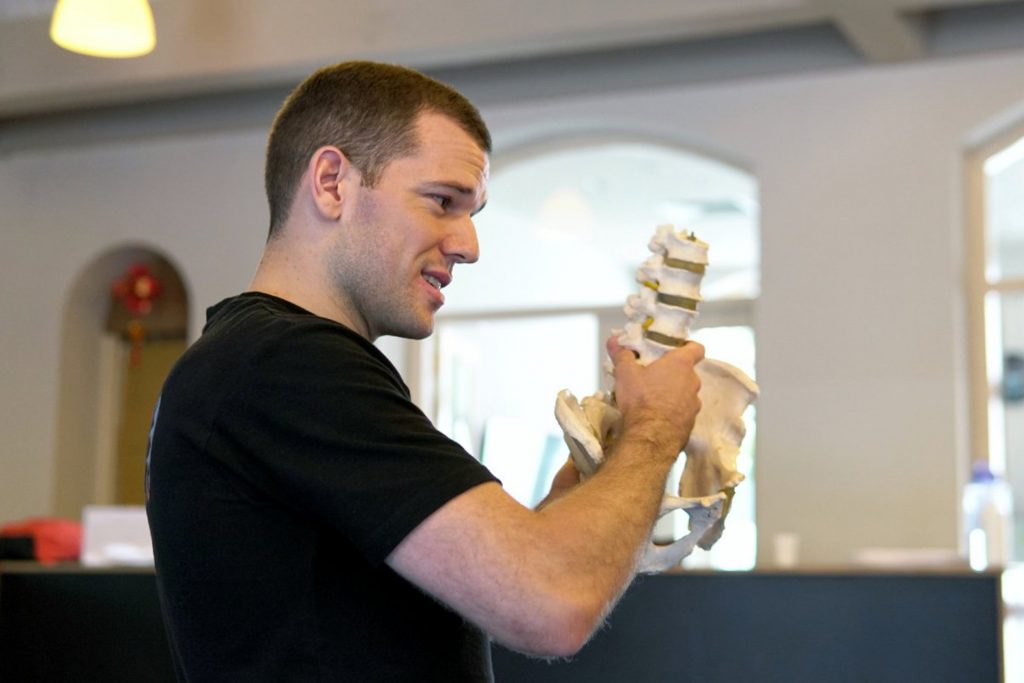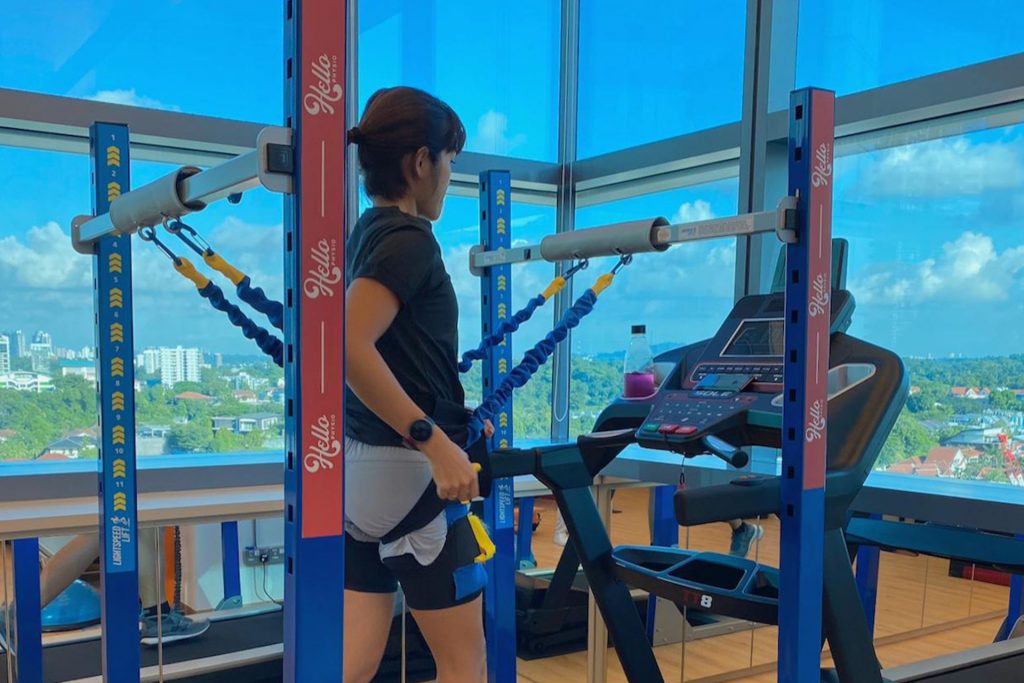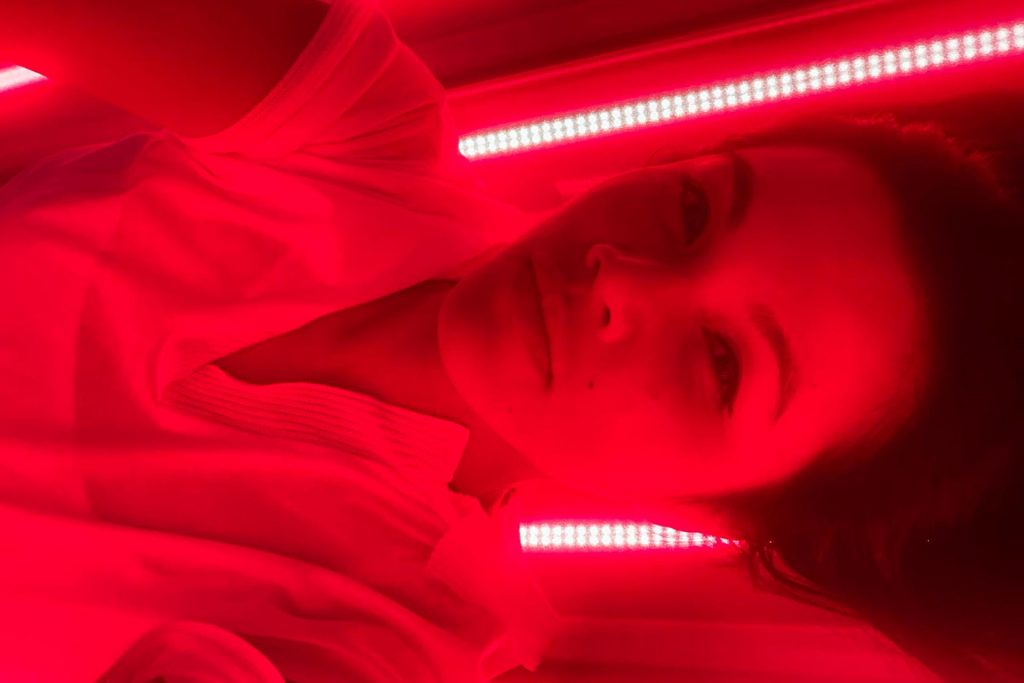|
Getting your Trinity Audio player ready...
|
For many runners, the joy of hitting the pavement is unparalleled. The rhythmic pounding of feet, the rush of endorphins, and the sense of accomplishment after a good run are experiences cherished by millions worldwide. However, for some, this passion comes with an unwelcome companion: sciatica. “Can running cause sciatica?” is a question our physiotherapists at HelloPhysio encounter frequently.
Understanding Sciatica in Runners
Sciatica, characterized by pain radiating along the path of the sciatic nerve from the lower back through the hips and buttocks and down each leg, is not a condition exclusive to runners. However, the repetitive impact and biomechanical demands of running can exacerbate existing issues or contribute to the development of sciatica in some individuals.
It’s important to understand that running itself doesn’t directly cause sciatica. Rather, underlying factors such as poor running form, muscle imbalances, or pre-existing spinal conditions can often lead to sciatic nerve irritation. The repetitive nature of running can amplify these issues, potentially leading to sciatica symptoms.
Common factors that may contribute to sciatica in runners include:
- Muscle imbalances, particularly in the core and glutes
- Poor running technique or overstriding
- Inadequate warm-up and cool-down routines
- Wearing improper footwear
- Overtraining, or sudden increases in training intensity
The Role of Physiotherapy in Managing Sciatica for Runners
At HelloPhysio, we understand that every runner’s journey is unique. Our approach to treating sciatica in runners combines traditional physiotherapy with cutting-edge technologies to provide comprehensive care. The goal is not just to alleviate pain but to address the root causes and prevent future occurrences, allowing runners to return to their passion safely and confidently.
Physiotherapy for sciatica typically begins with a thorough assessment of the runner’s biomechanics, strength, flexibility, and running technique. This holistic evaluation allows our physiotherapists to develop a tailored treatment plan that may include manual therapy, targeted exercises, and advanced complementary therapies.
Advanced Complementary Therapies for Sciatica Relief
In addition to traditional physiotherapy techniques, HelloPhysio offers a range of advanced complementary therapies that have shown promising results in managing sciatica pain for runners. These innovative treatments work synergistically with conventional methods to provide a comprehensive approach to healing.
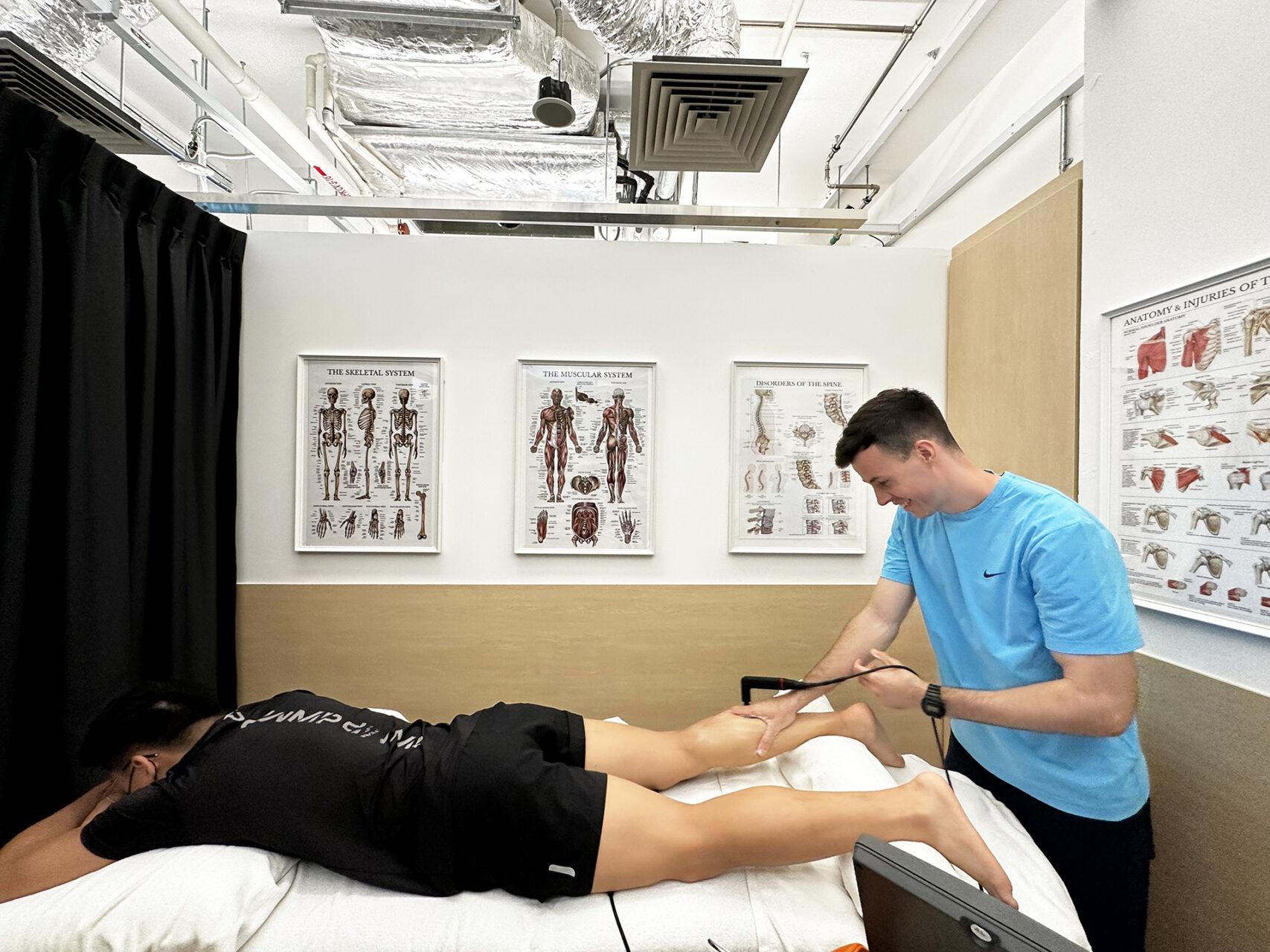
INDIBA® Activ: This non-invasive therapy uses radiofrequency energy to stimulate cellular activity and promote healing. For runners with sciatica, INDIBA® Activ can help reduce inflammation, improve circulation, and accelerate tissue repair in the affected areas. Many patients report significant pain relief and improved mobility after a series of treatments.
Extracorporeal Magnetotransduction Therapy (EMTT): EMTT is a groundbreaking technology that uses high-energy magnetic pulses to target deep tissues. This therapy can be particularly beneficial for runners with sciatica as it helps to reduce nerve irritation, decrease inflammation, and promote tissue regeneration. EMTT sessions are often incorporated into a broader treatment plan to enhance overall outcomes.
Shockwave Therapy: This noninvasive treatment uses acoustic waves to stimulate healing in damaged tissues. It can help break up scar tissue, improve blood flow, and reduce pain for runners with sciatica. It’s especially effective in treating muscular components of sciatica, such as piriformis syndrome, which can be a common issue for runners.
Prescribed Exercises: A tailored exercise program is a cornerstone of sciatica physiotherapy treatment for runners. Our physiotherapists design specific routines focusing on strengthening the core, improving flexibility, and correcting muscle imbalances. These exercises aid in recovery and play a crucial role in preventing future episodes of sciatica.
Dry Needling: This technique involves inserting thin needles into muscle trigger points to release tension and alleviate pain. For runners with sciatica, dry needling can be particularly effective in addressing muscular contributors to nerve compression, such as tight piriformis or gluteal muscles.
Combining Therapies for Optimal Results
At HelloPhysio, we believe in the power of a holistic approach. Combining these advanced therapies with traditional physiotherapy techniques creates a comprehensive treatment plan tailored to each runner’s needs. This multifaceted approach addresses the immediate symptoms of sciatica and corrects underlying issues that may have contributed to its development.
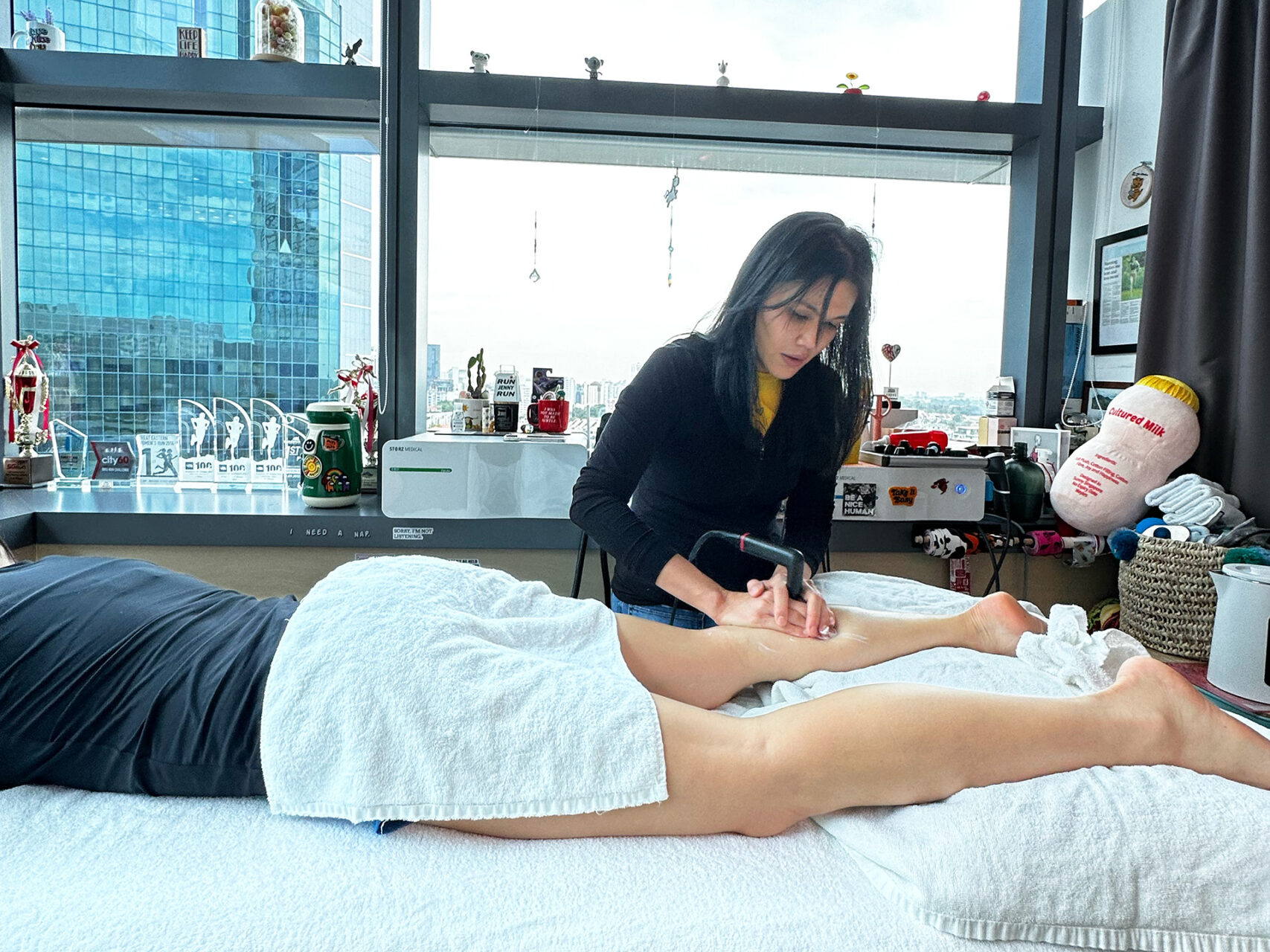
For instance, a runner presenting with sciatica might undergo a treatment plan that includes:
- Initial assessment and biomechanical analysis
- Manual therapy to address immediate pain and muscle tension
- INDIBA® Activ sessions to reduce inflammation and promote healing
- EMTT treatments to target deep tissue and nerve irritation
- Shockwave Therapy addresses any muscular components of the condition
- A prescribed exercise program focusing on core strength and flexibility
- Dry needling sessions to release persistent trigger points
- Running technique analysis and retraining
This comprehensive approach ensures that all aspects of the runner’s condition are addressed, from immediate pain relief to long-term prevention strategies.
Empowering Runners
While treatment is crucial, prevention is equally important. Our physiotherapists work closely with runners to educate them on proper running techniques, the importance of gradual training progression, and the role of cross-training in maintaining overall musculoskeletal health. We empower our patients with the knowledge and tools they need to listen to their bodies and make informed decisions about their training.
Don’t let sciatica sideline your running passion. If you’re experiencing symptoms or want to prevent future issues, the team at HelloPhysio is here to help. Our comprehensive approach, combining traditional physiotherapy with advanced complementary therapies, can get you back on track and running pain-free. Contact us today to schedule an assessment and take the first step towards optimal running health. Let’s work together to keep you doing what you love, mile after mile.

